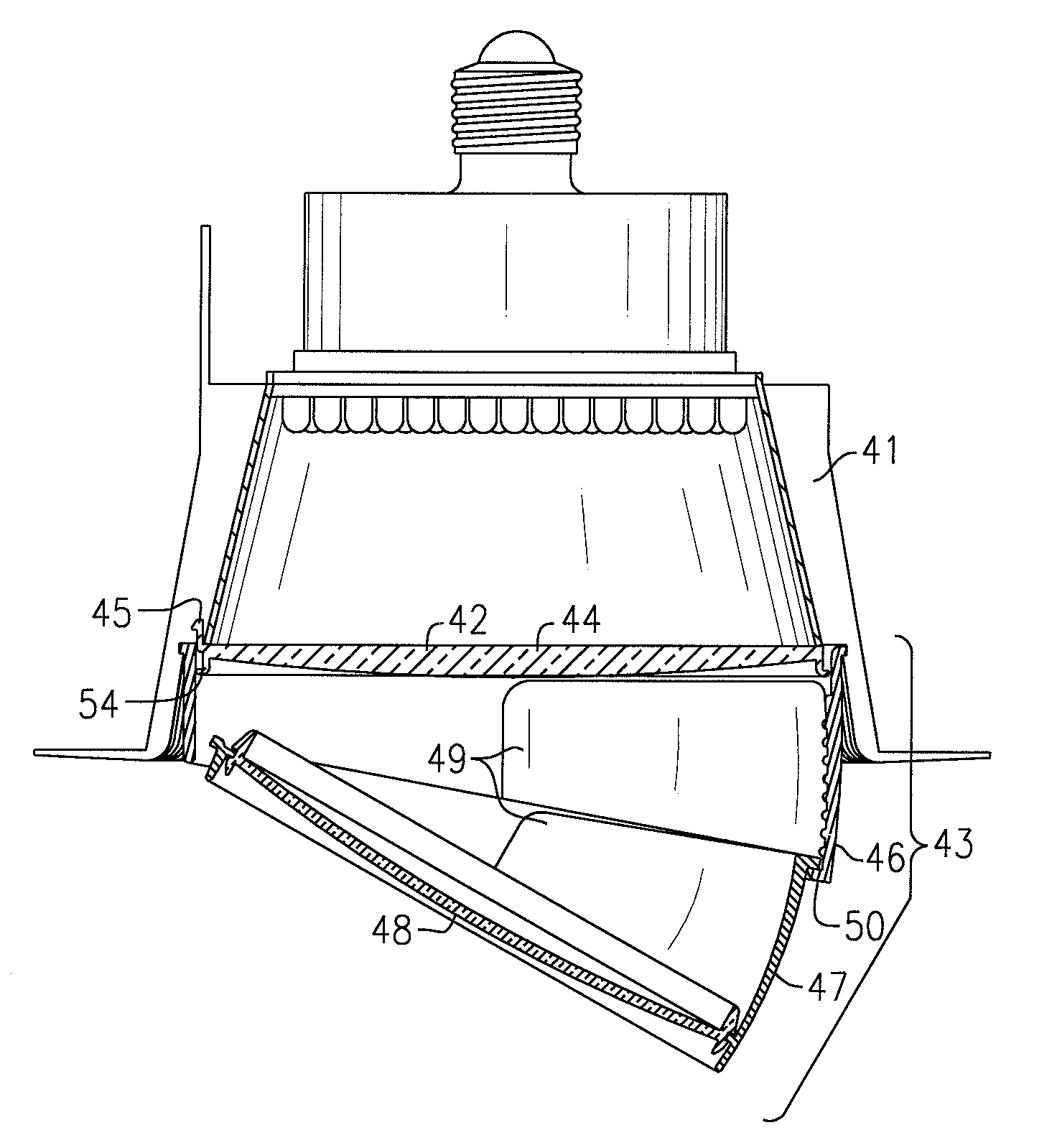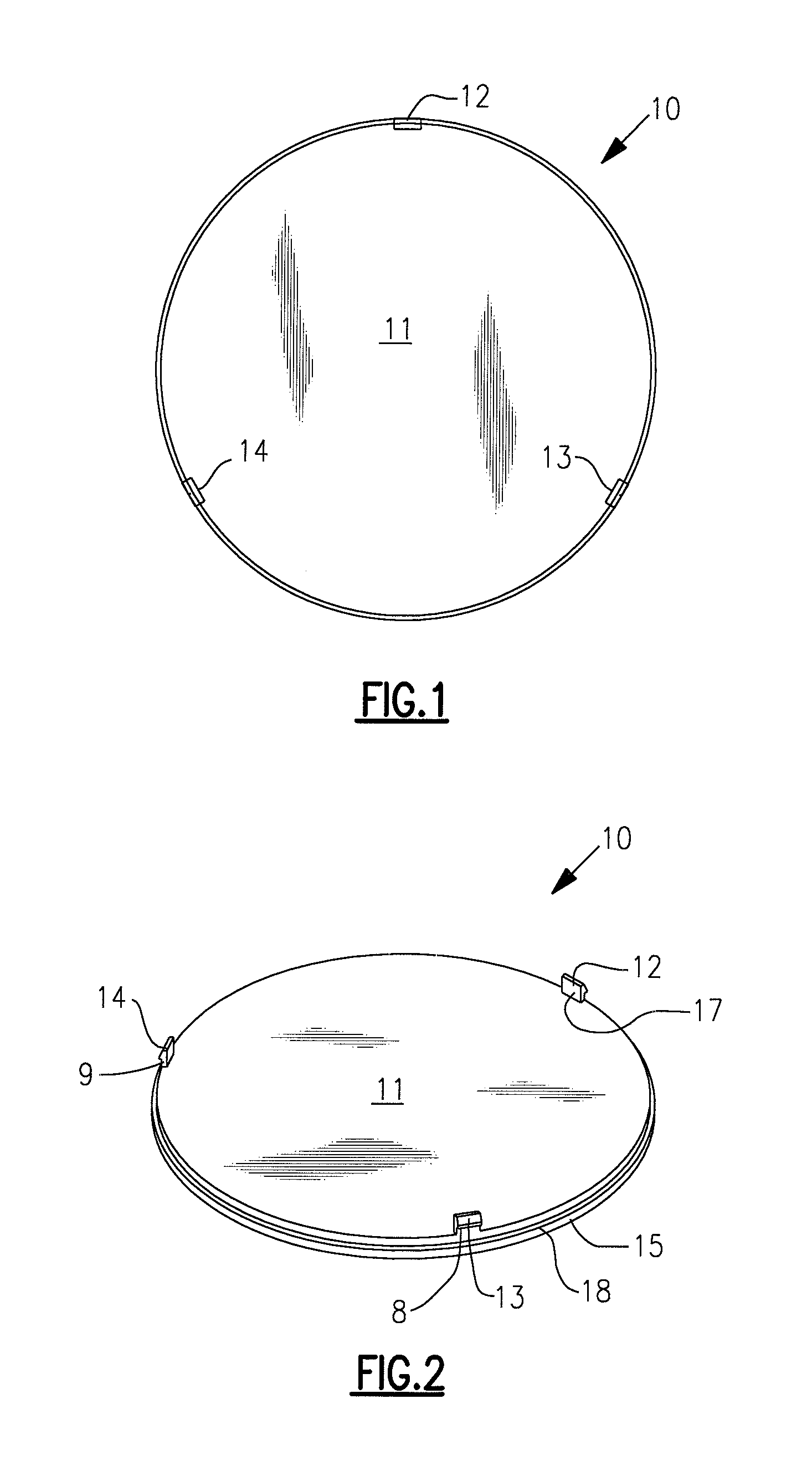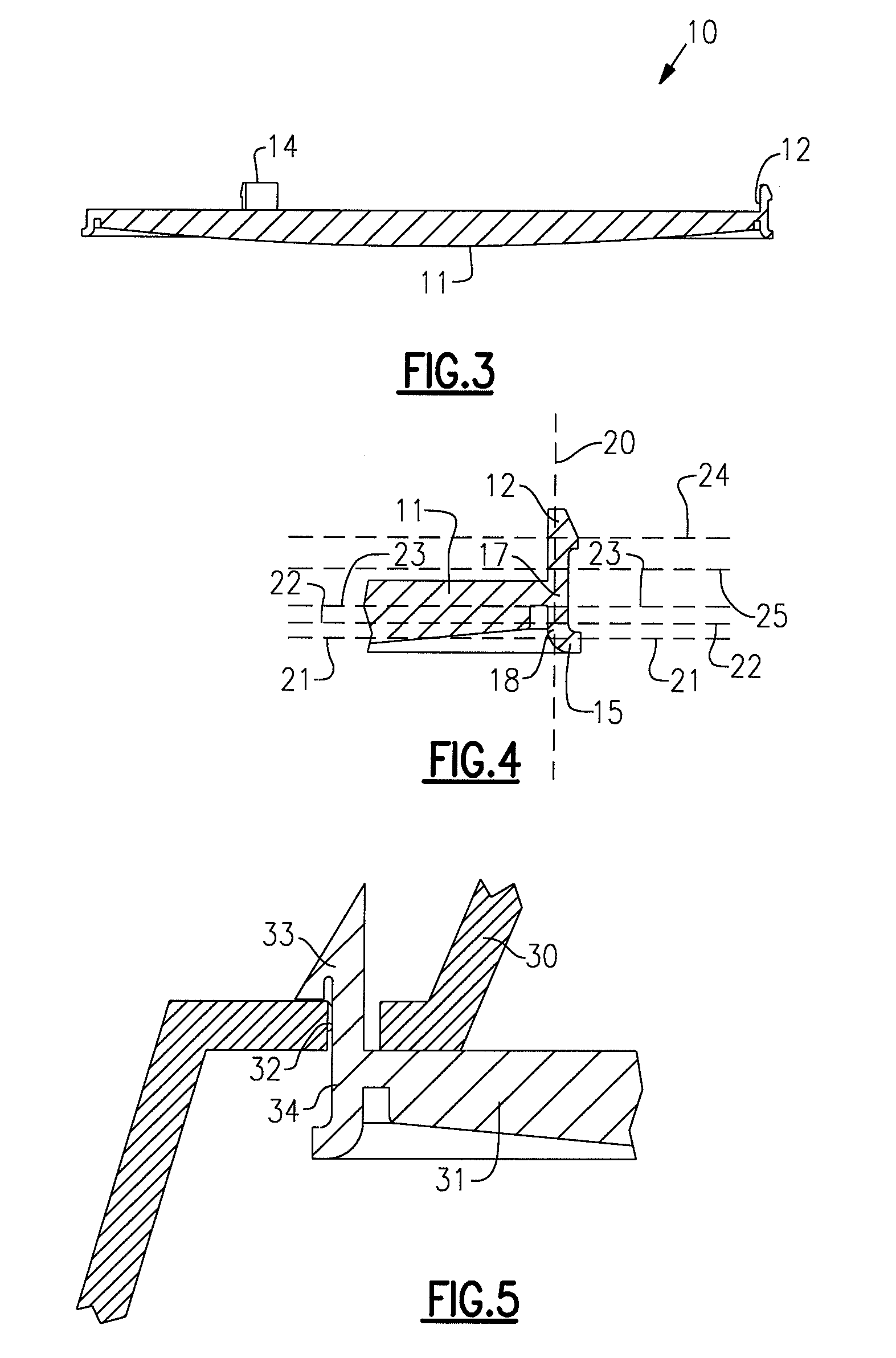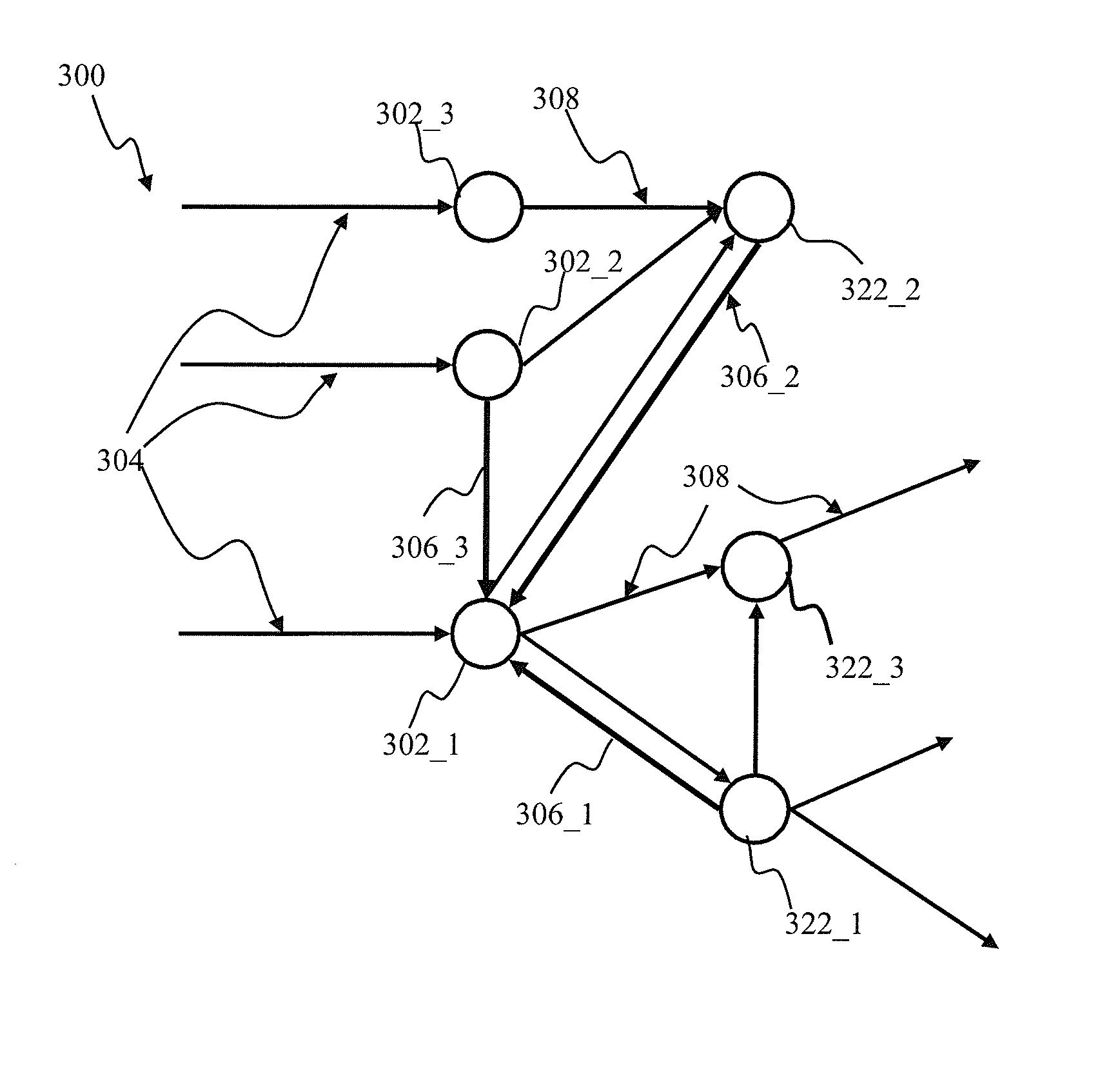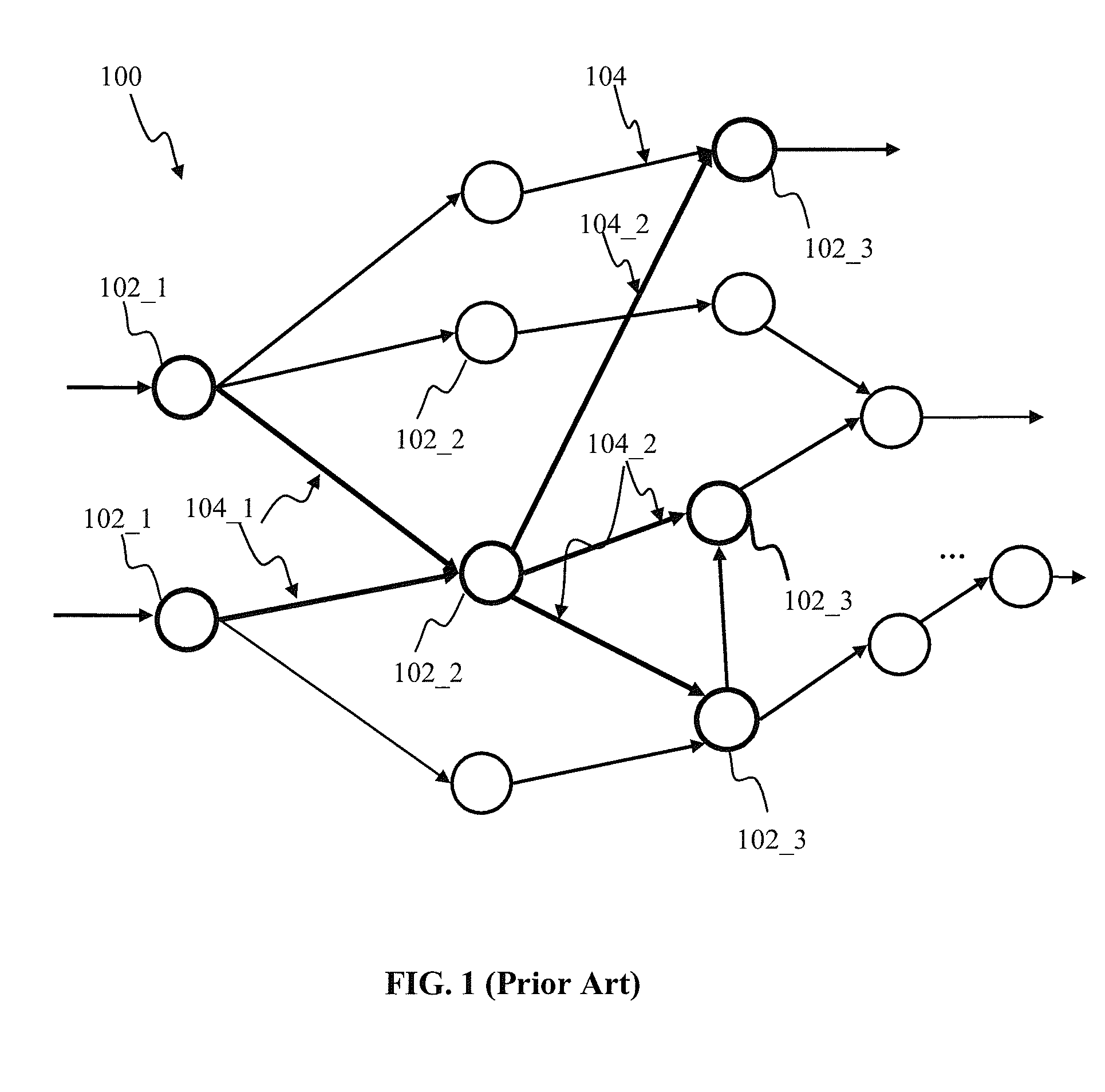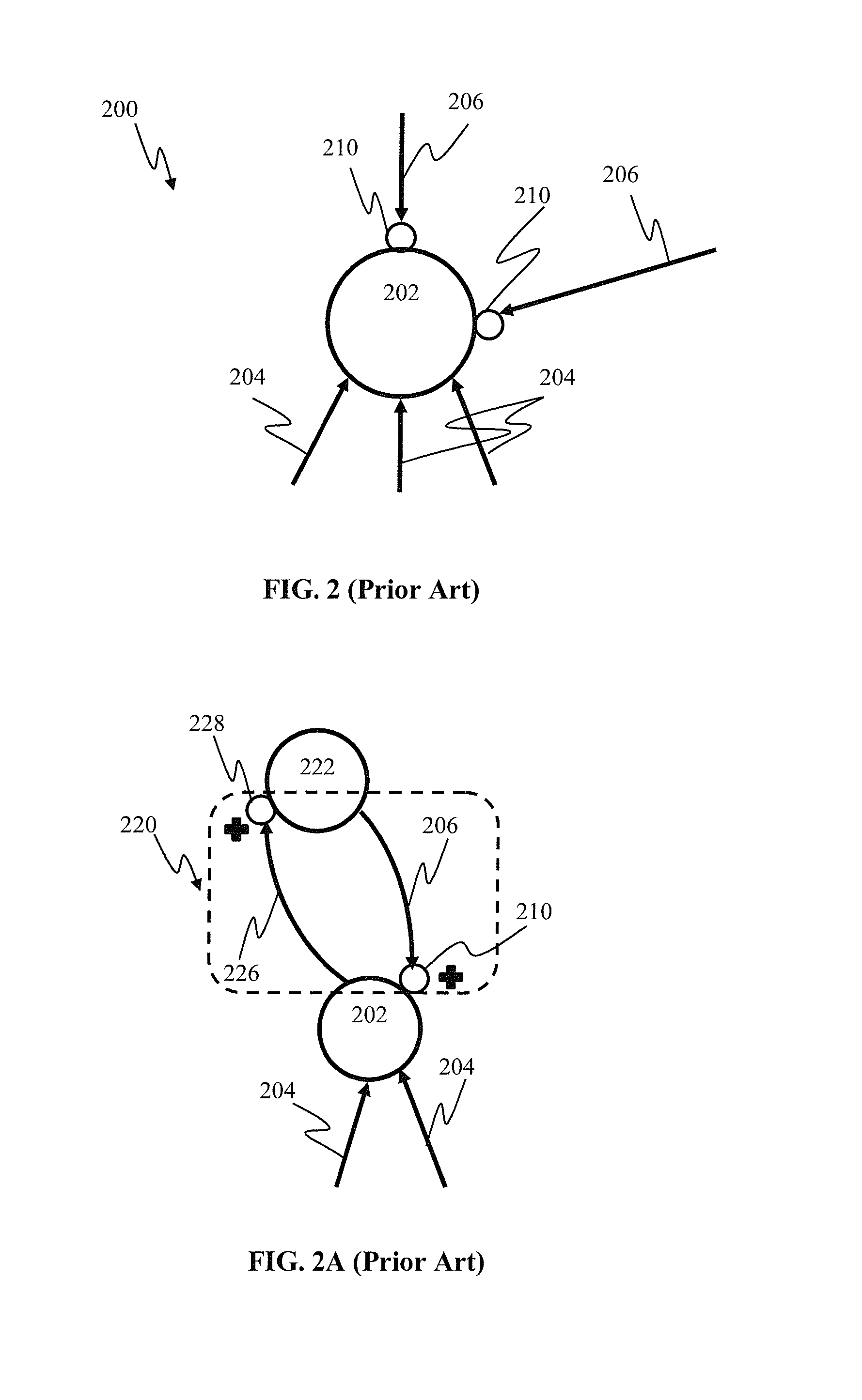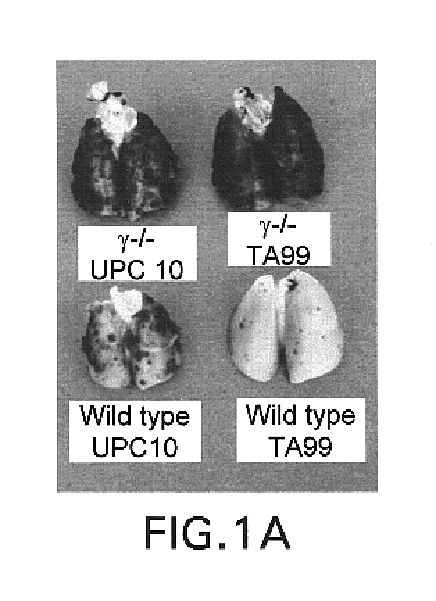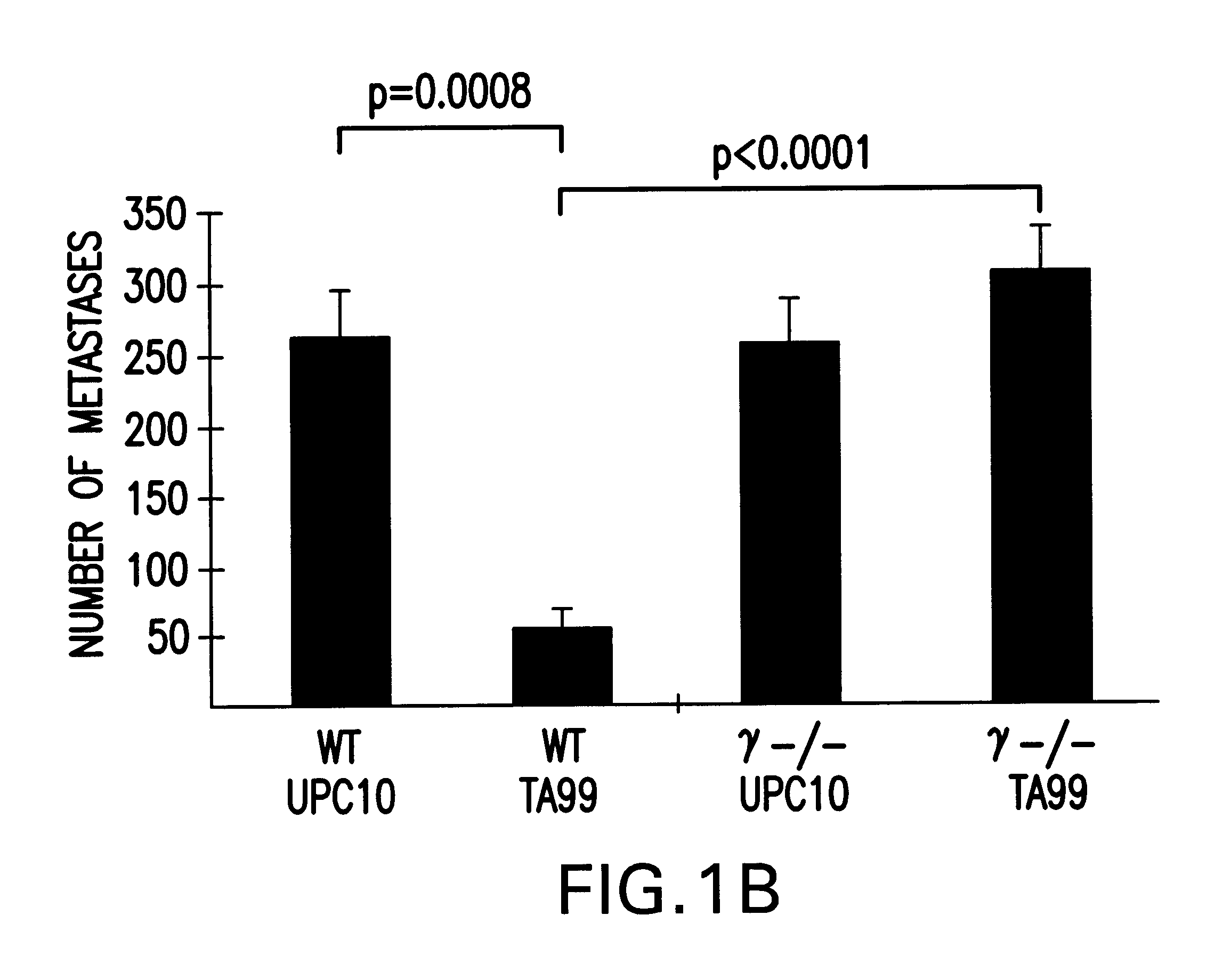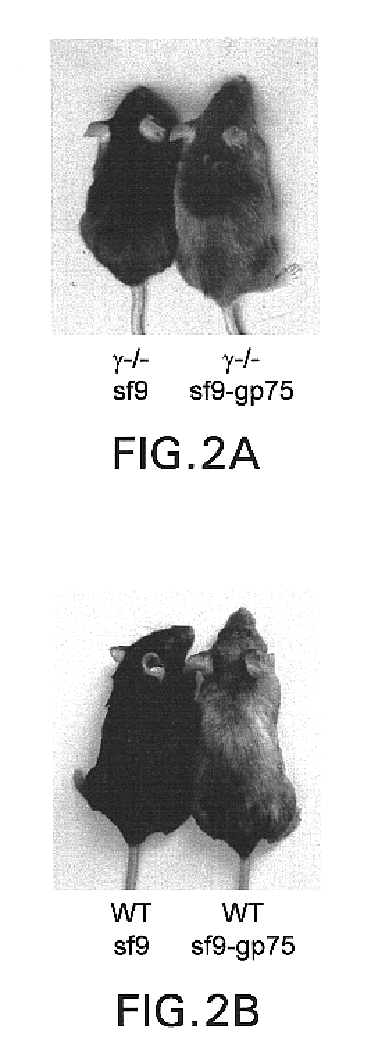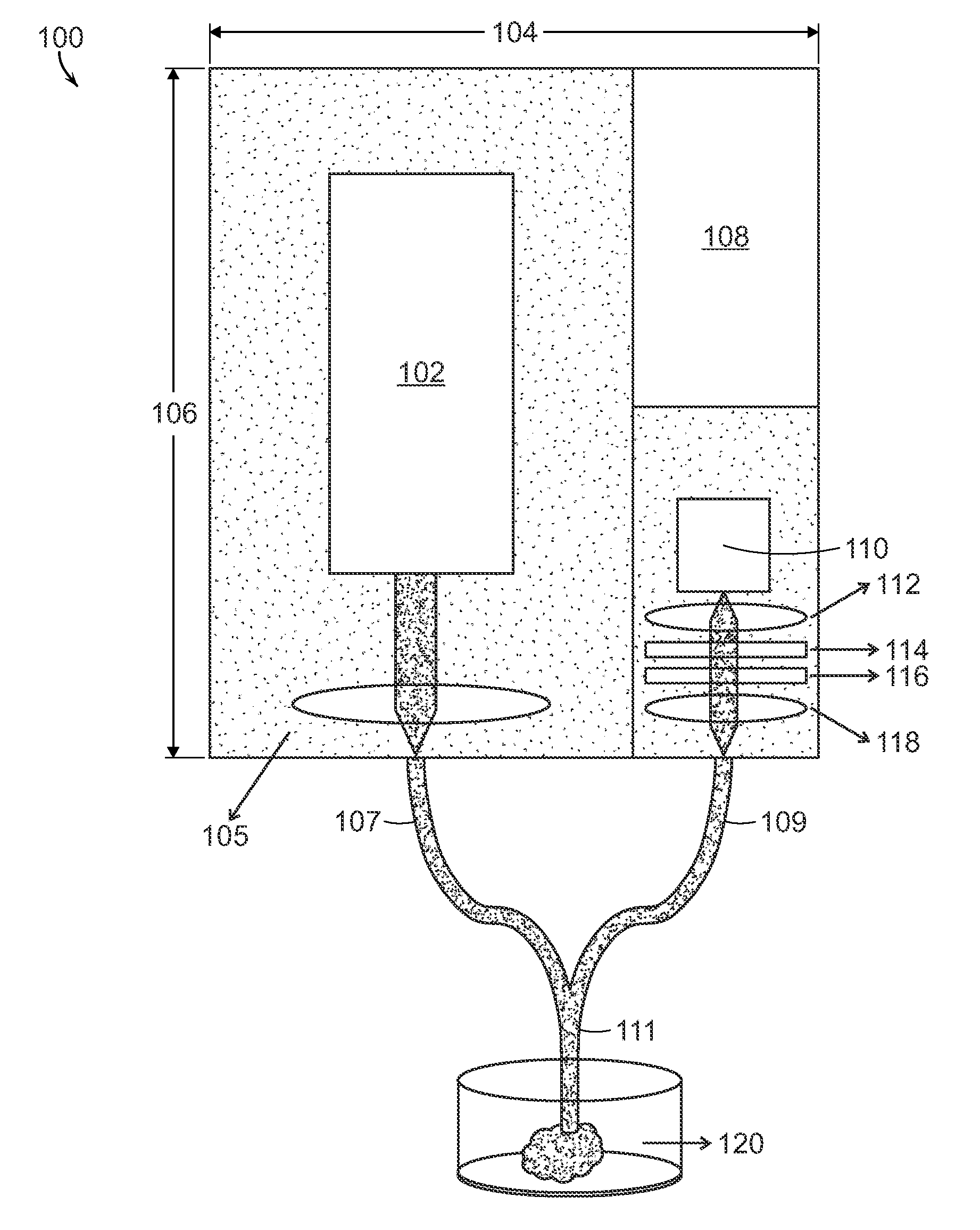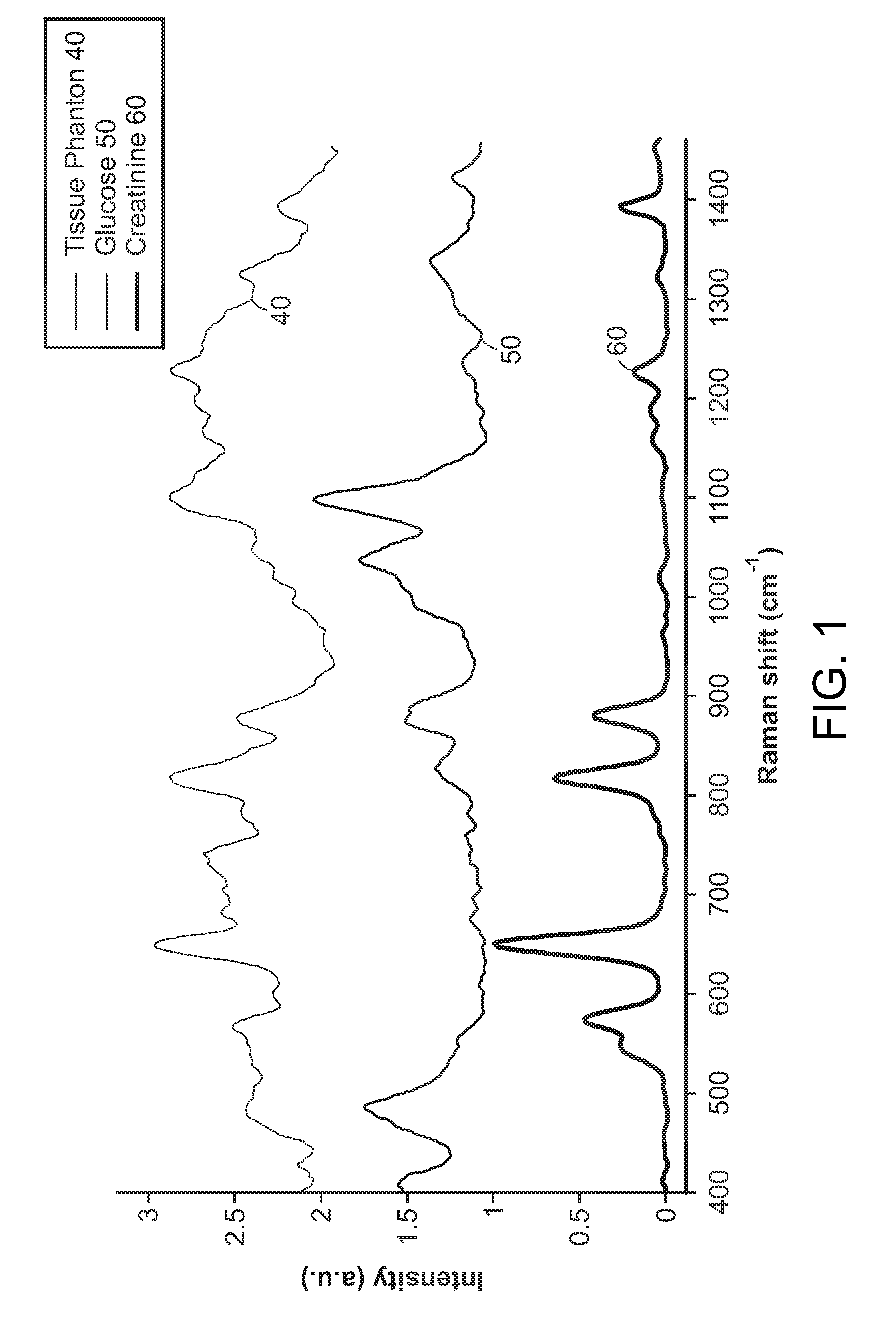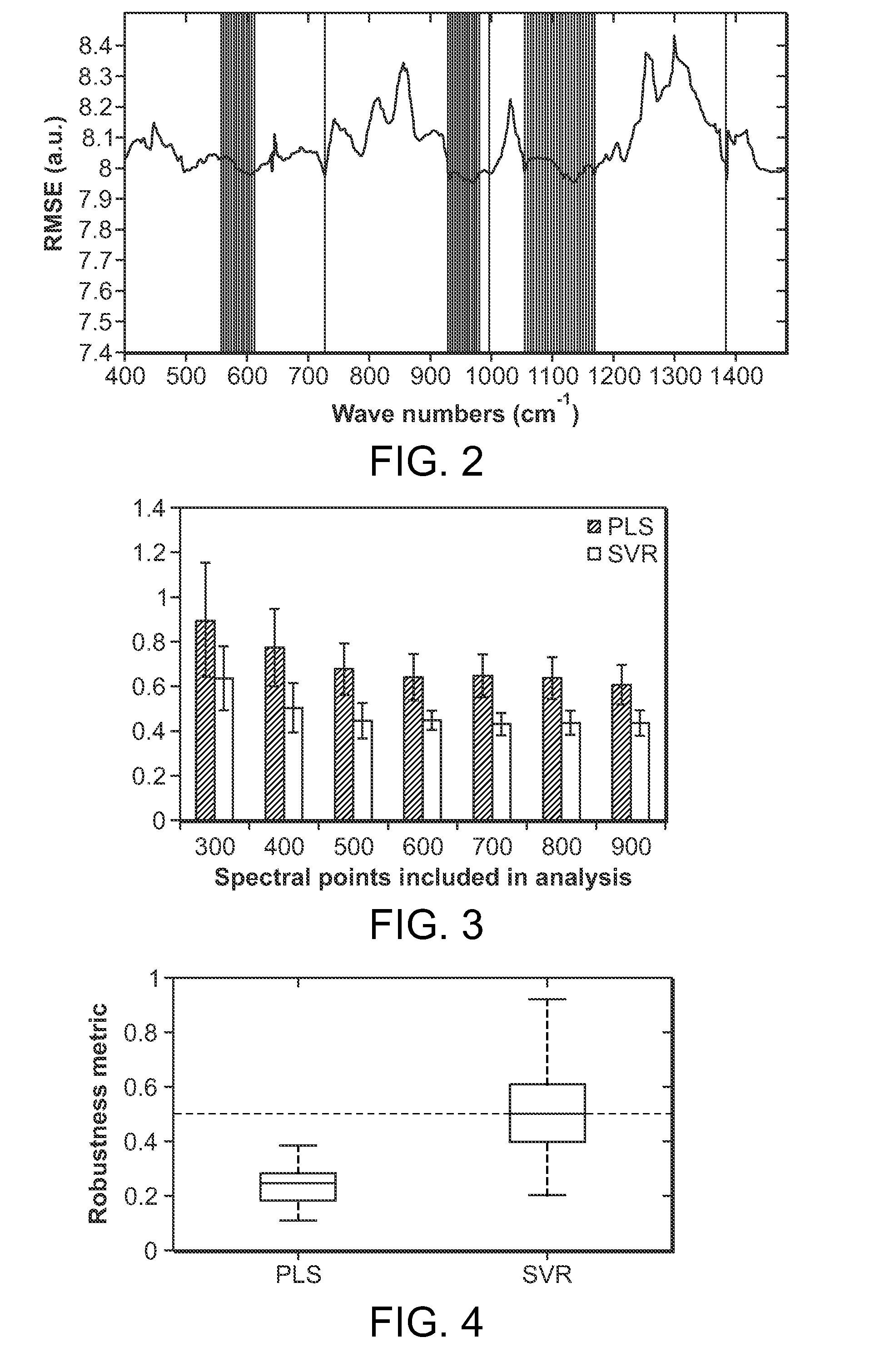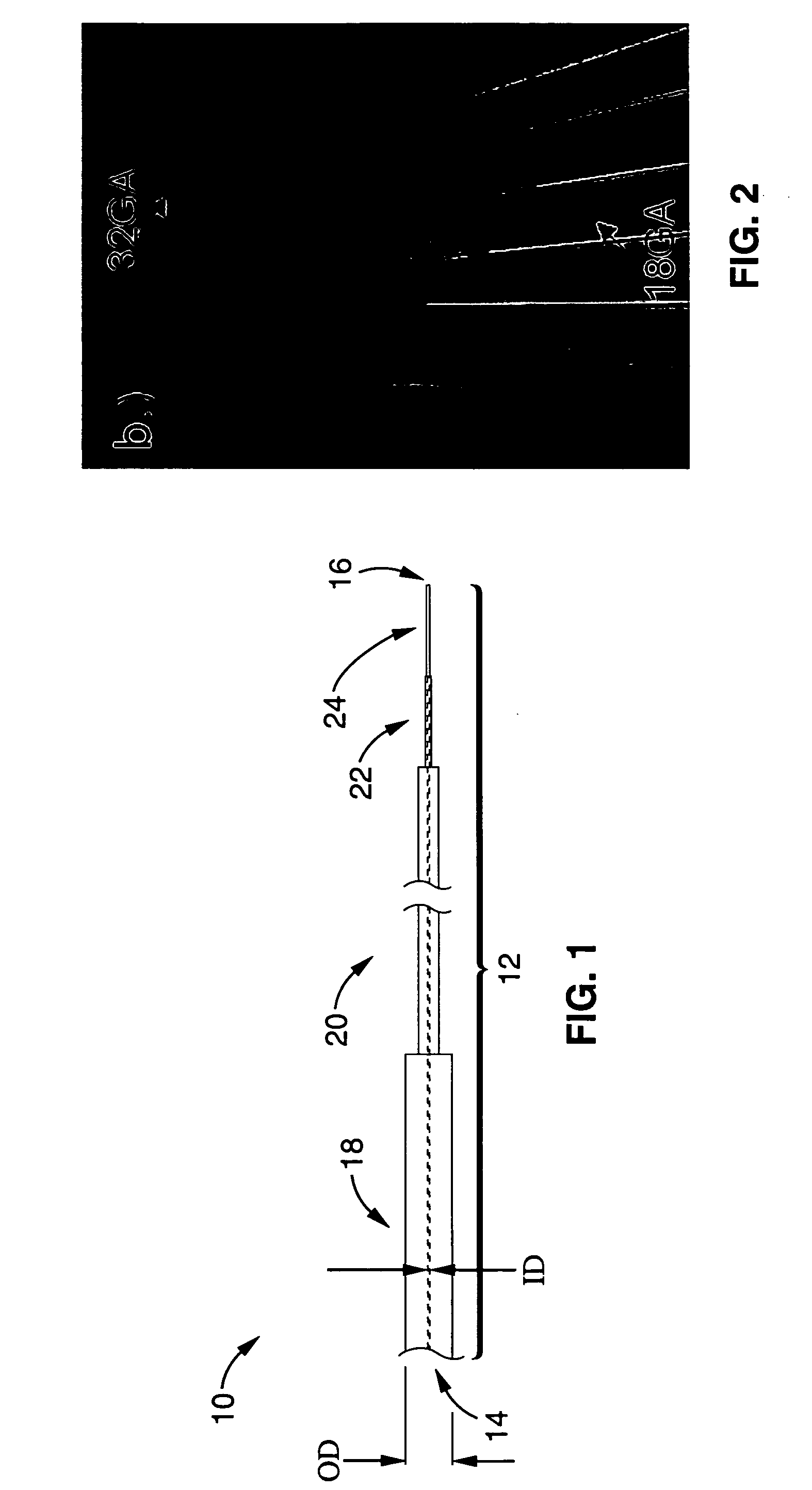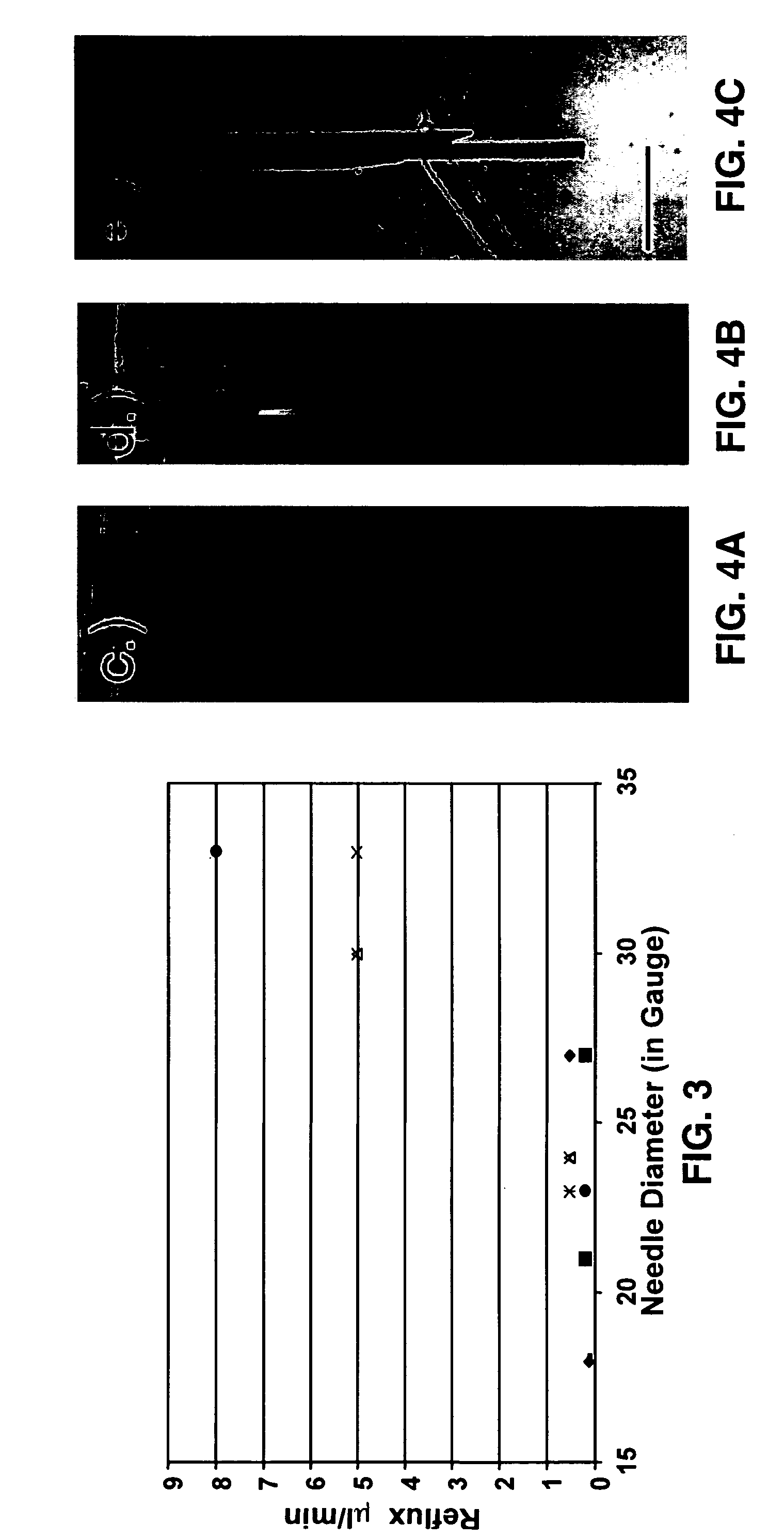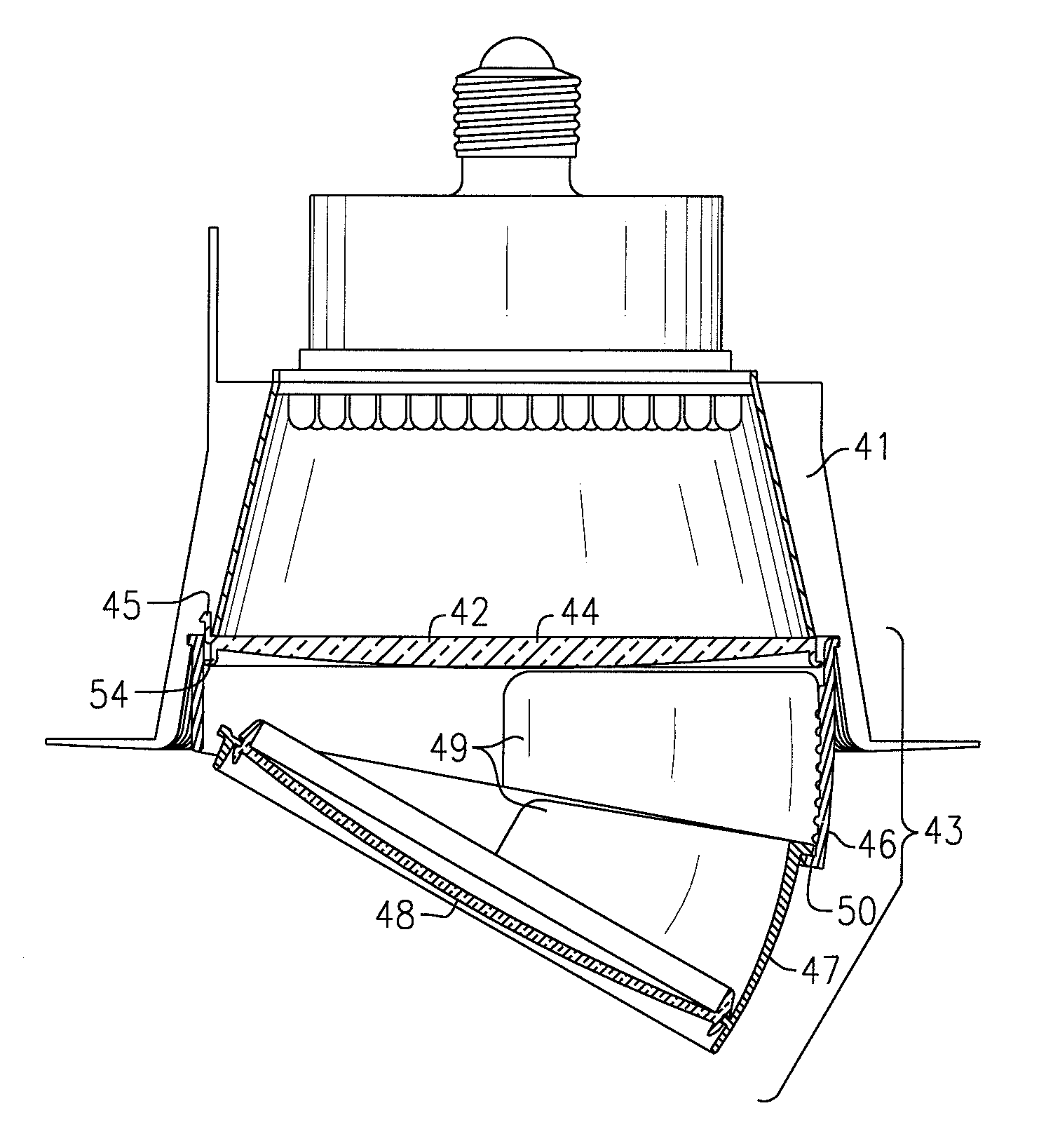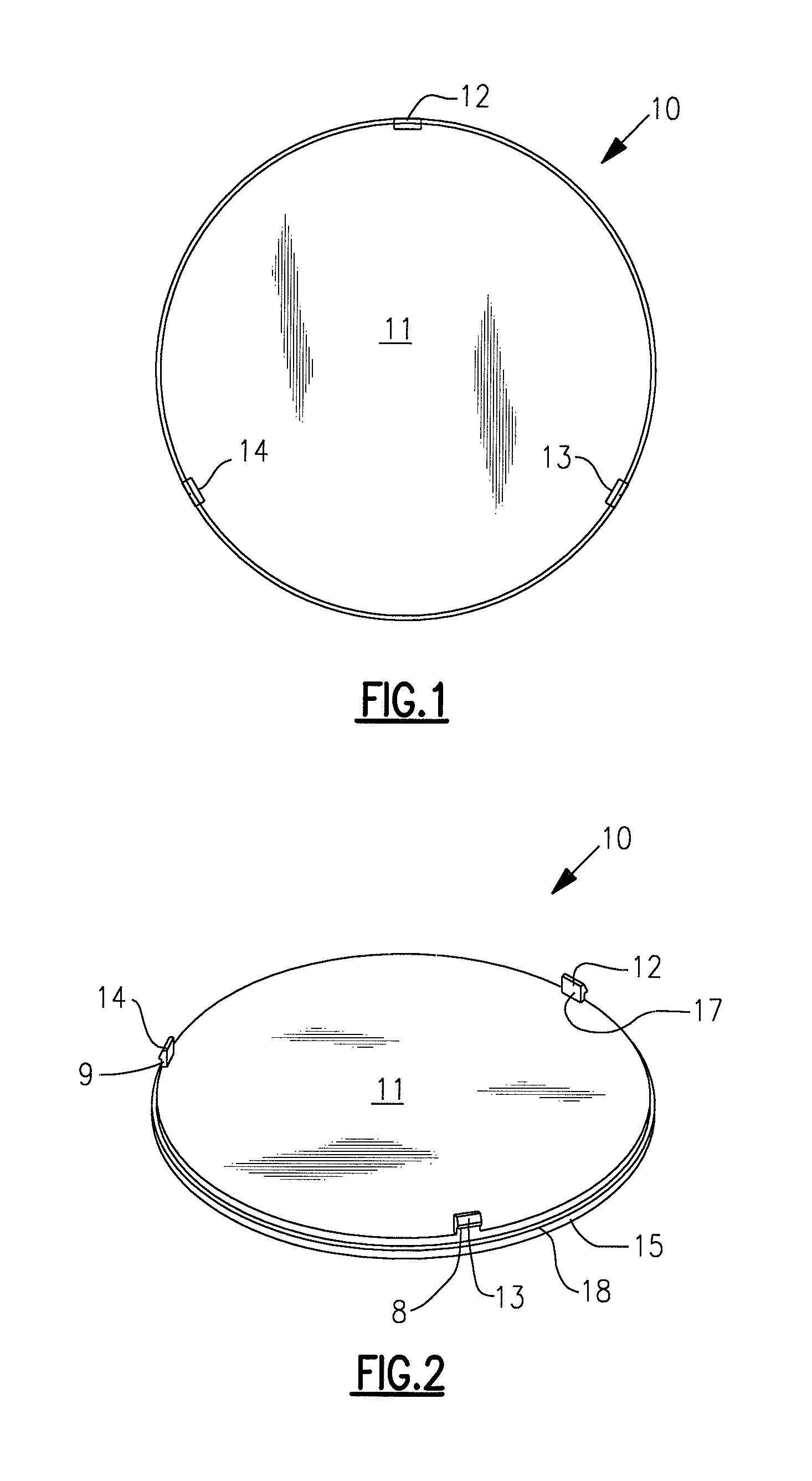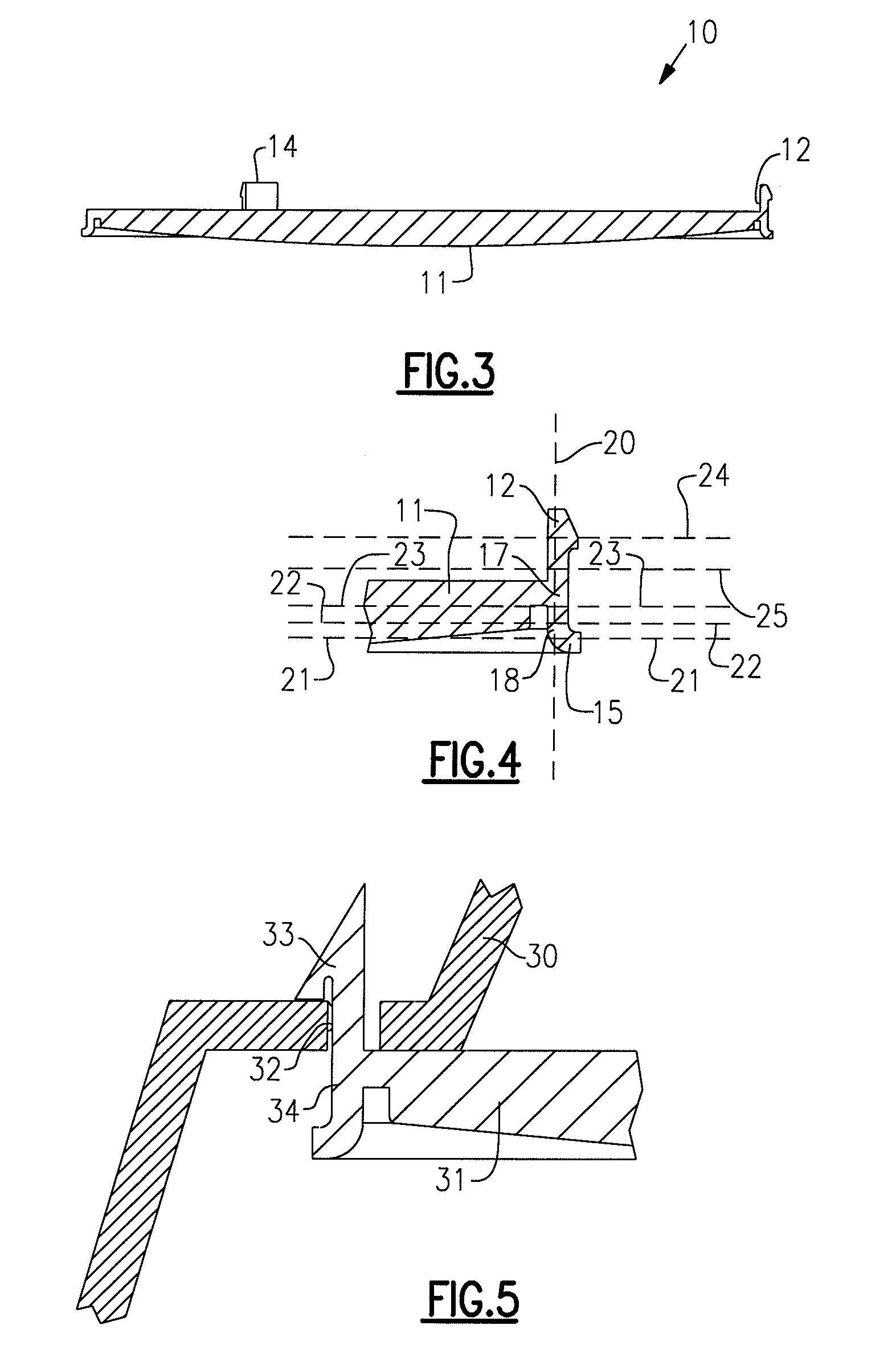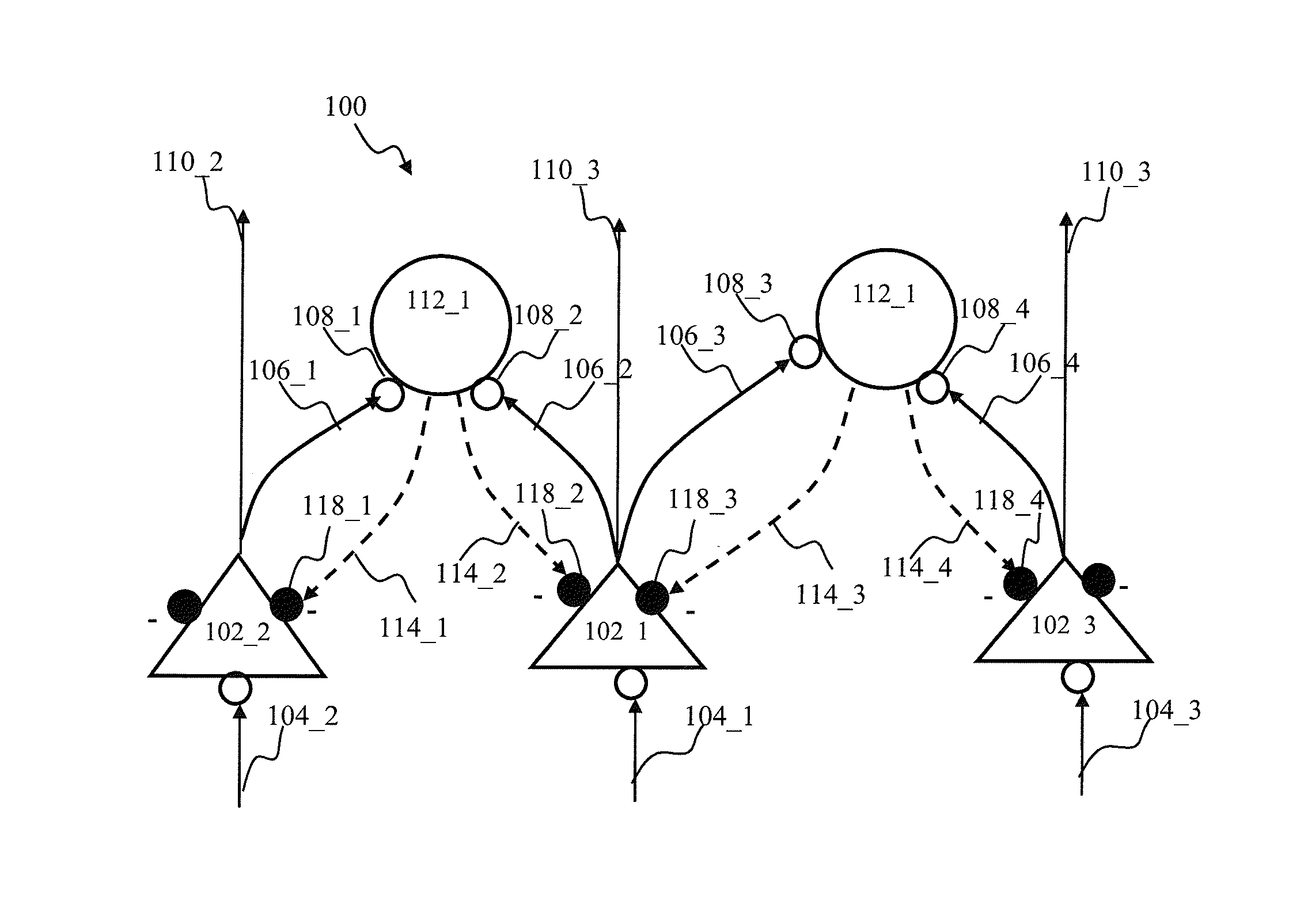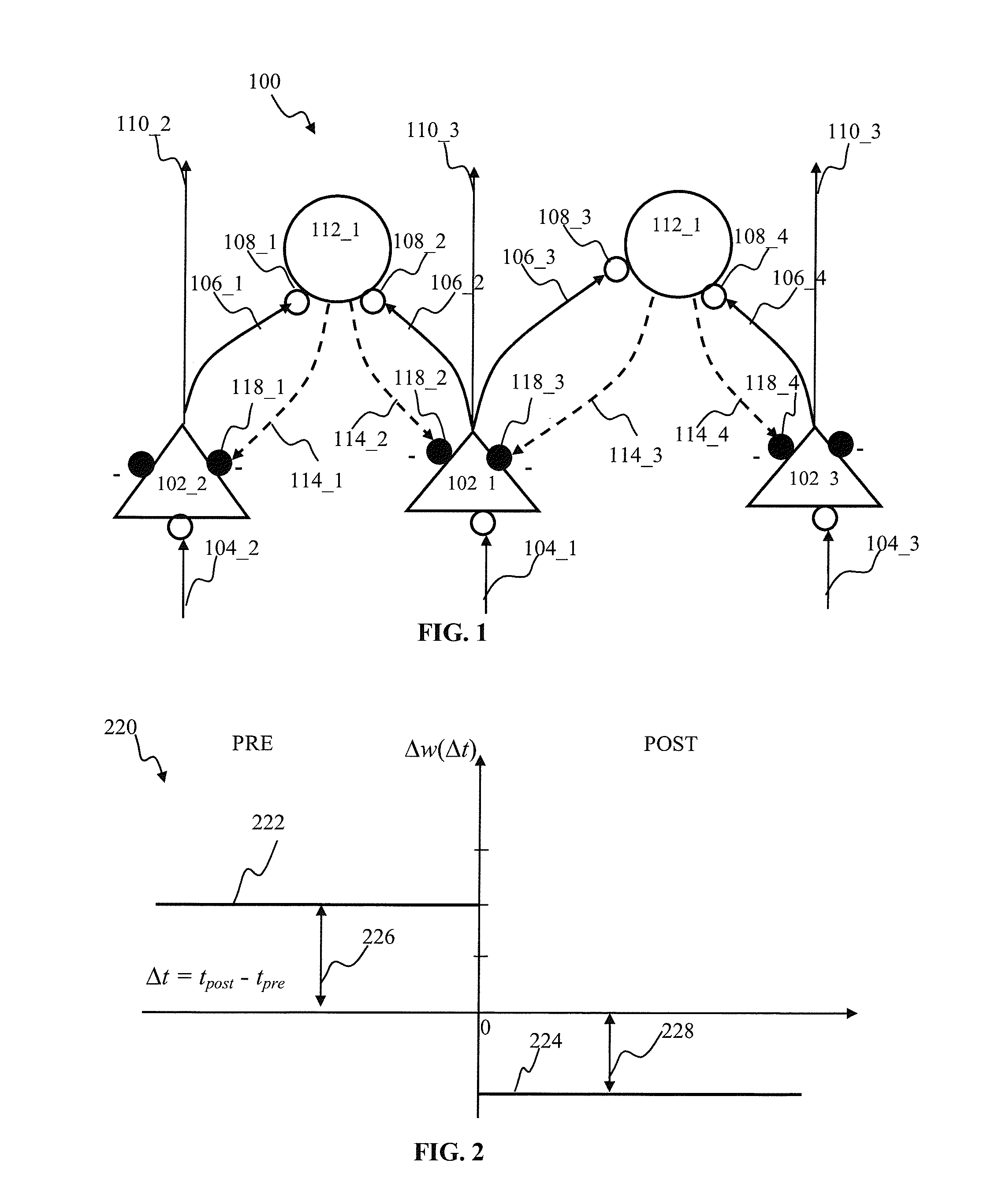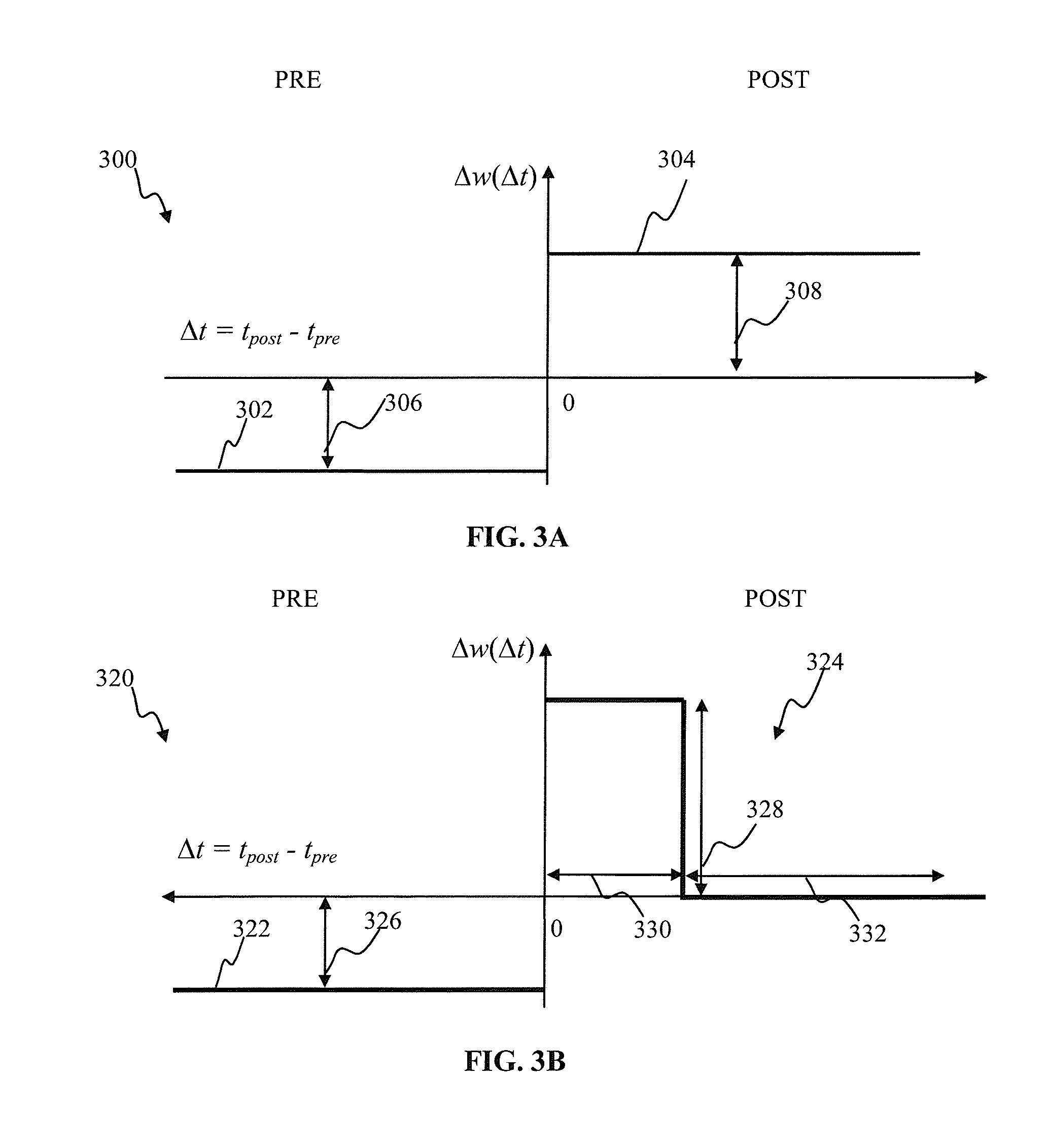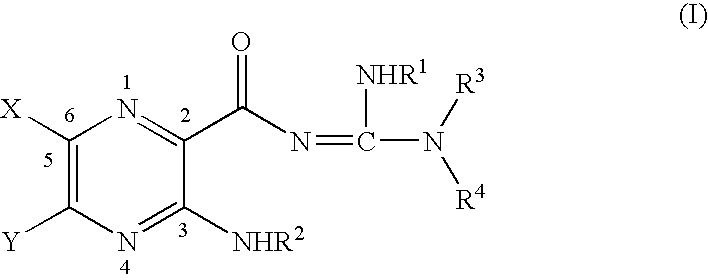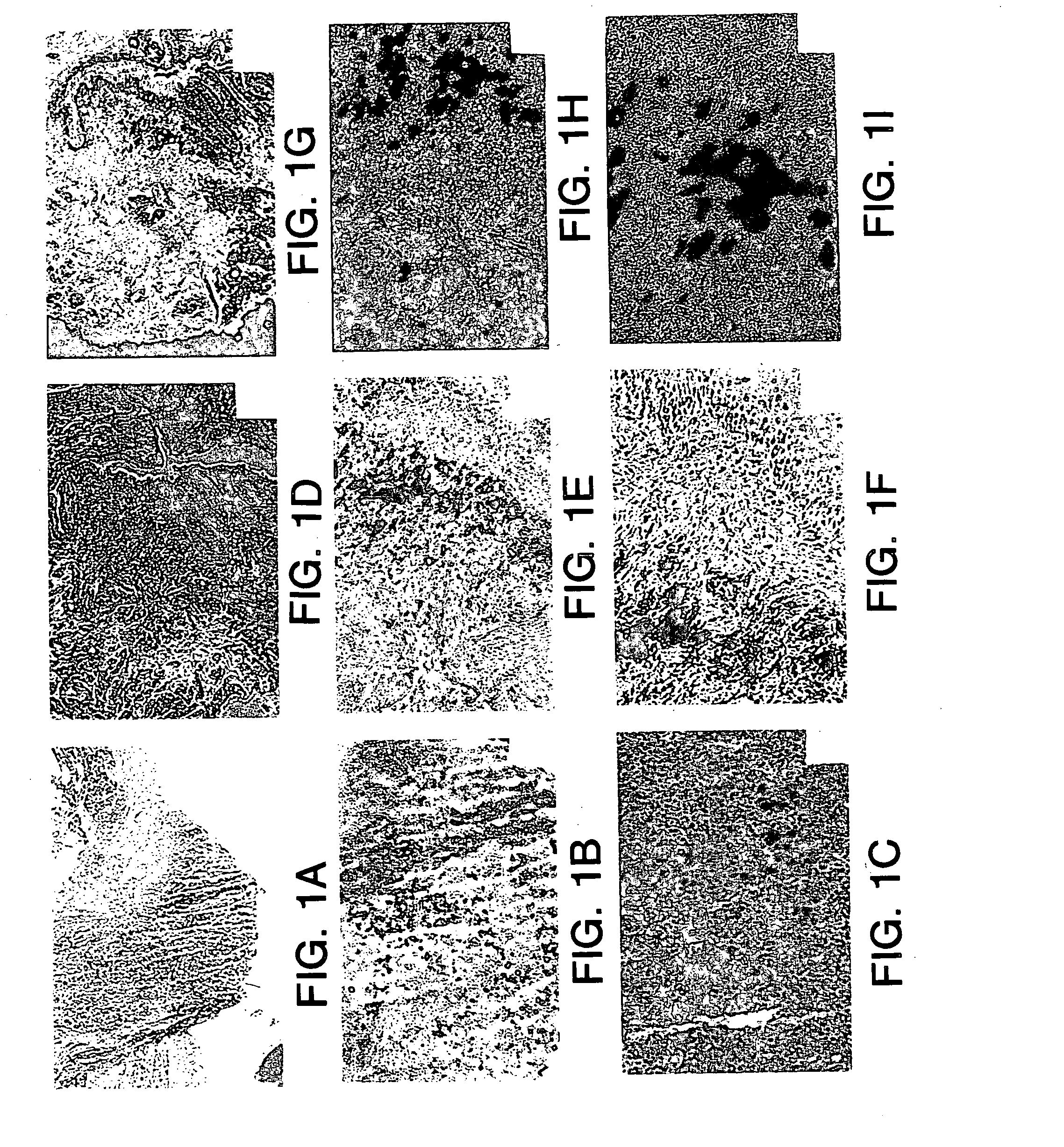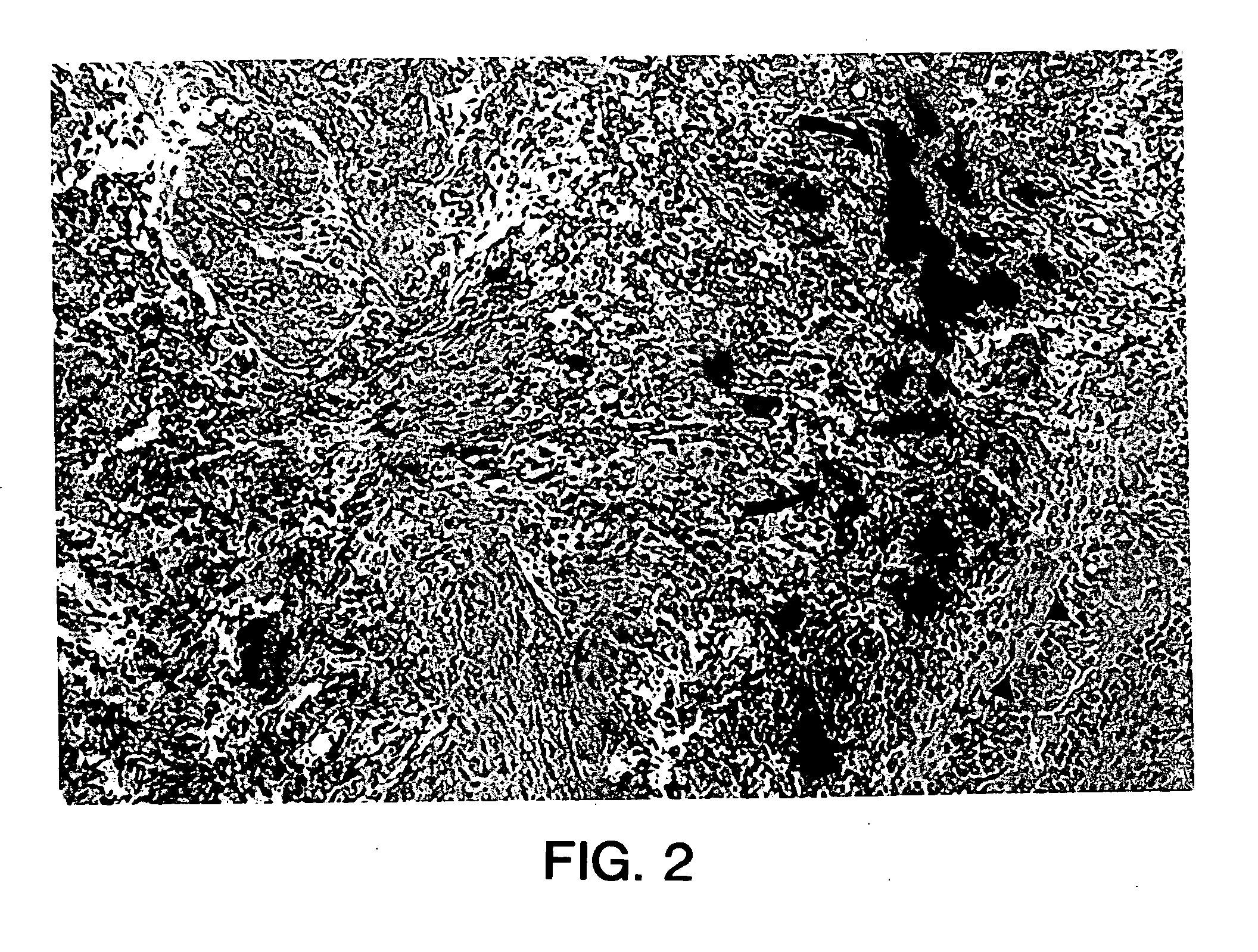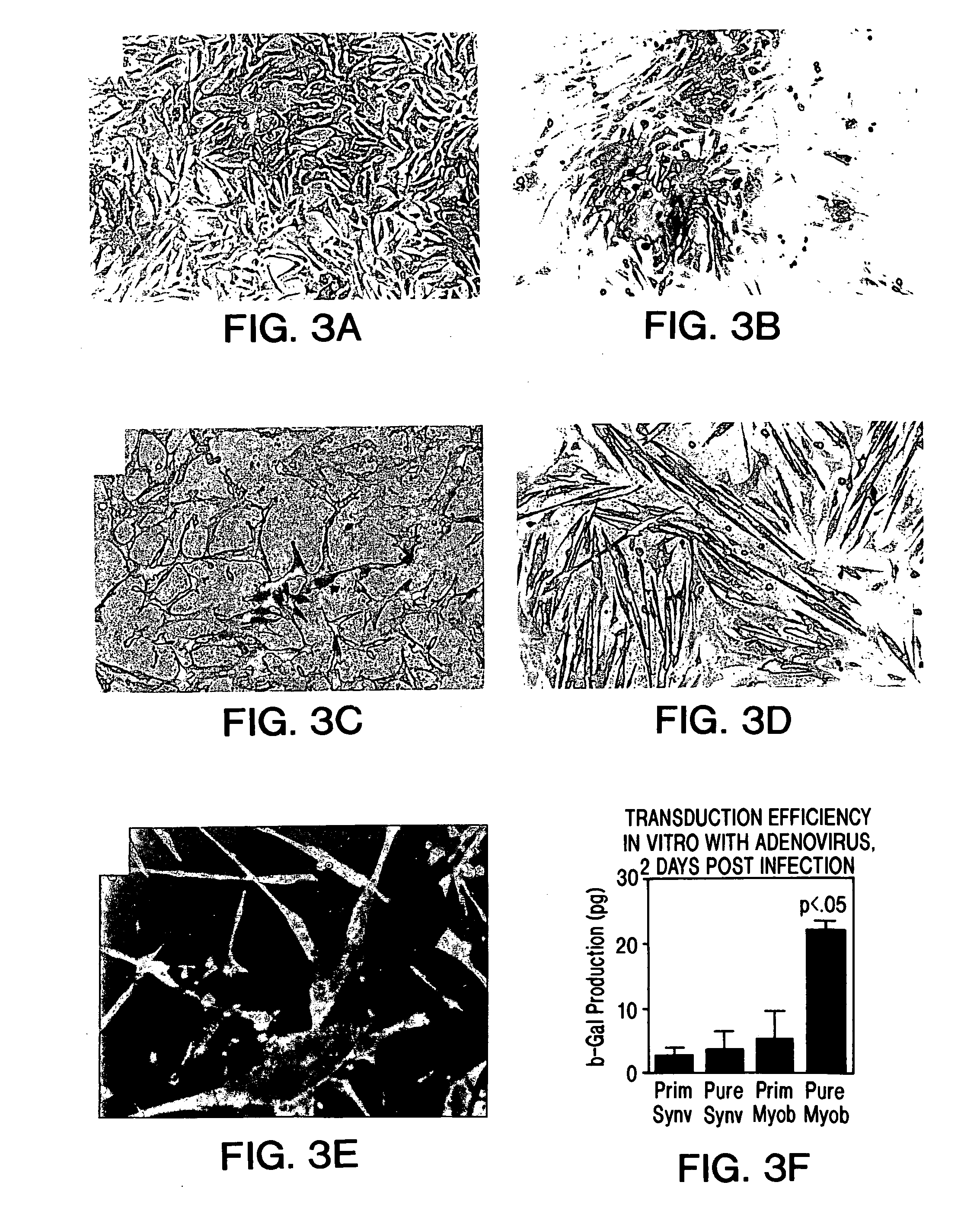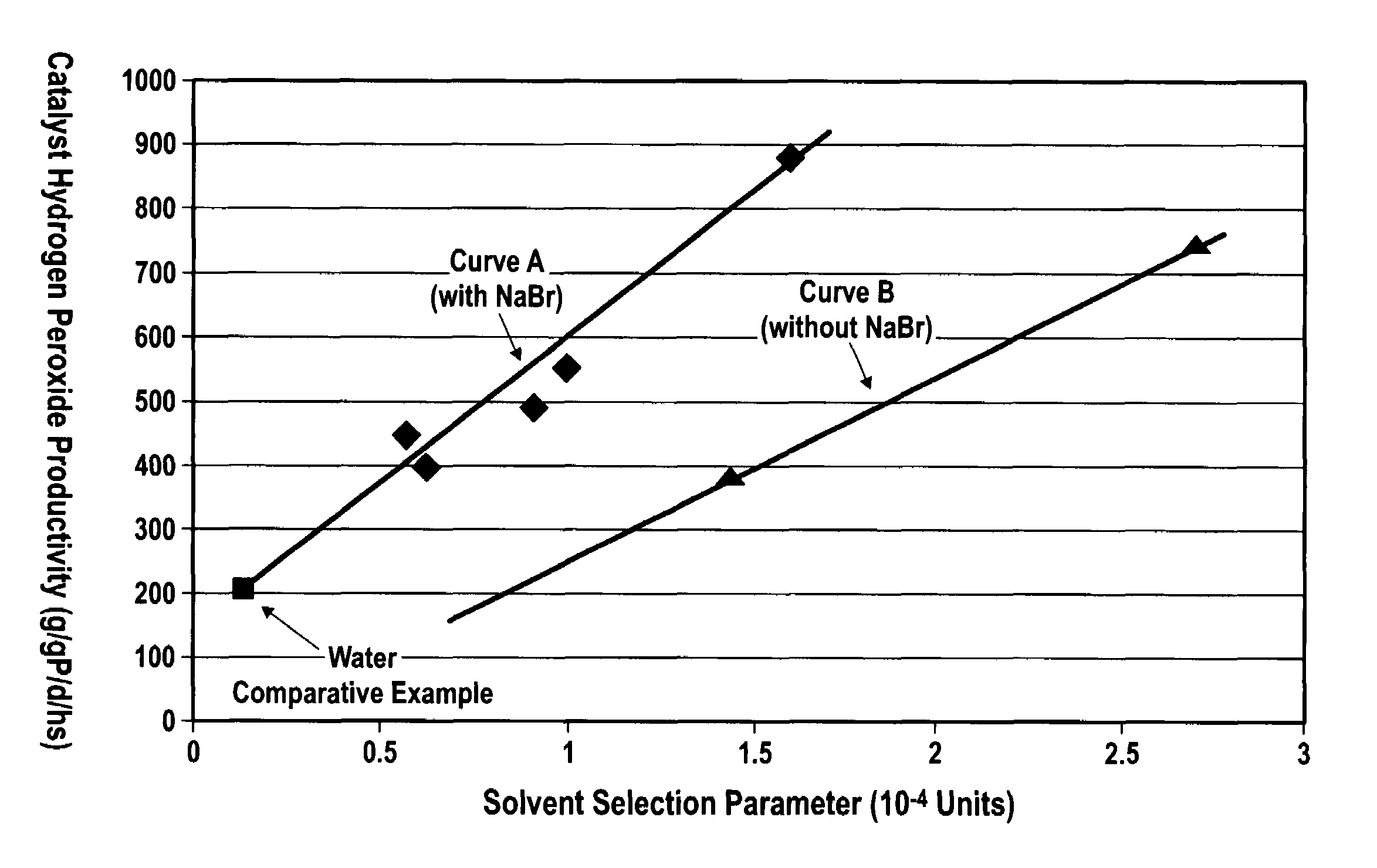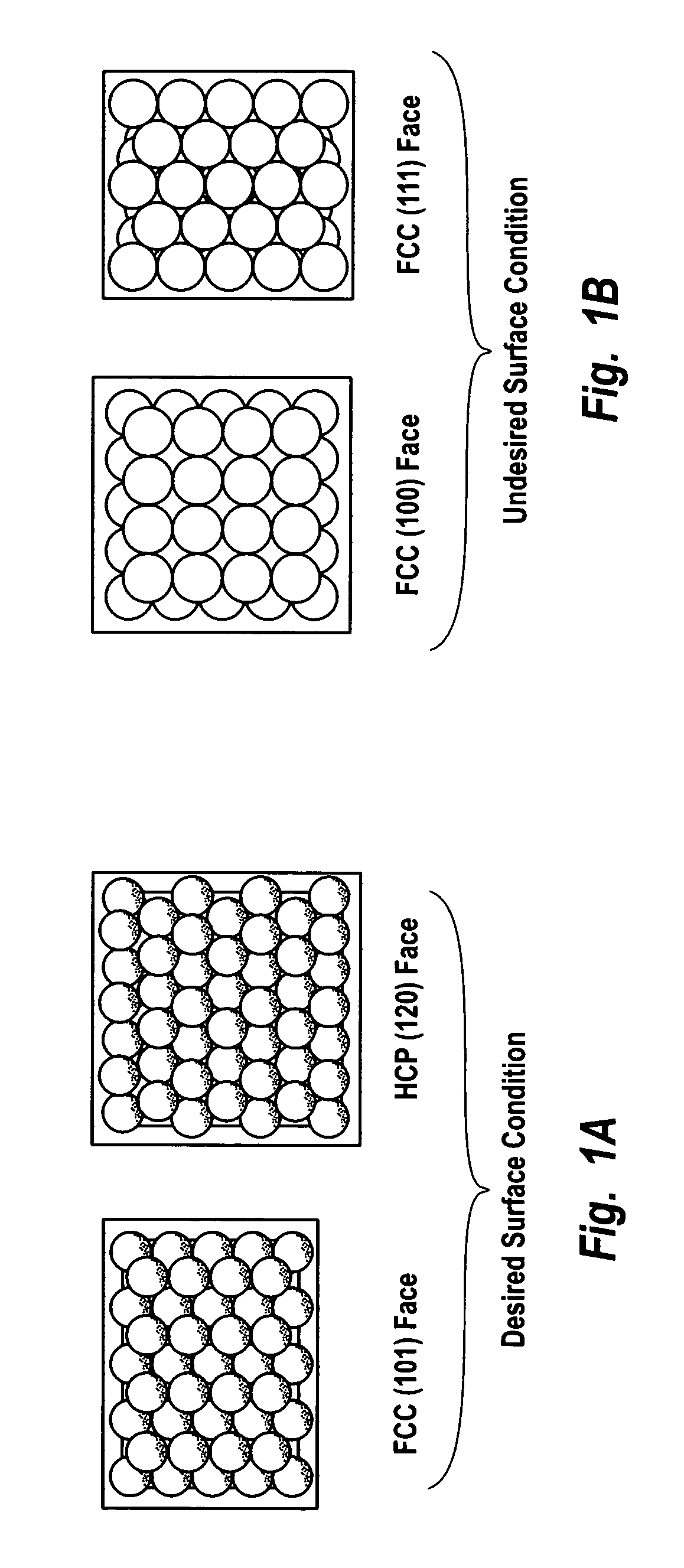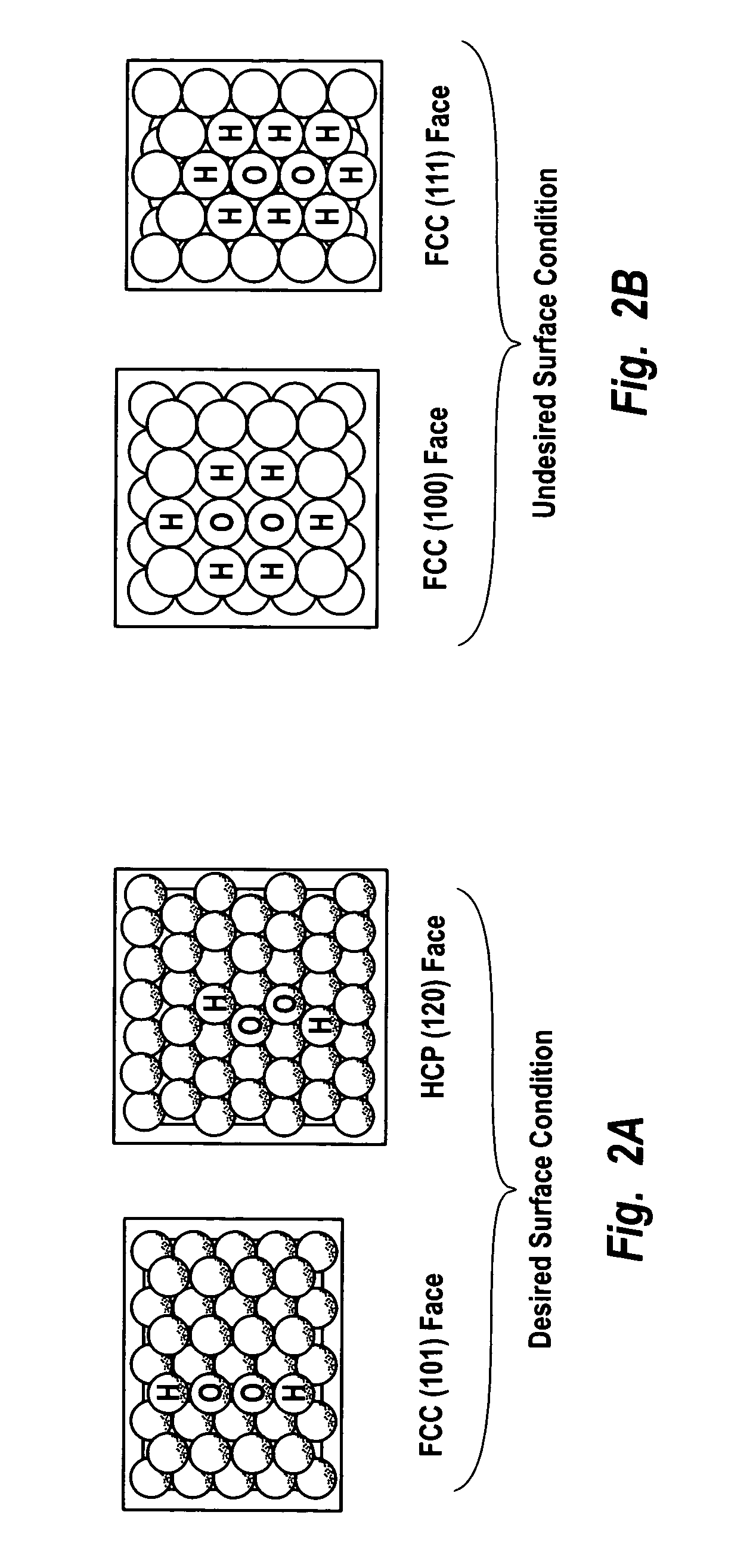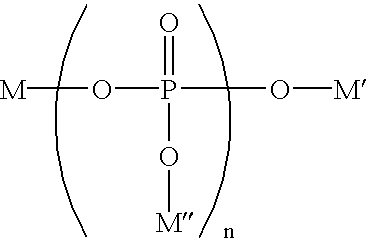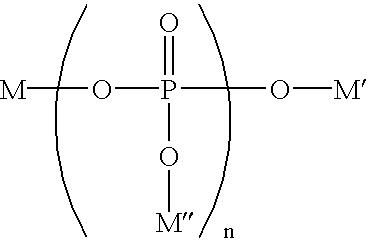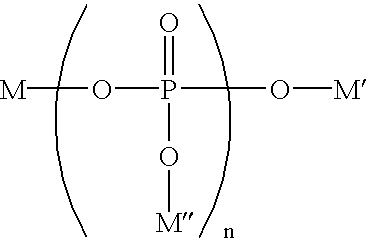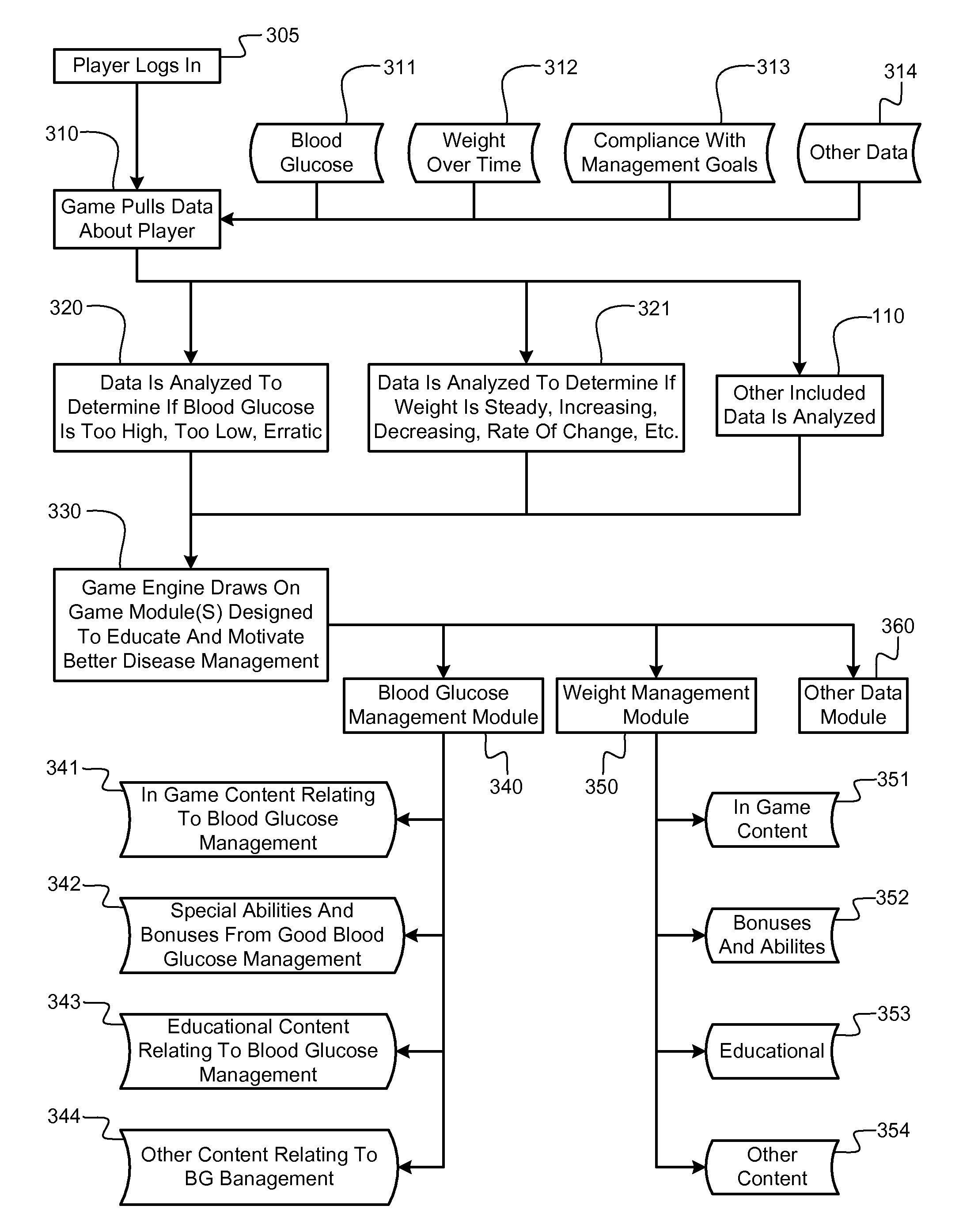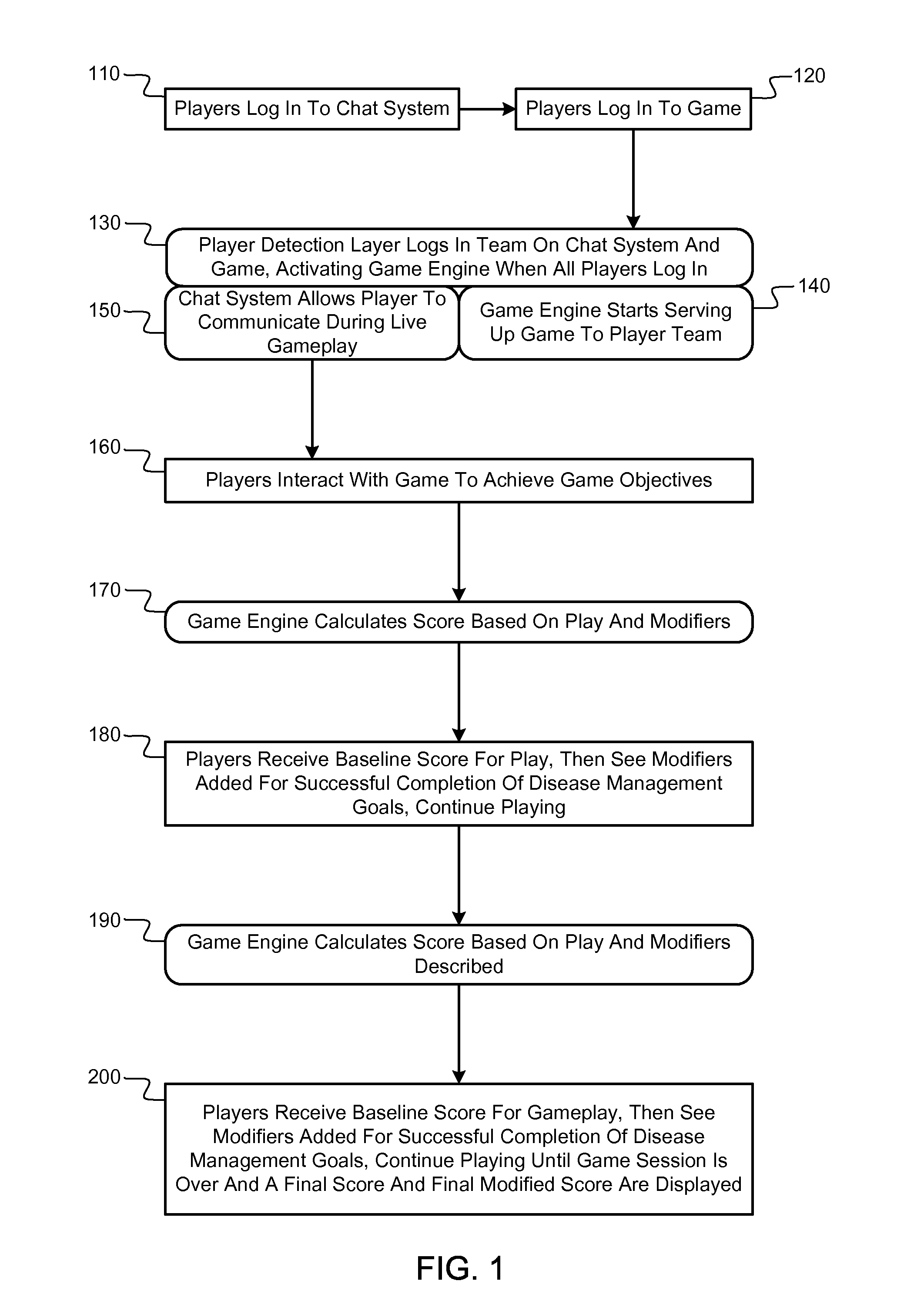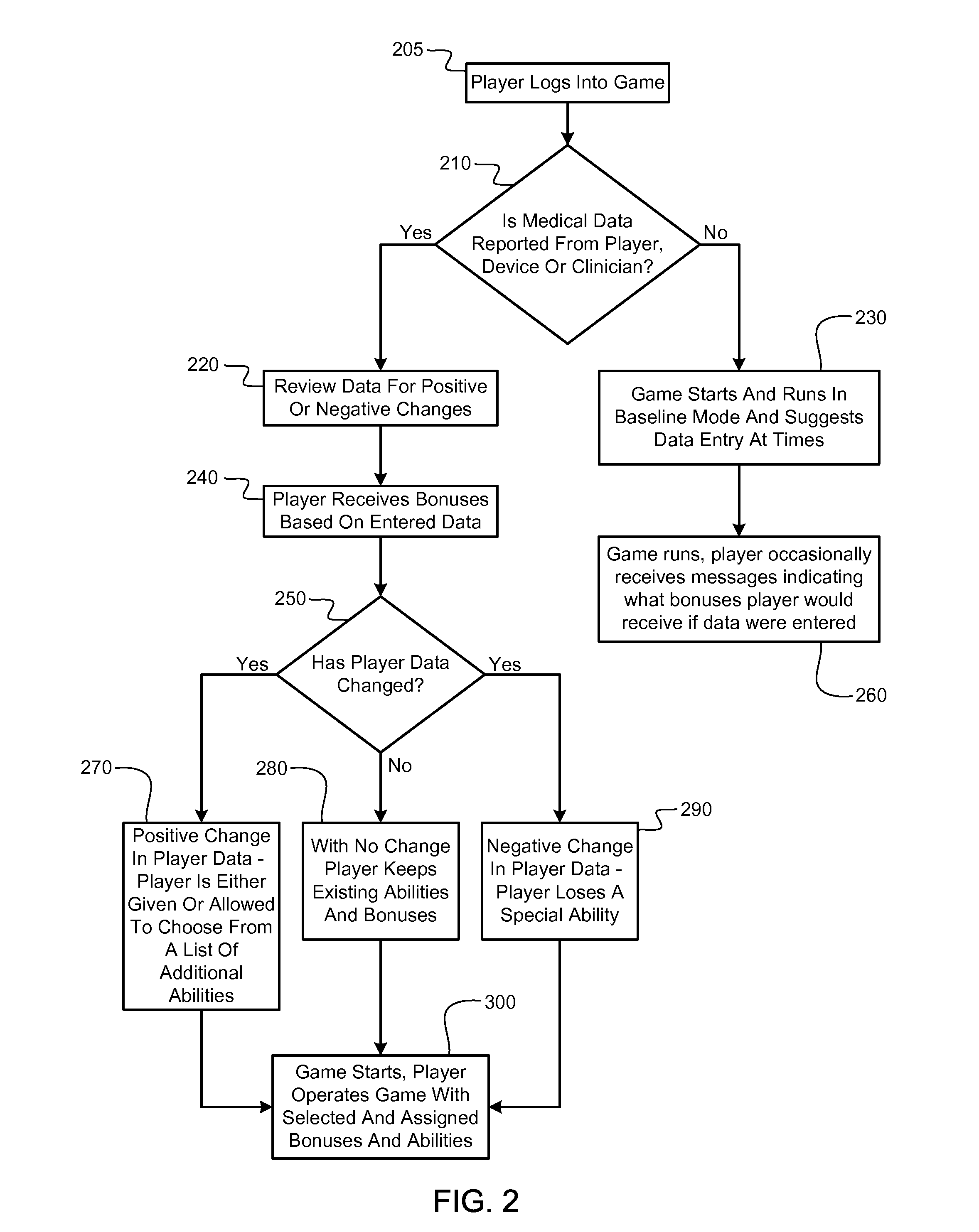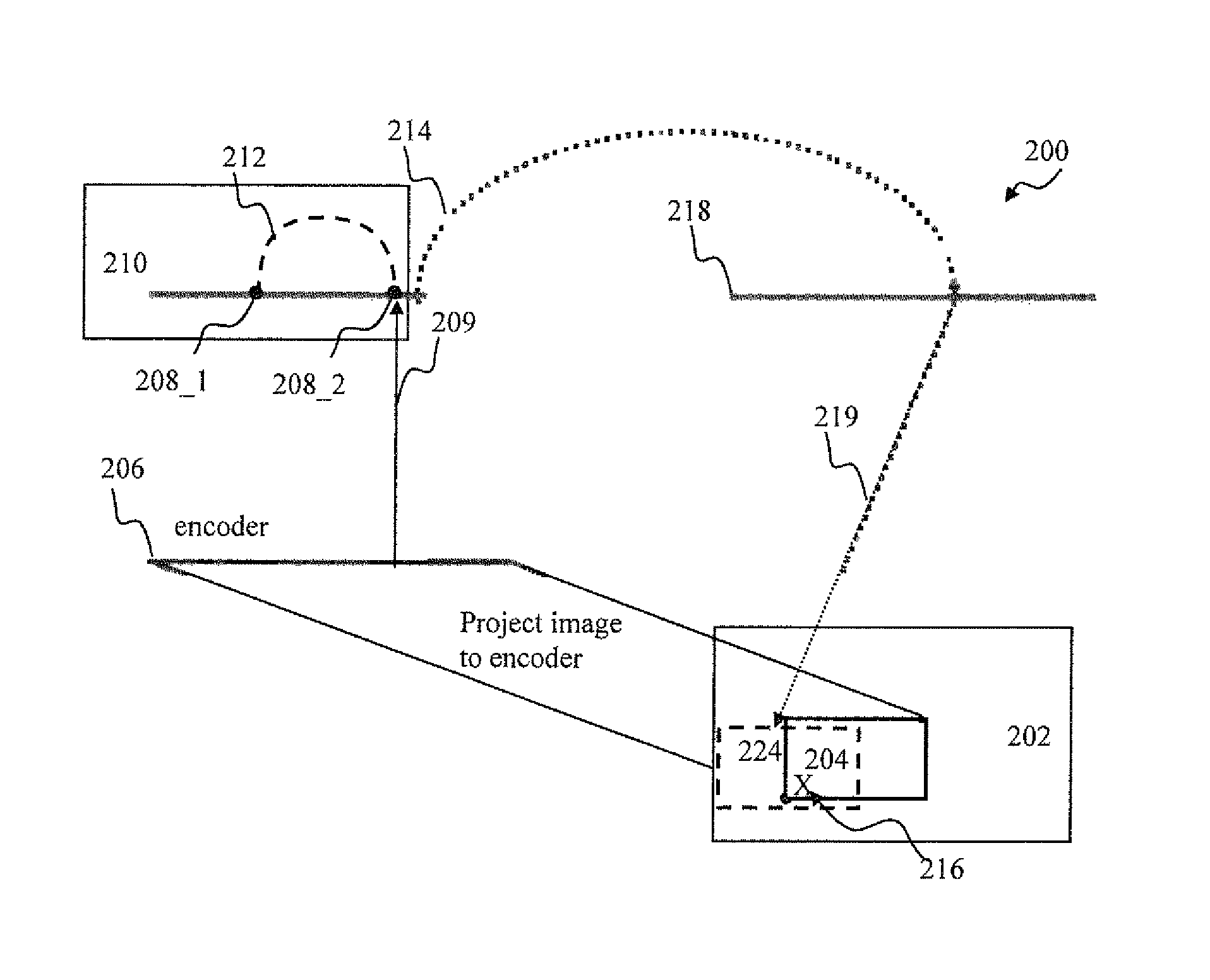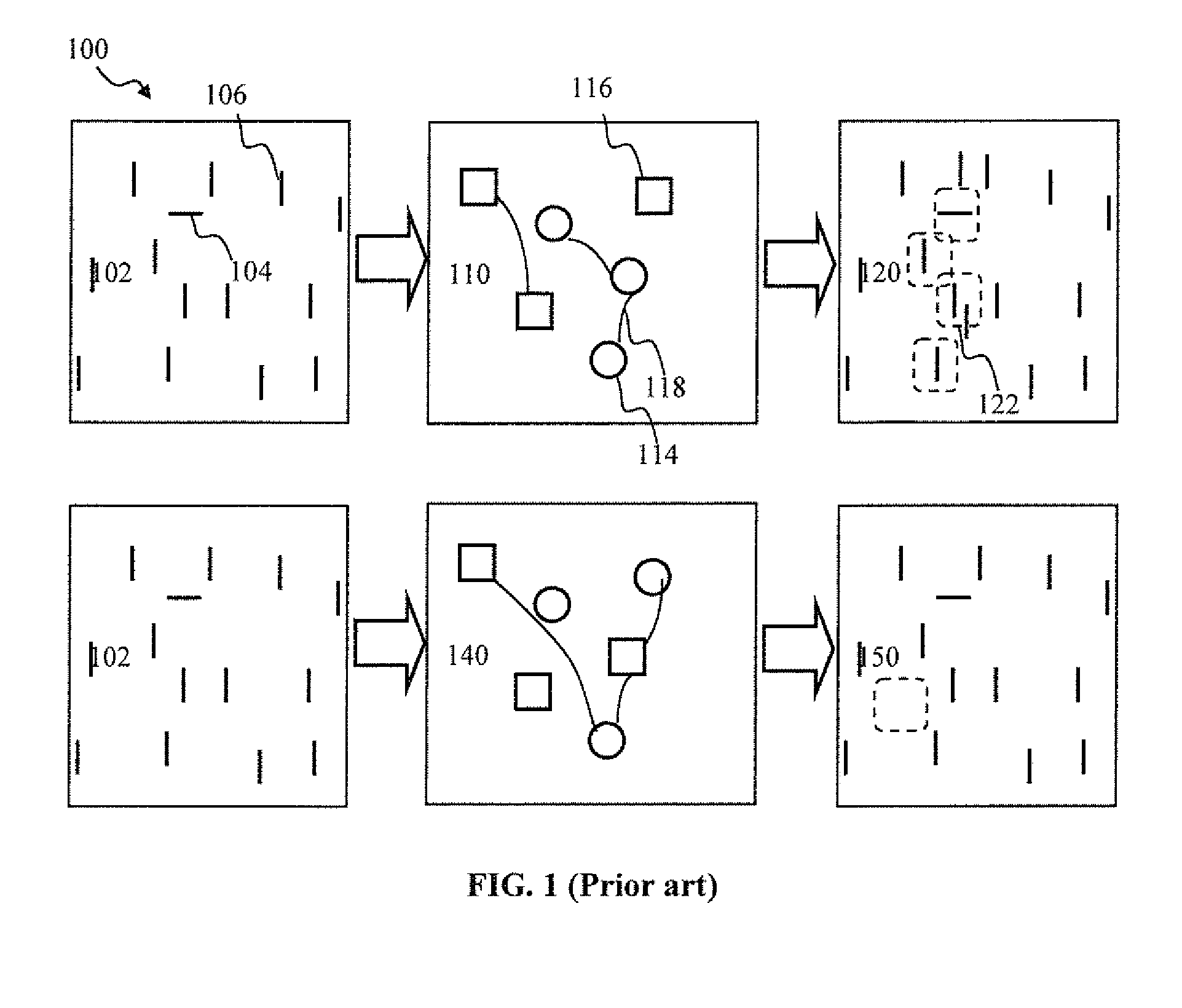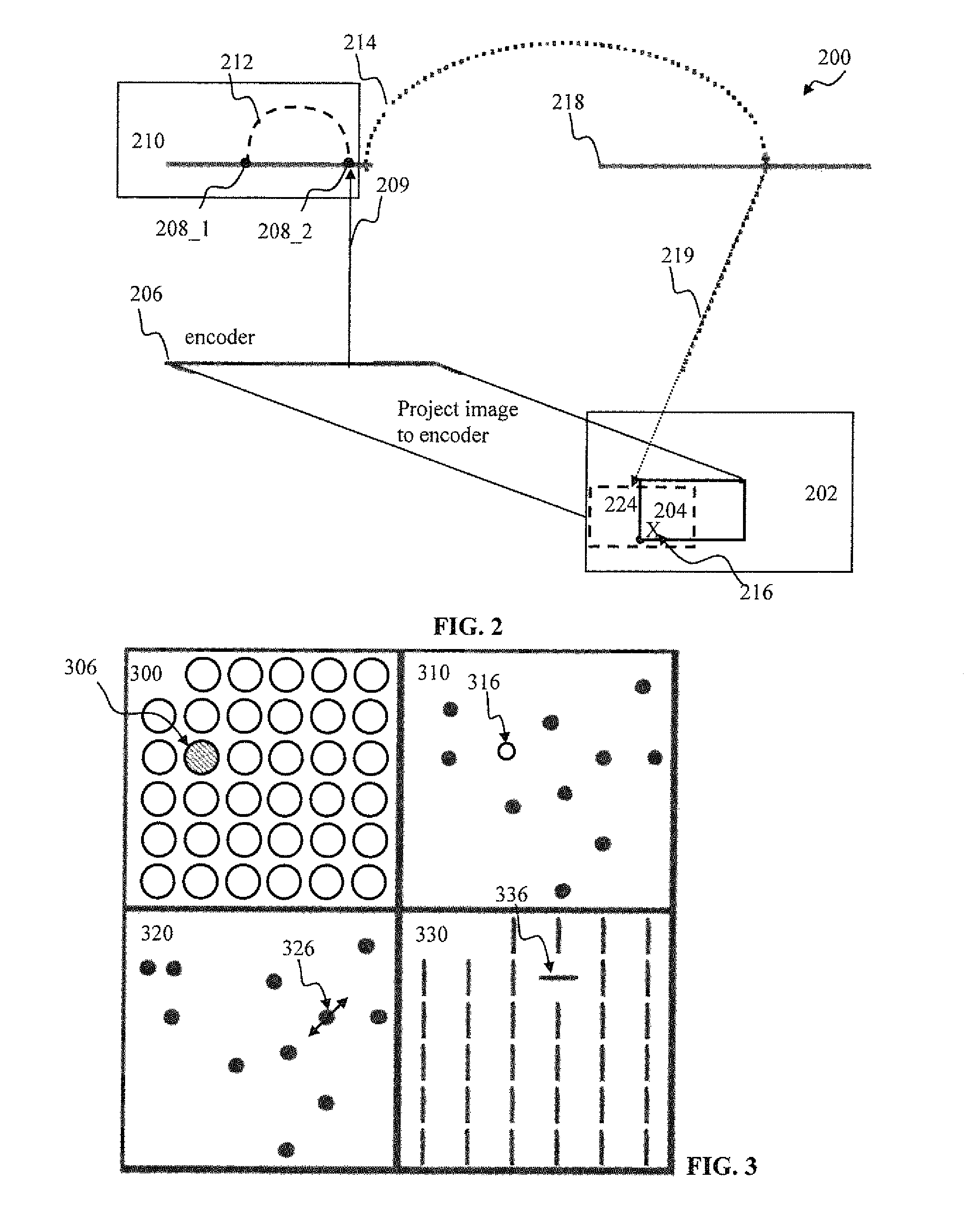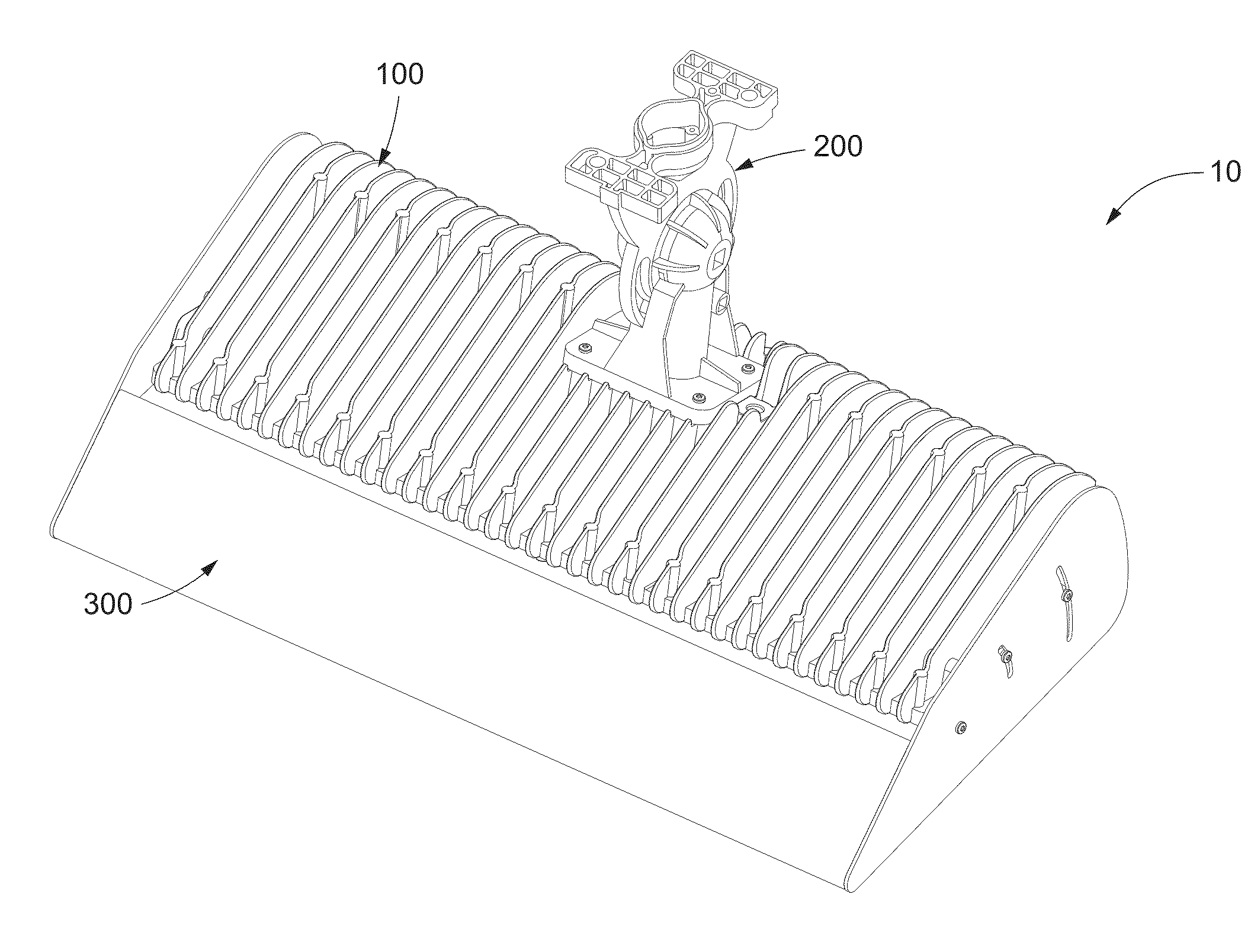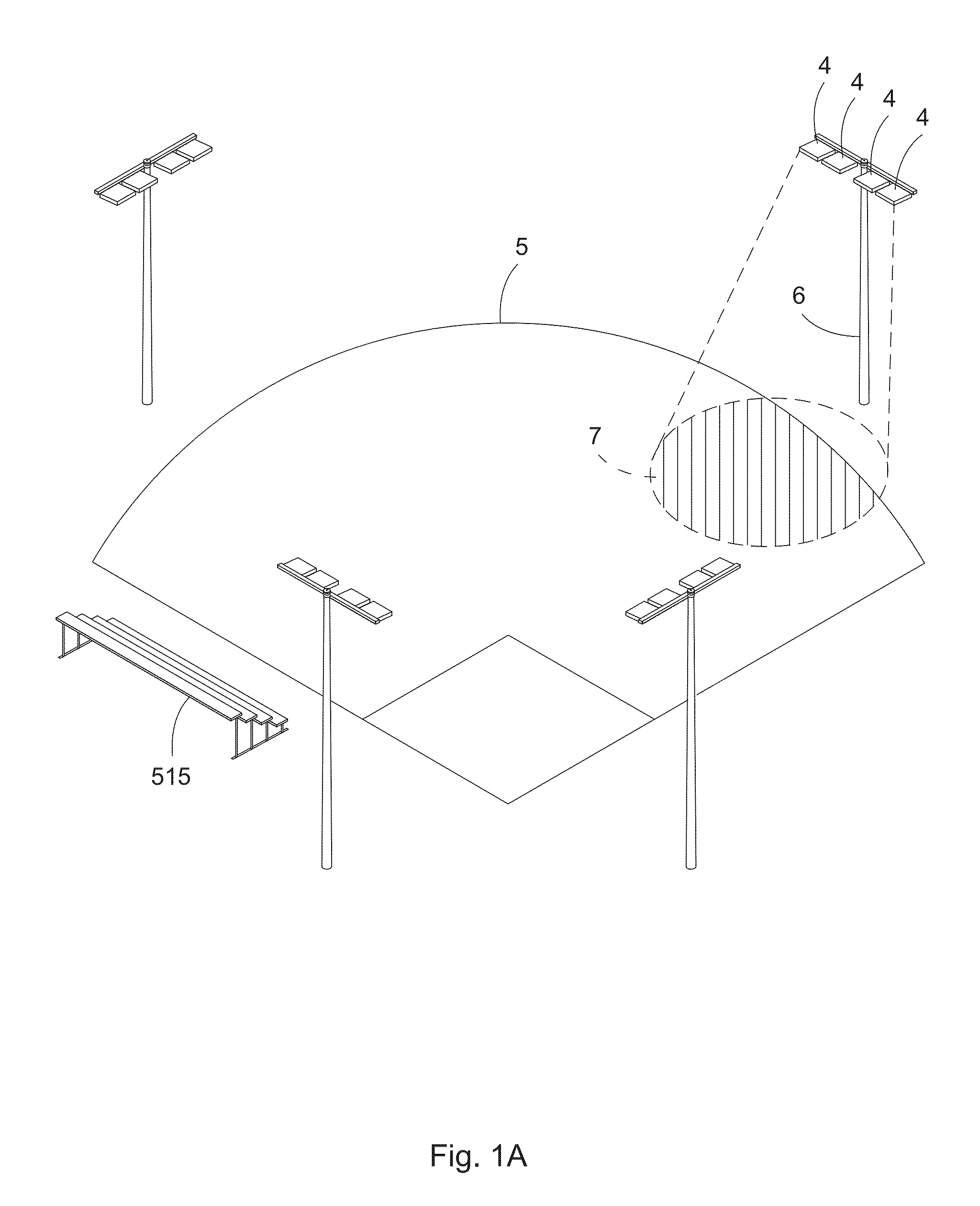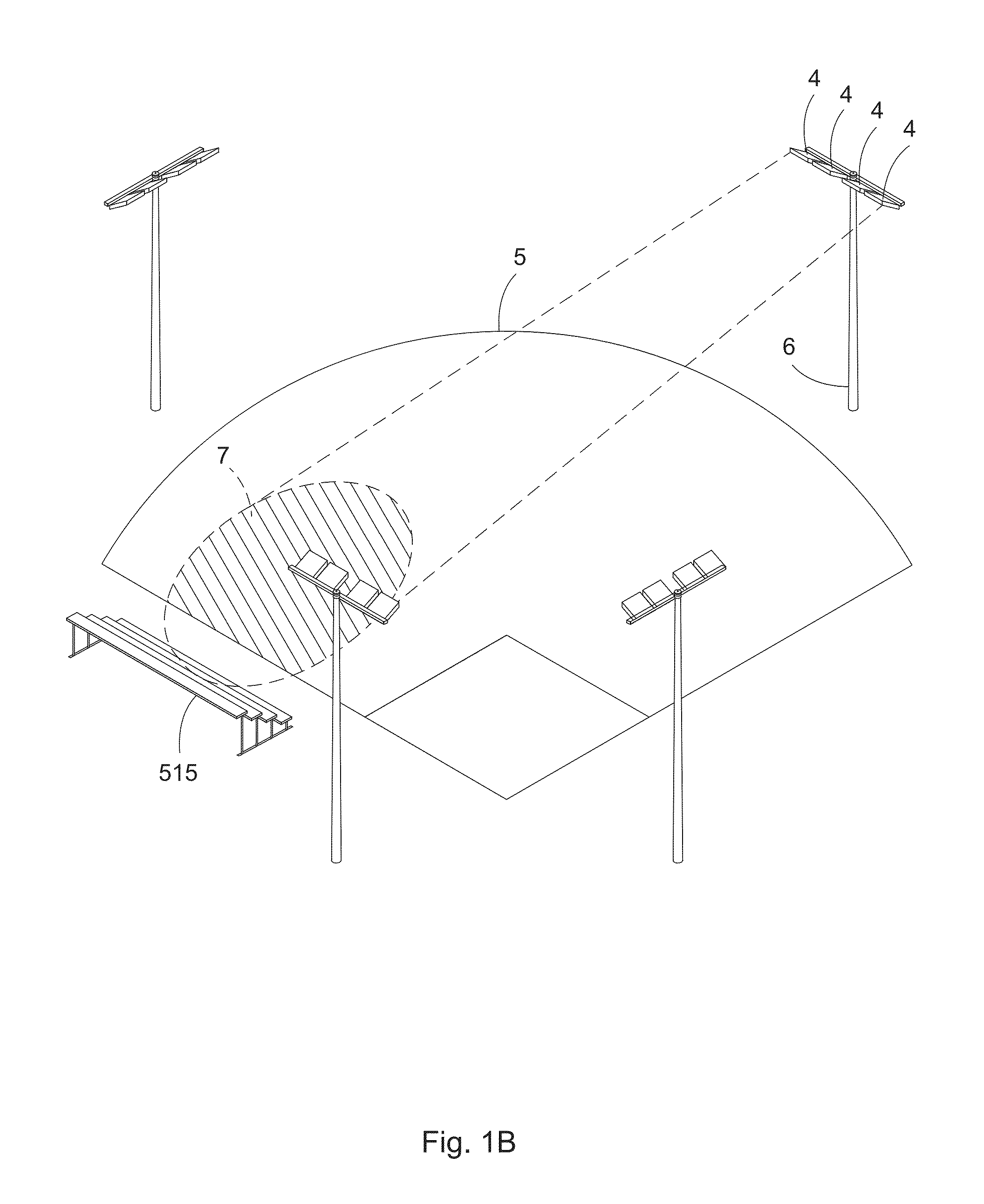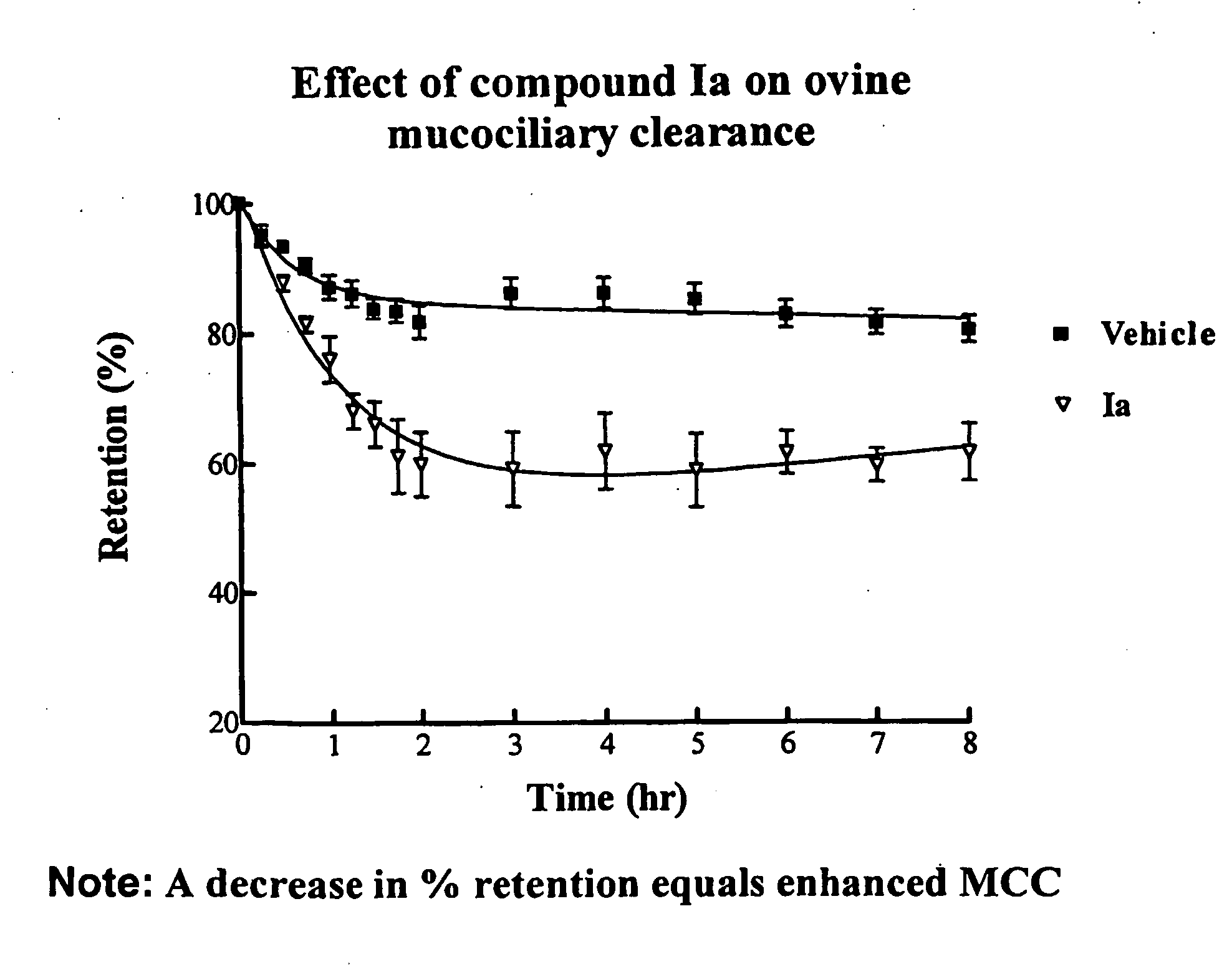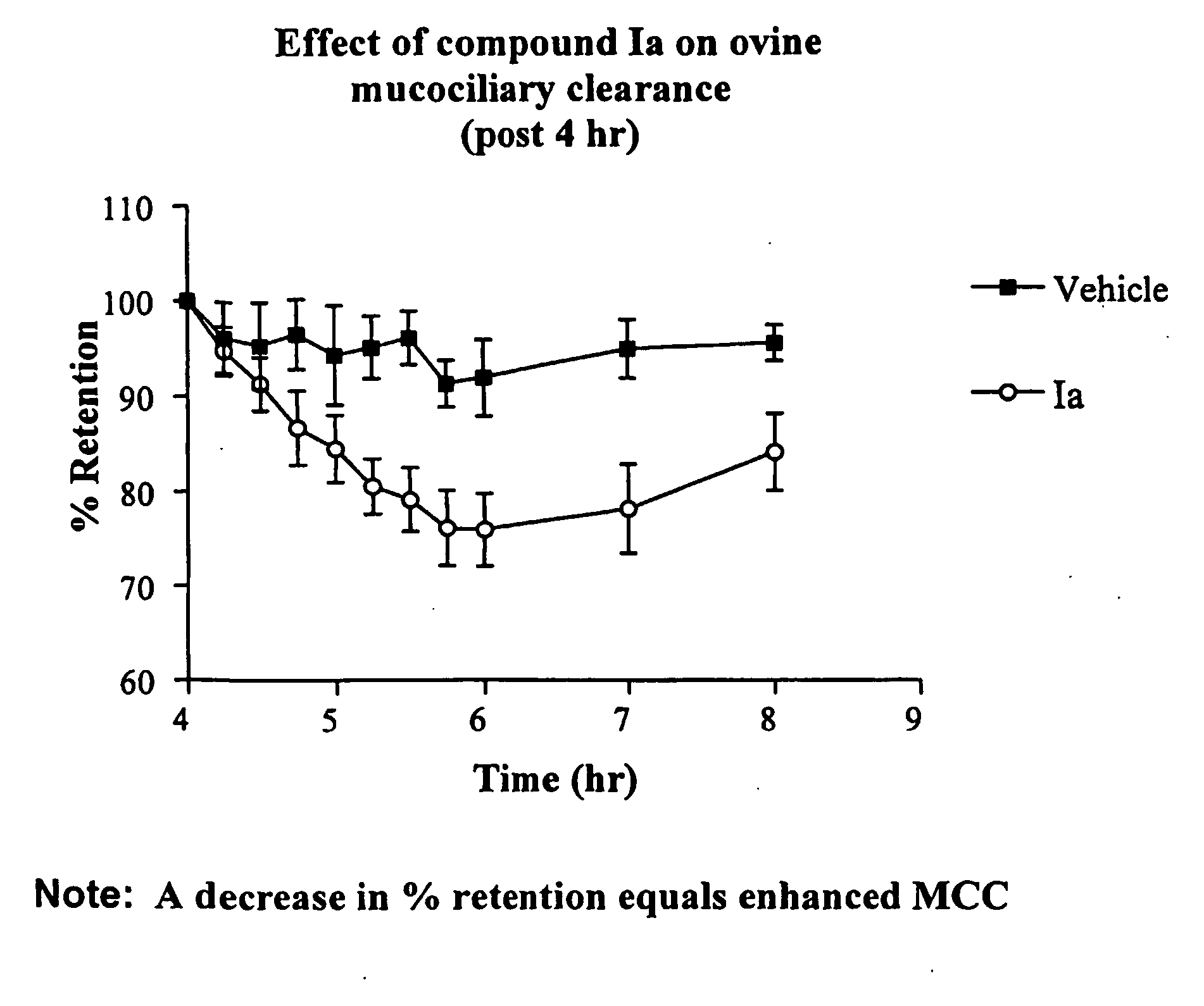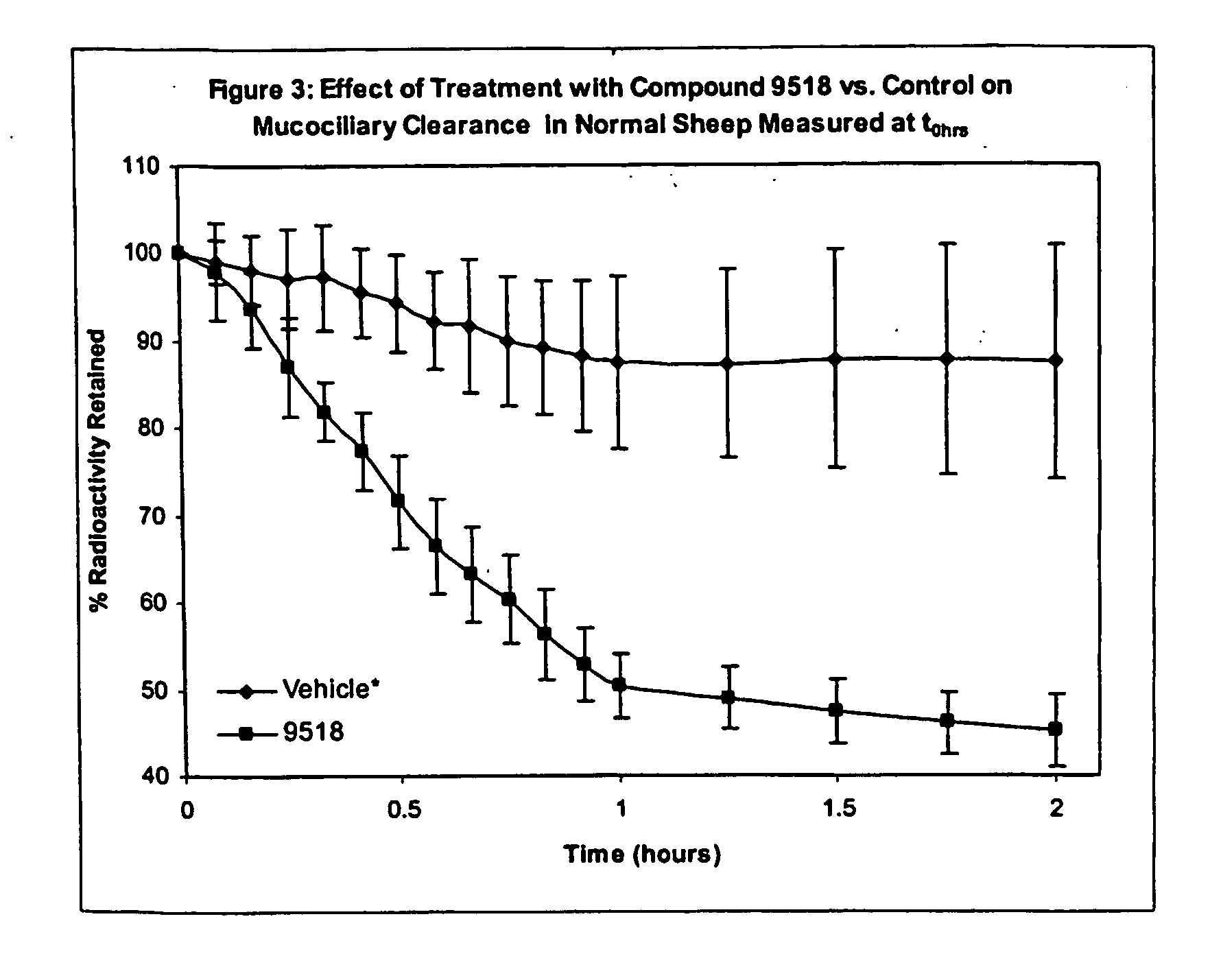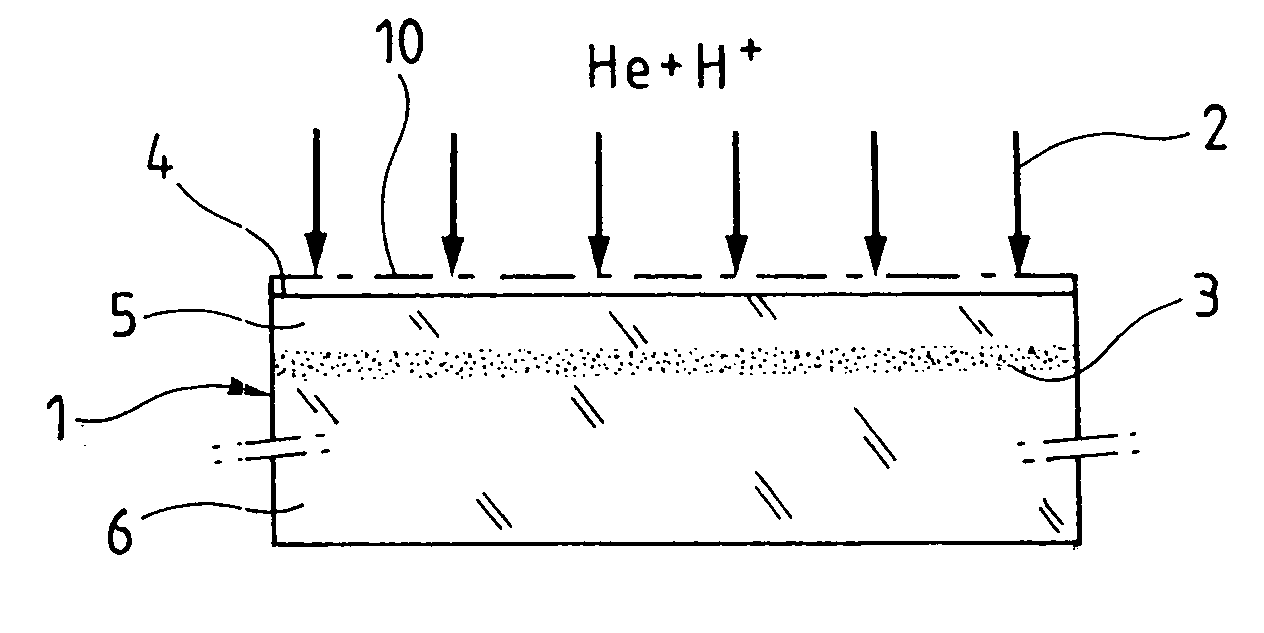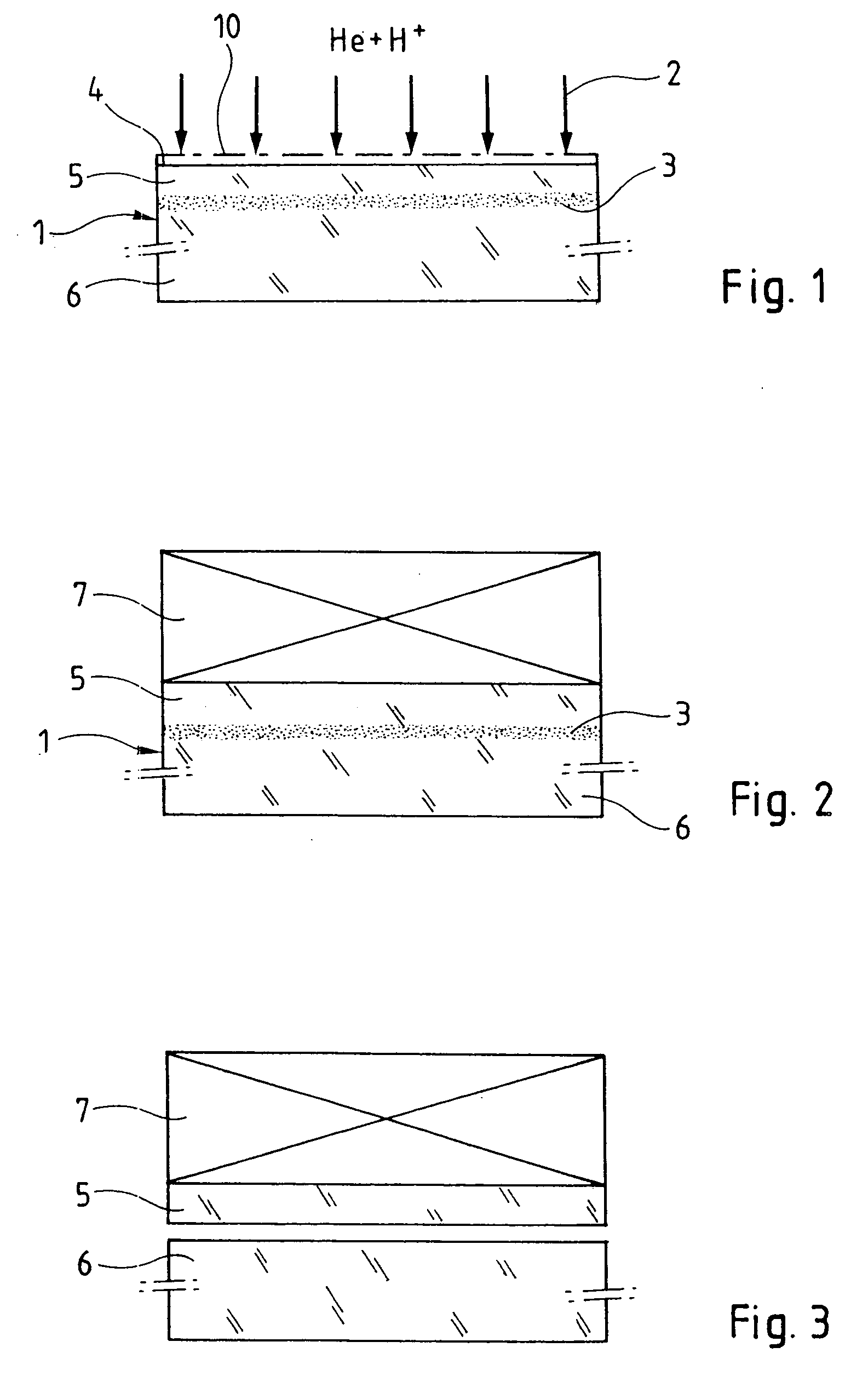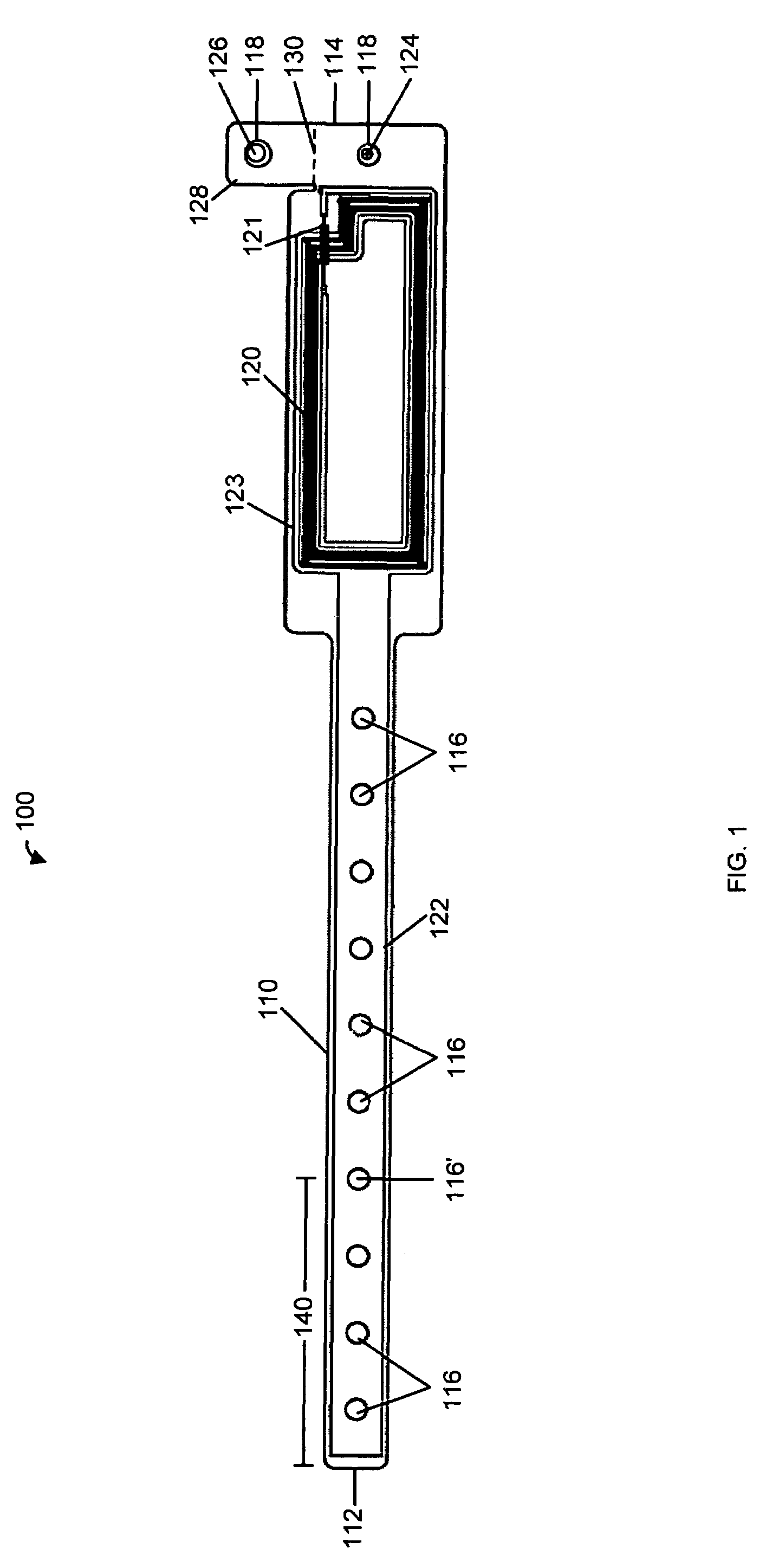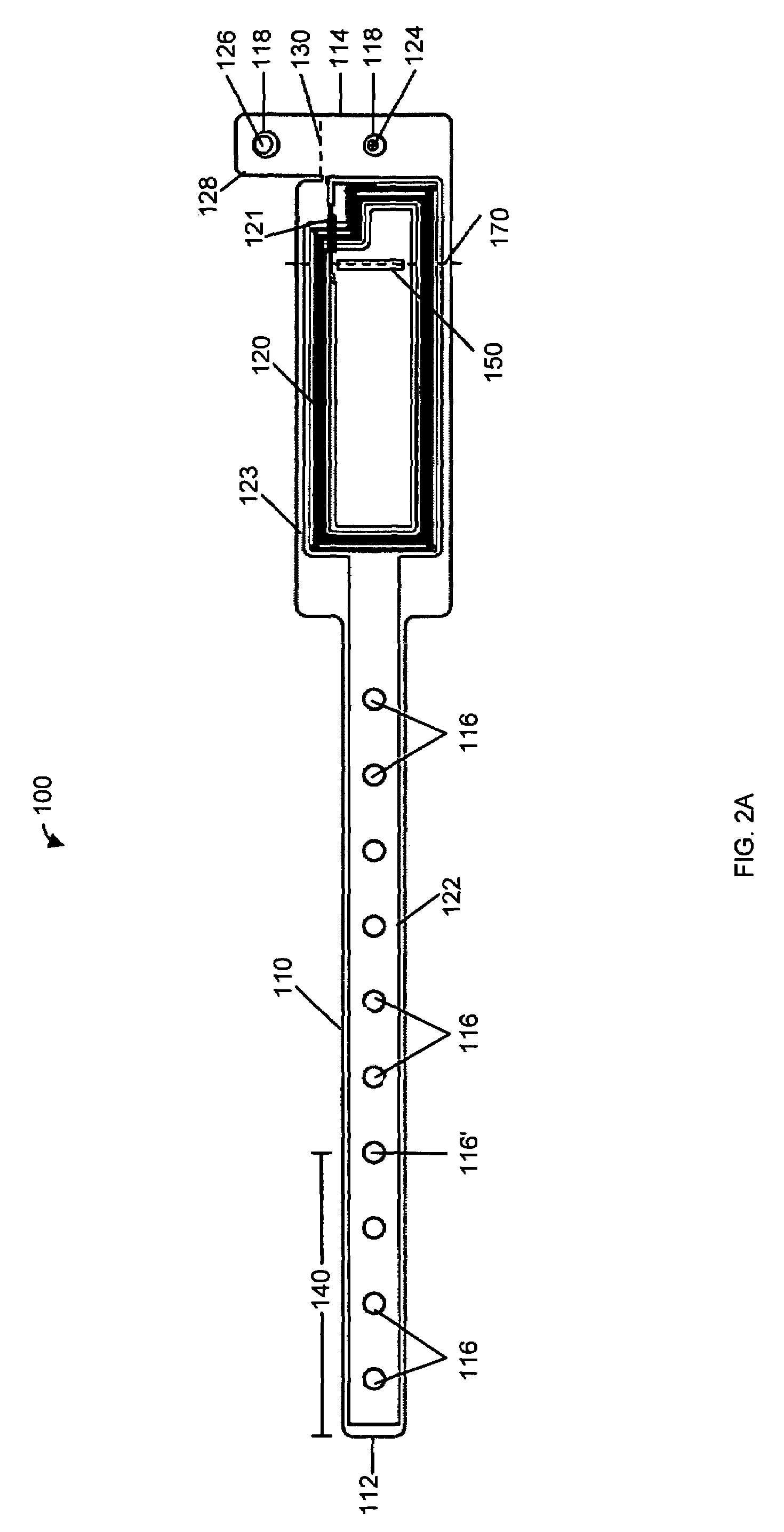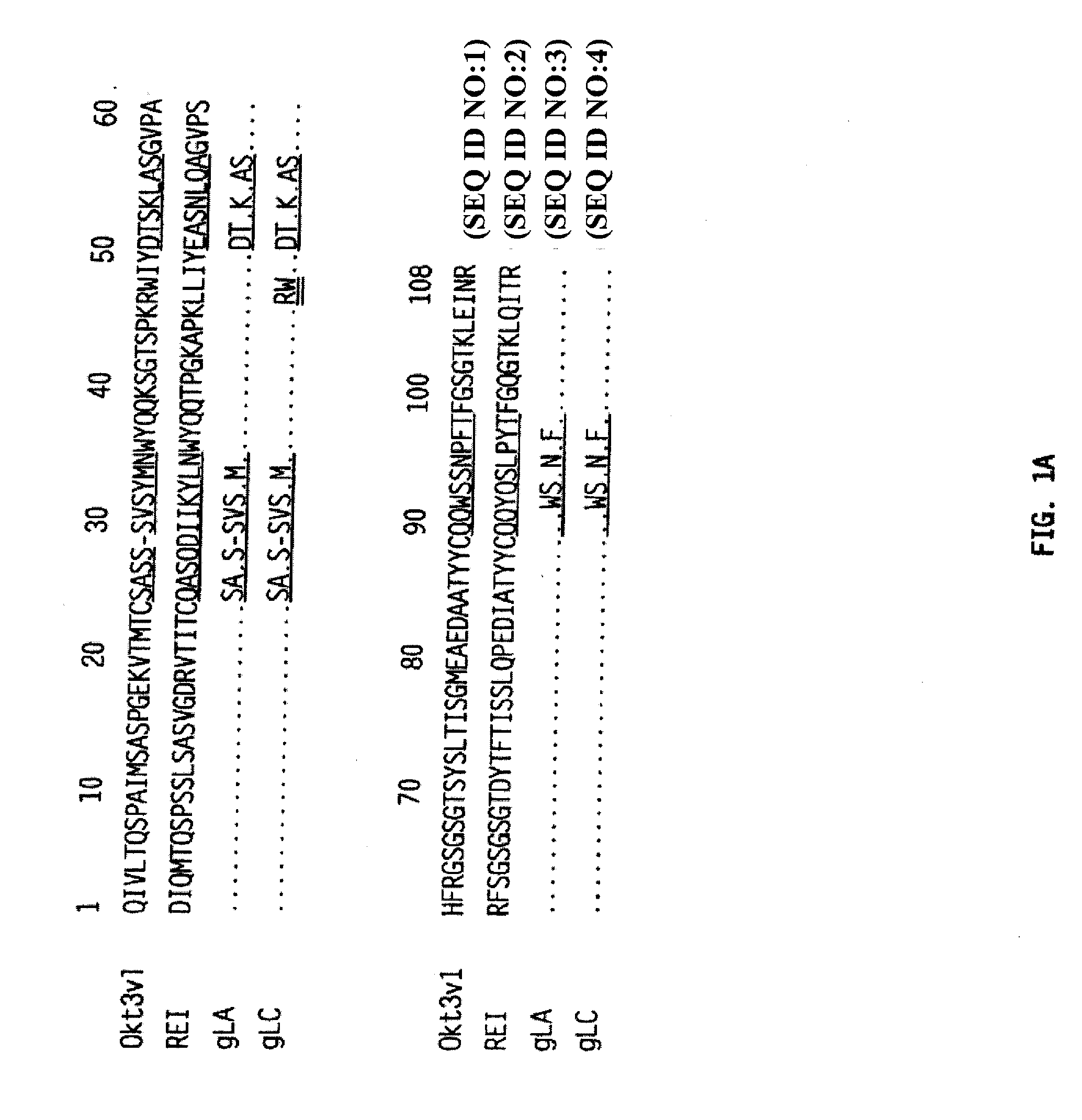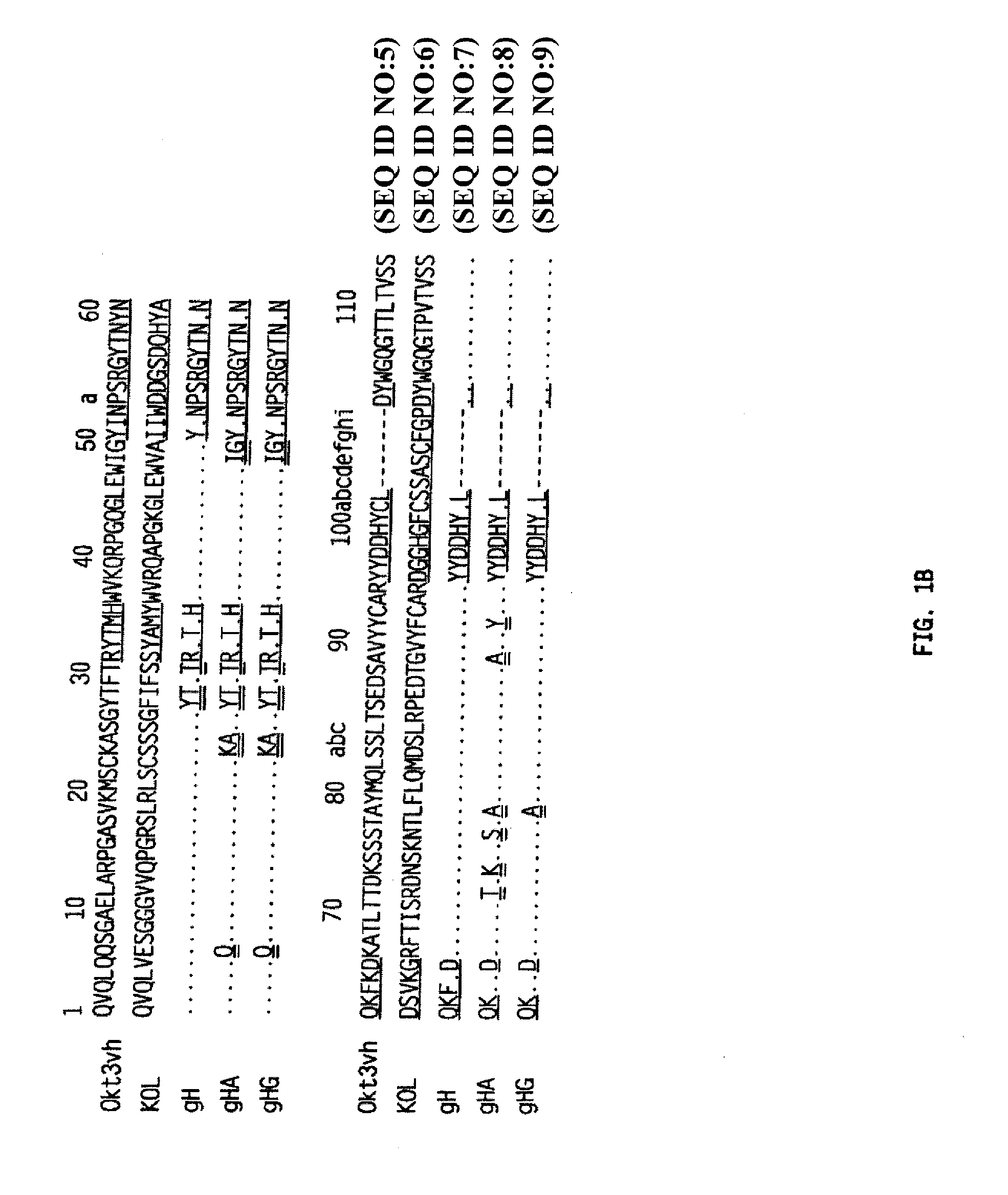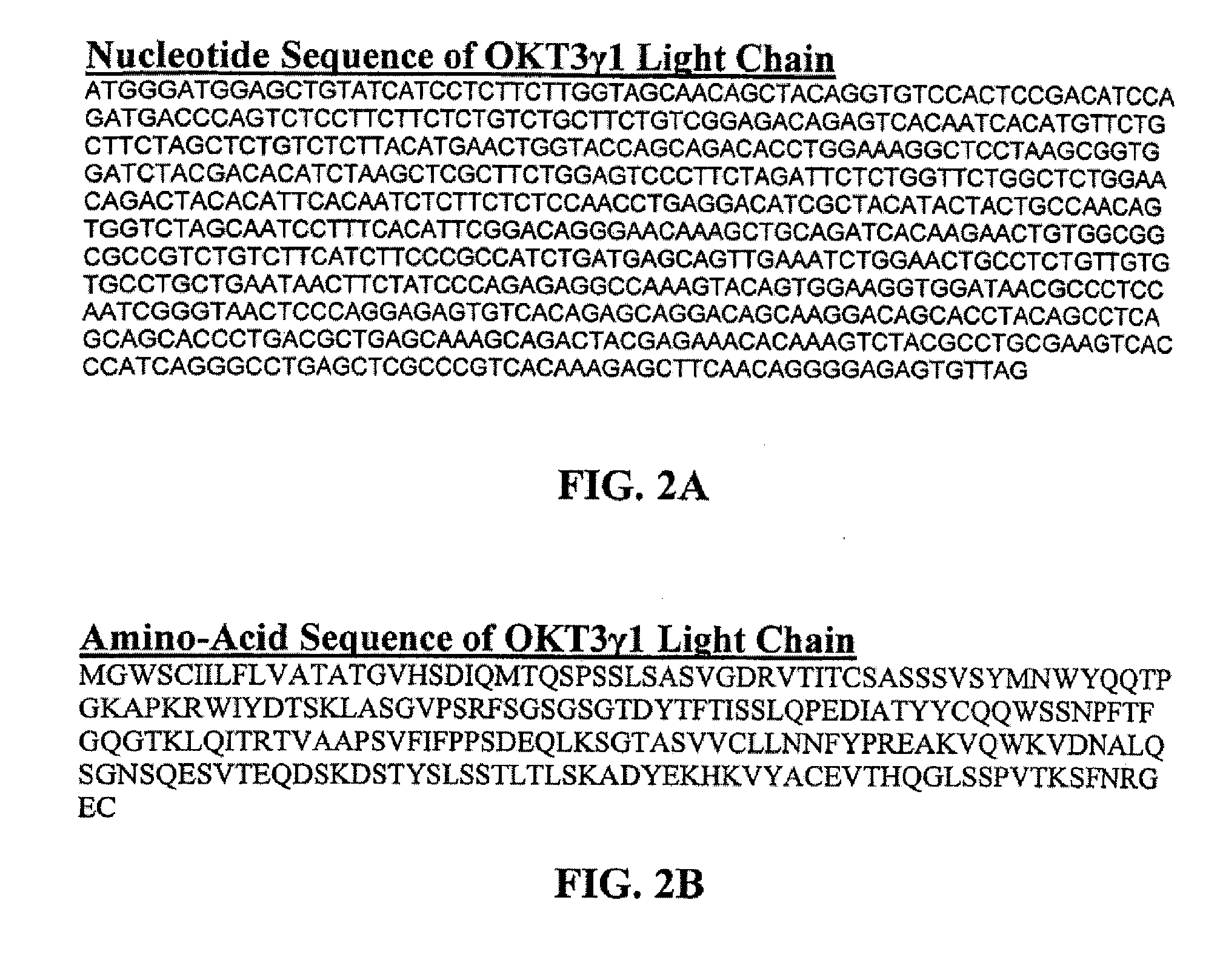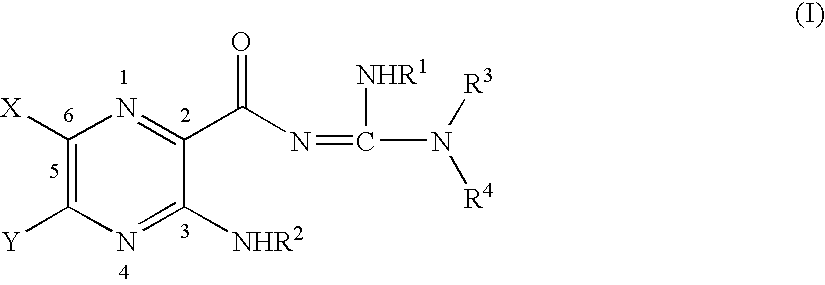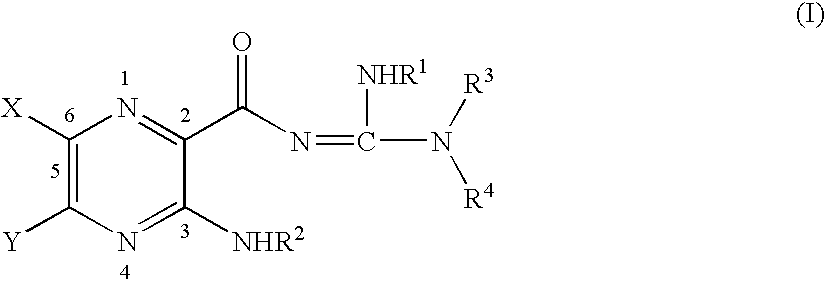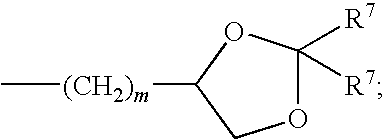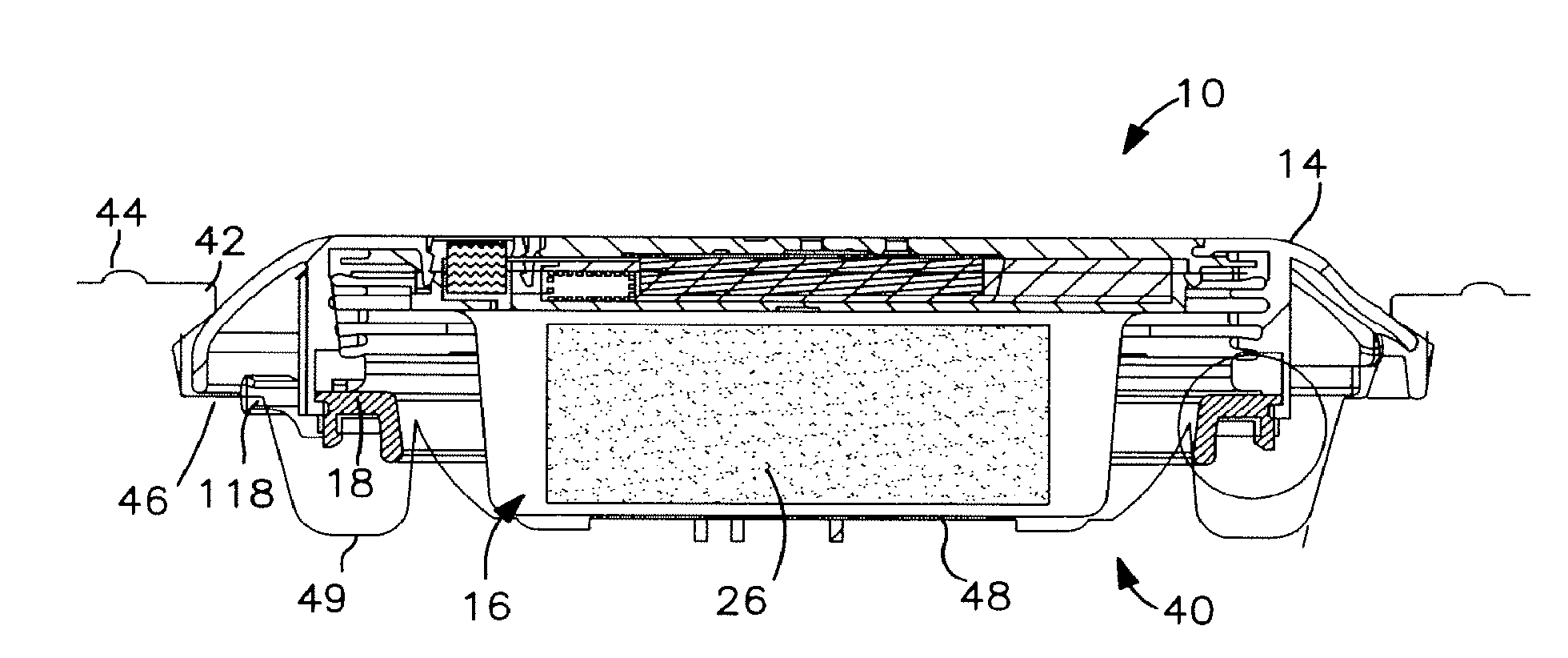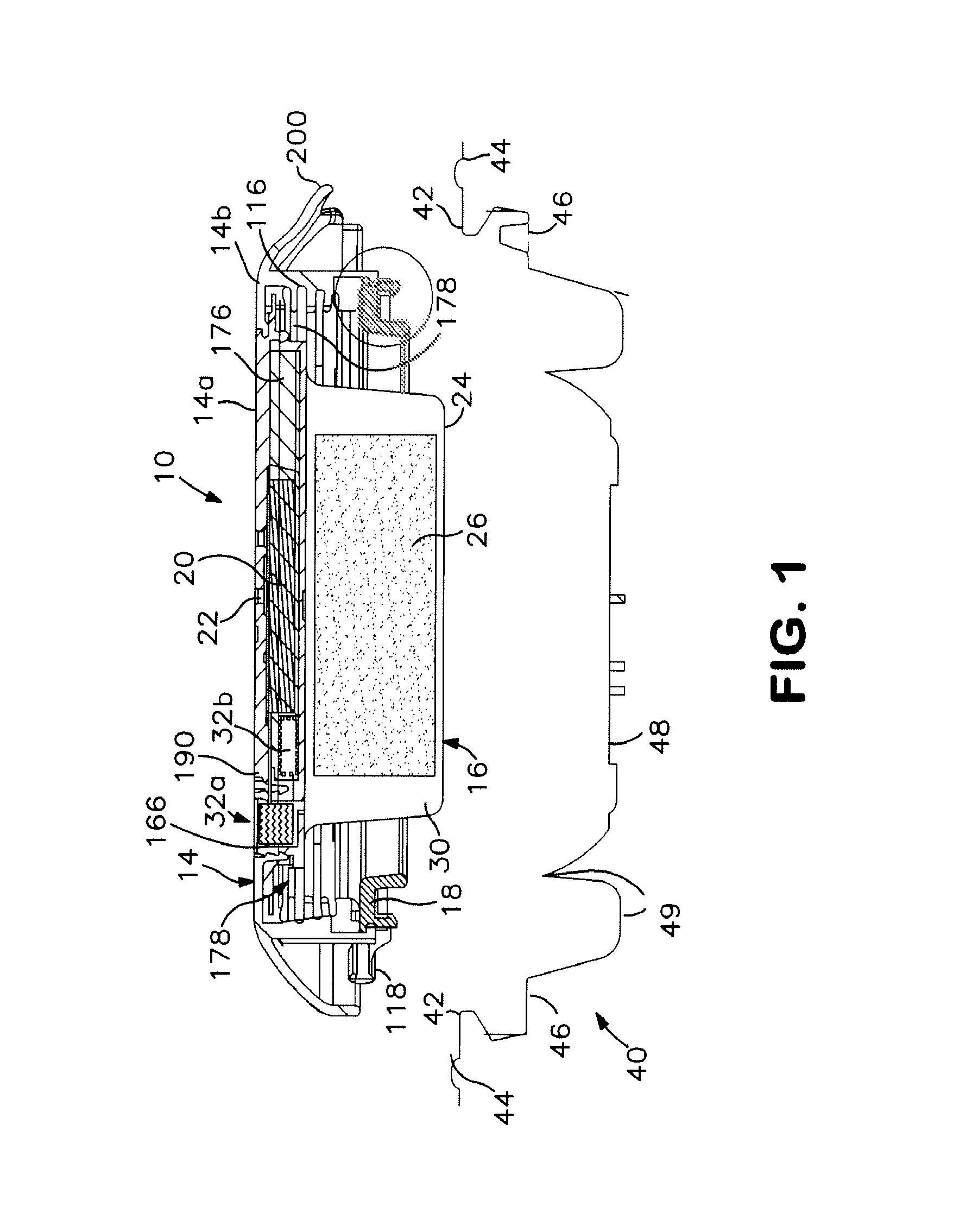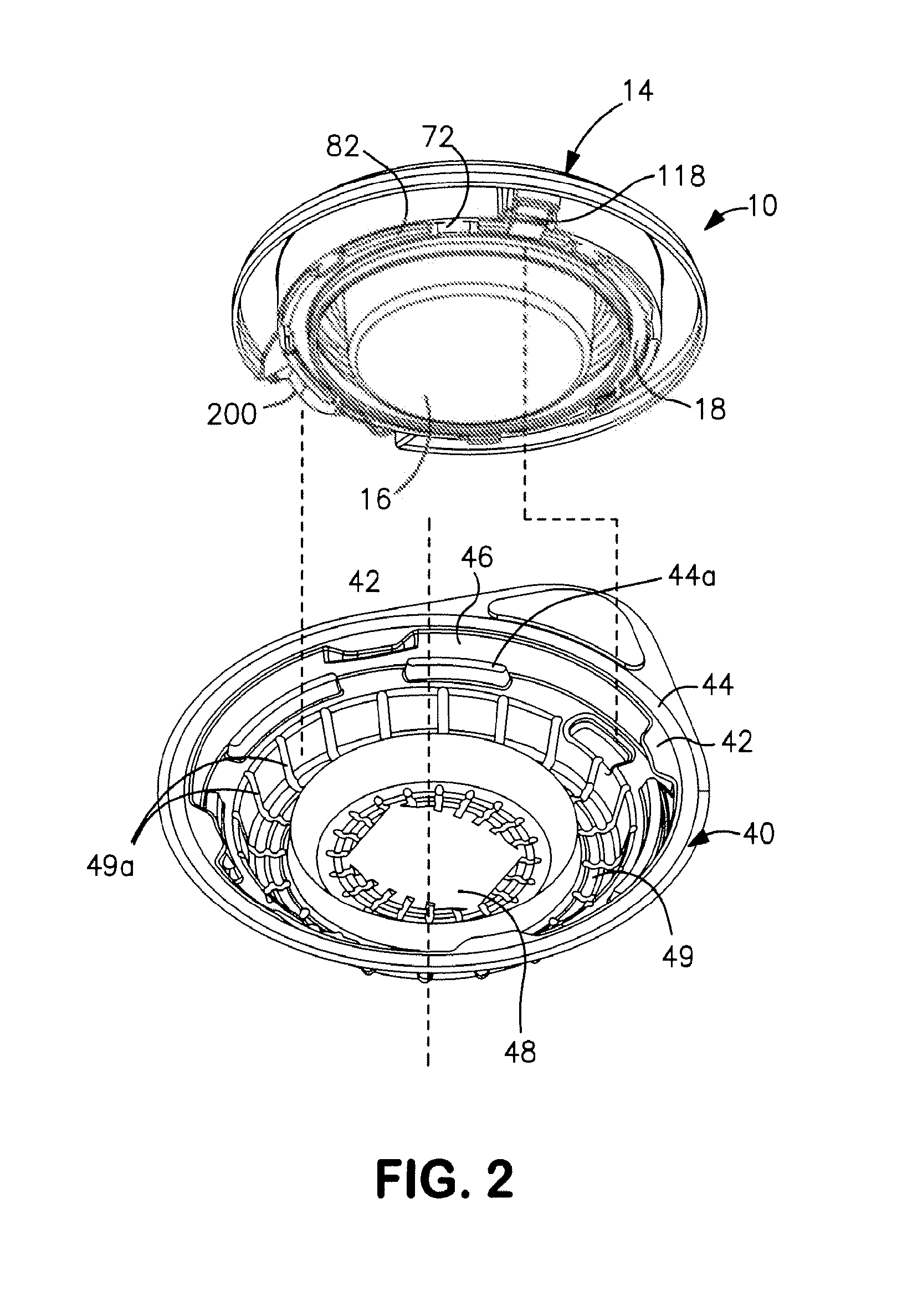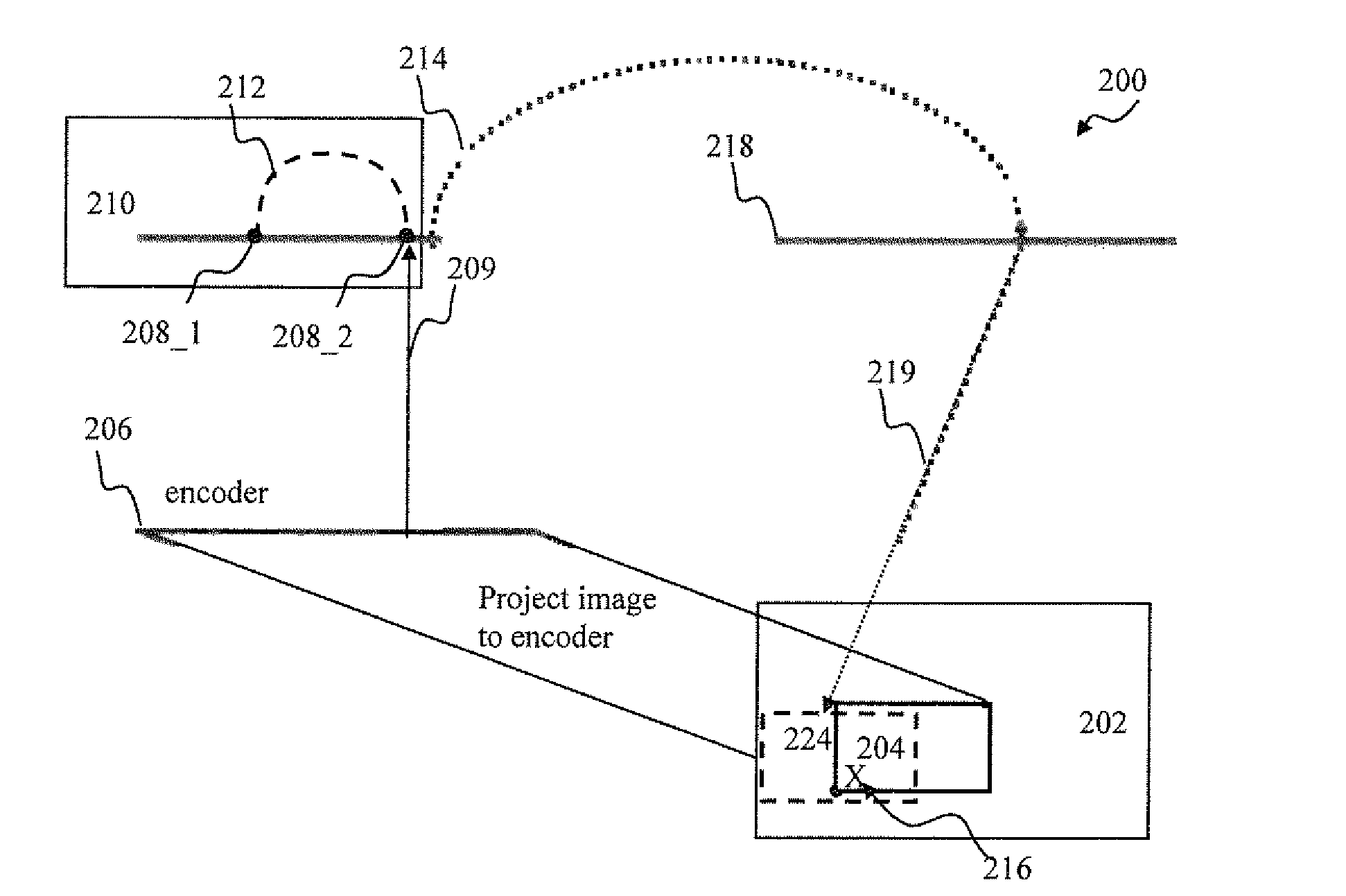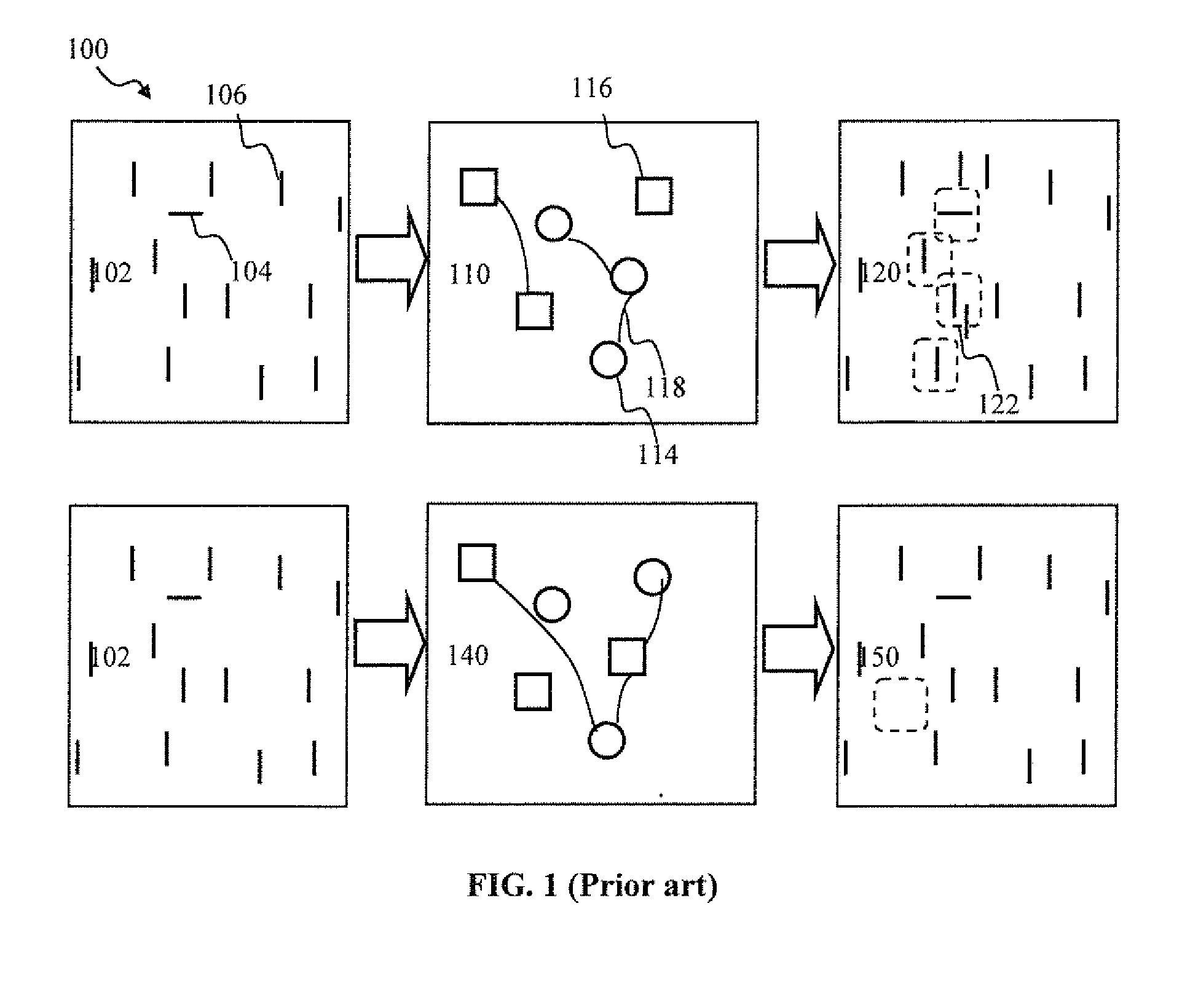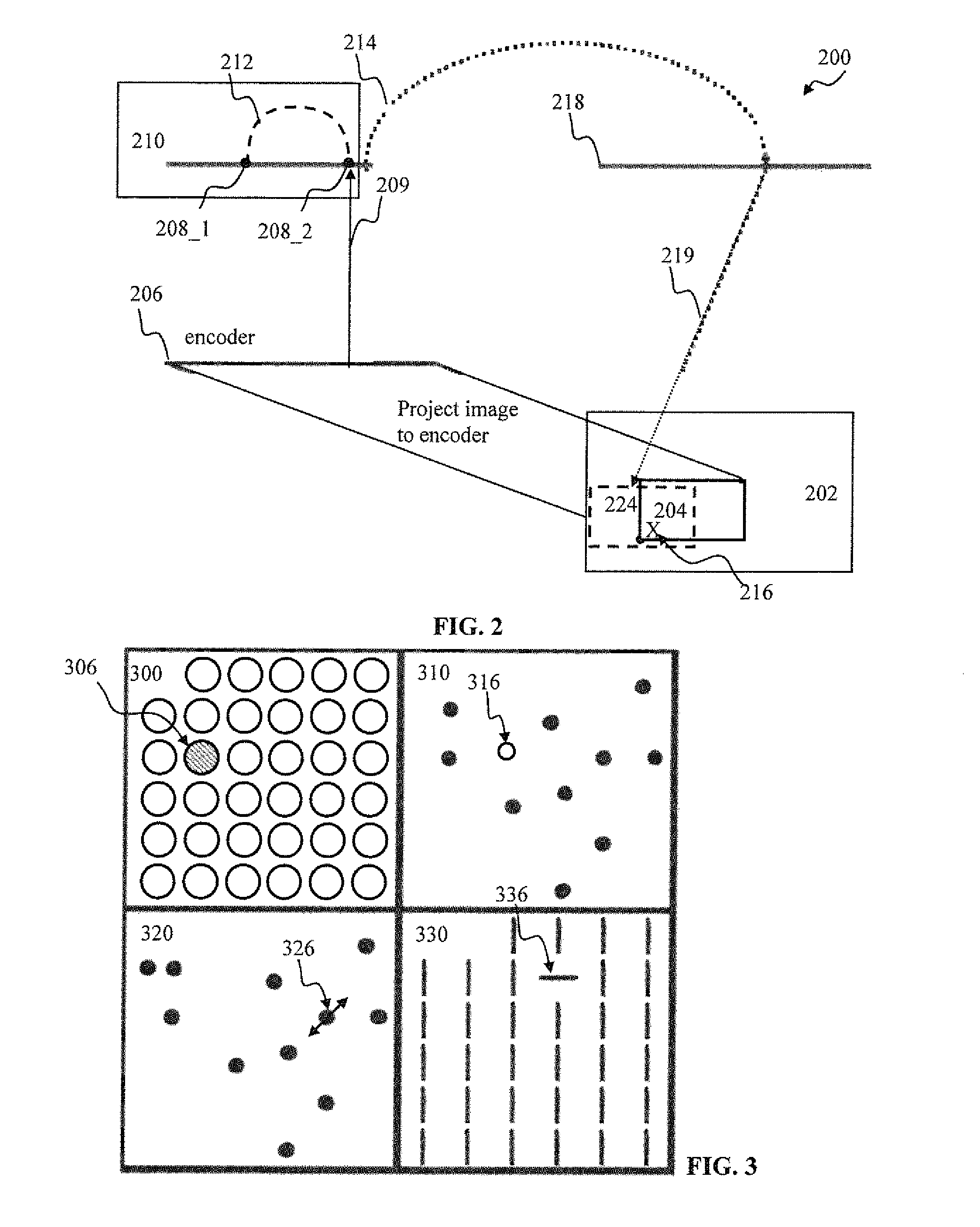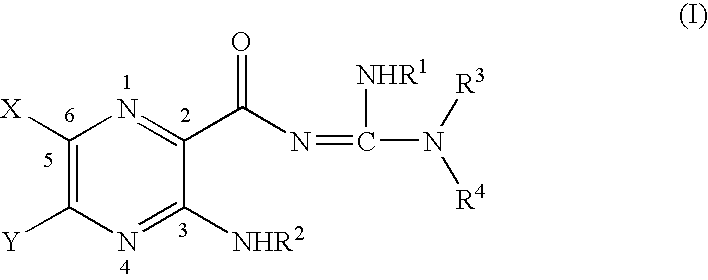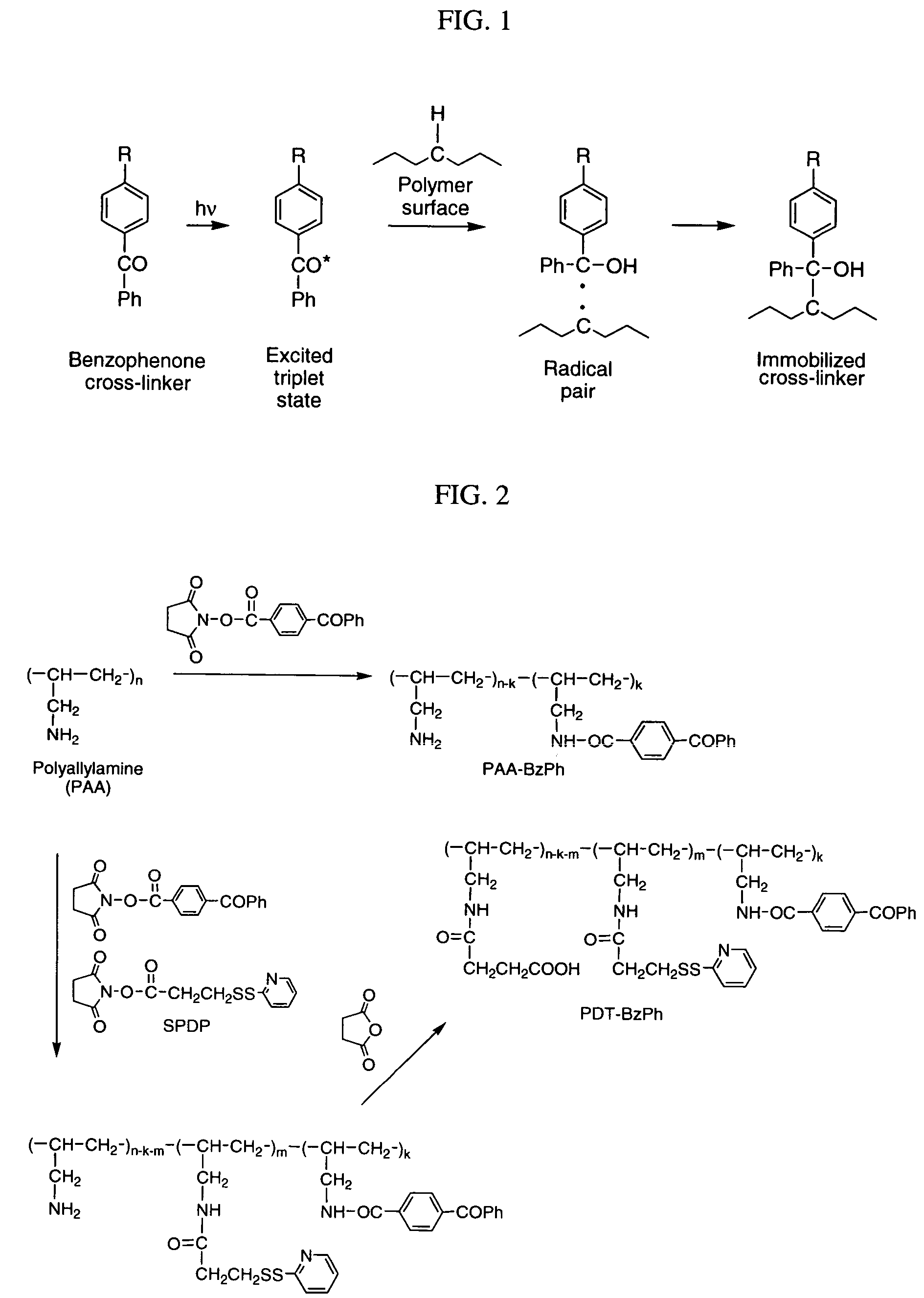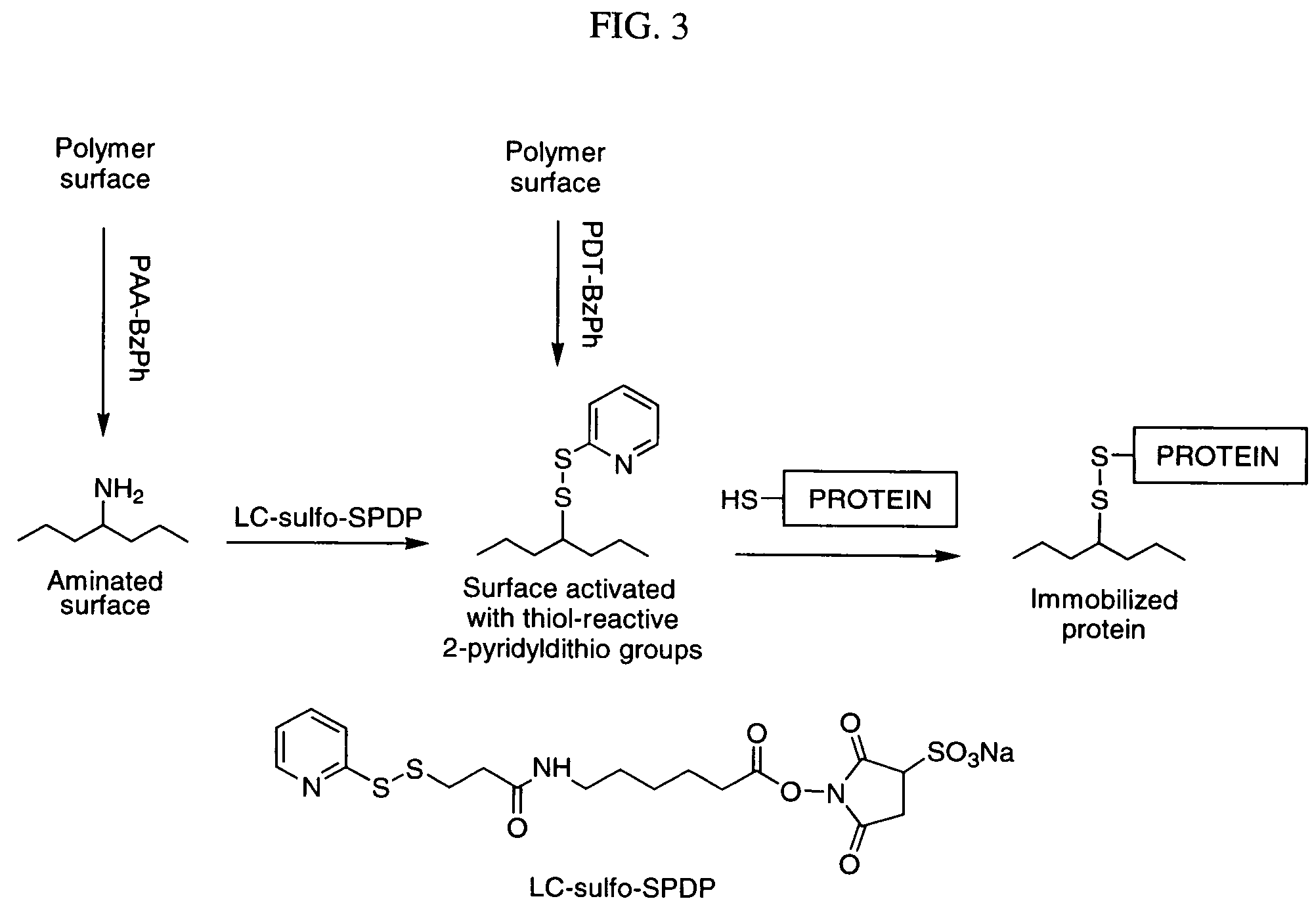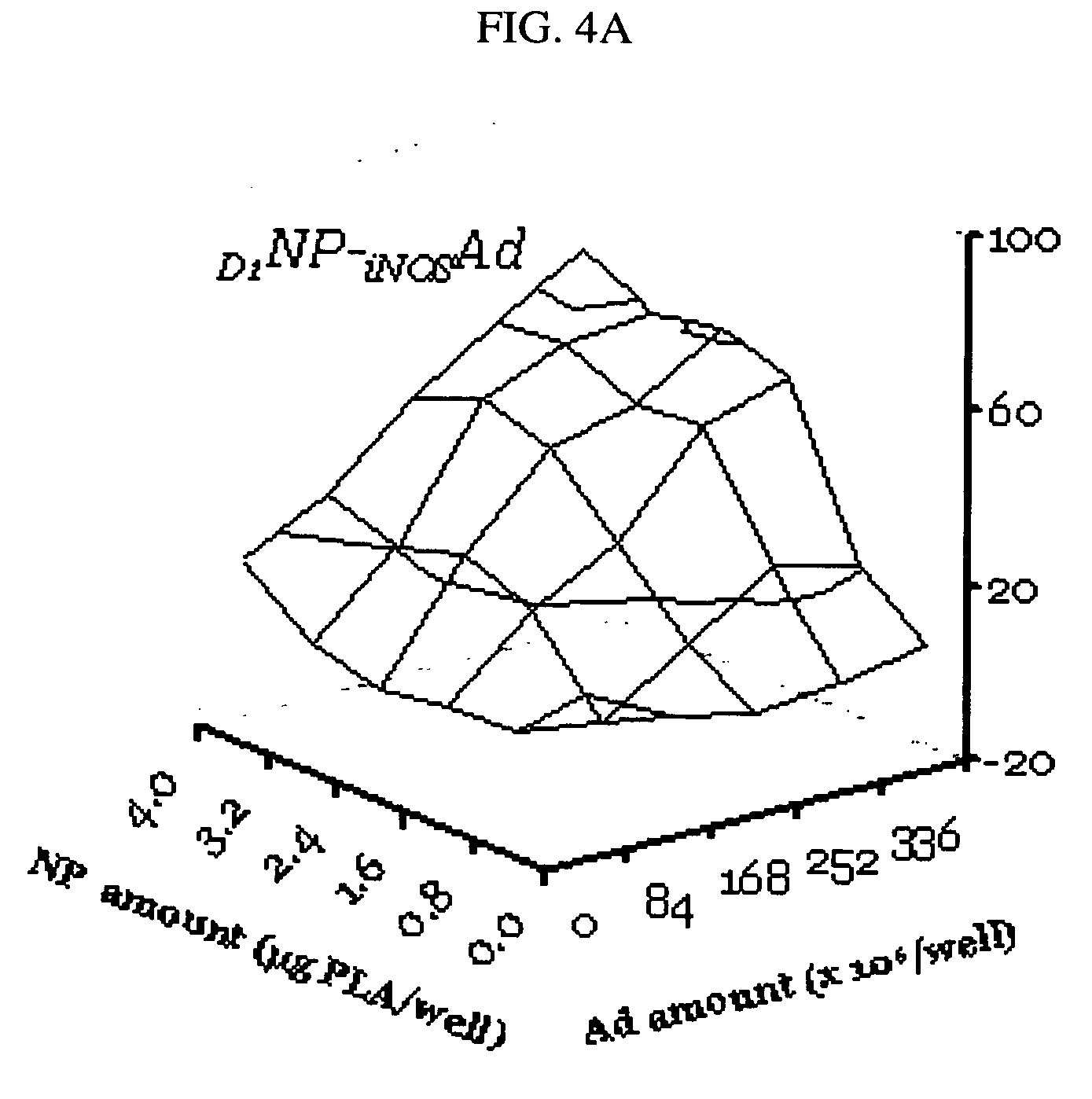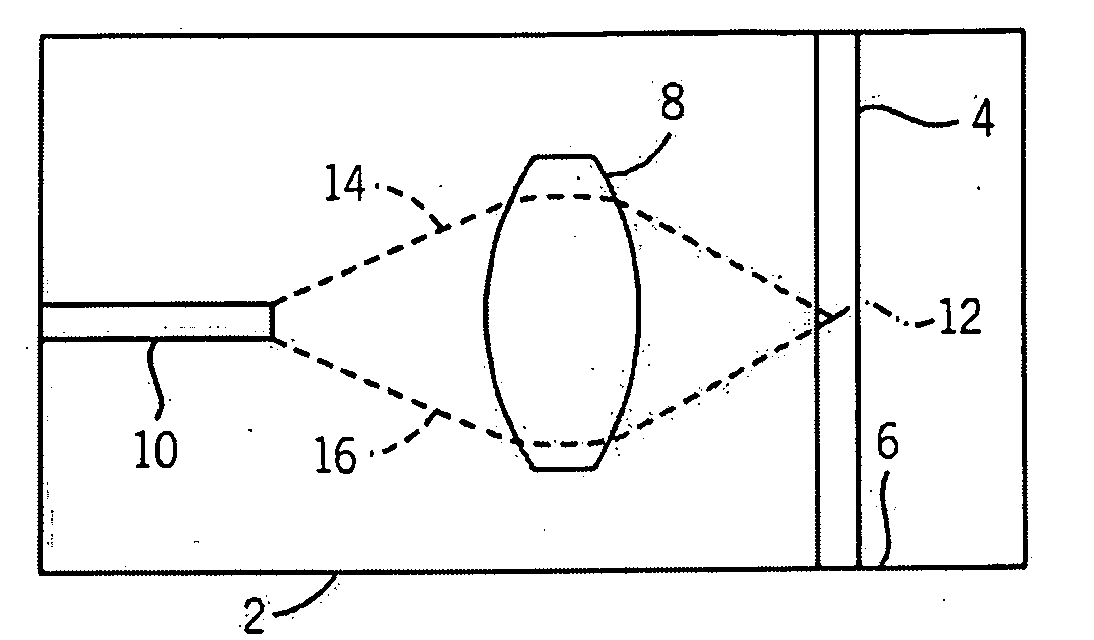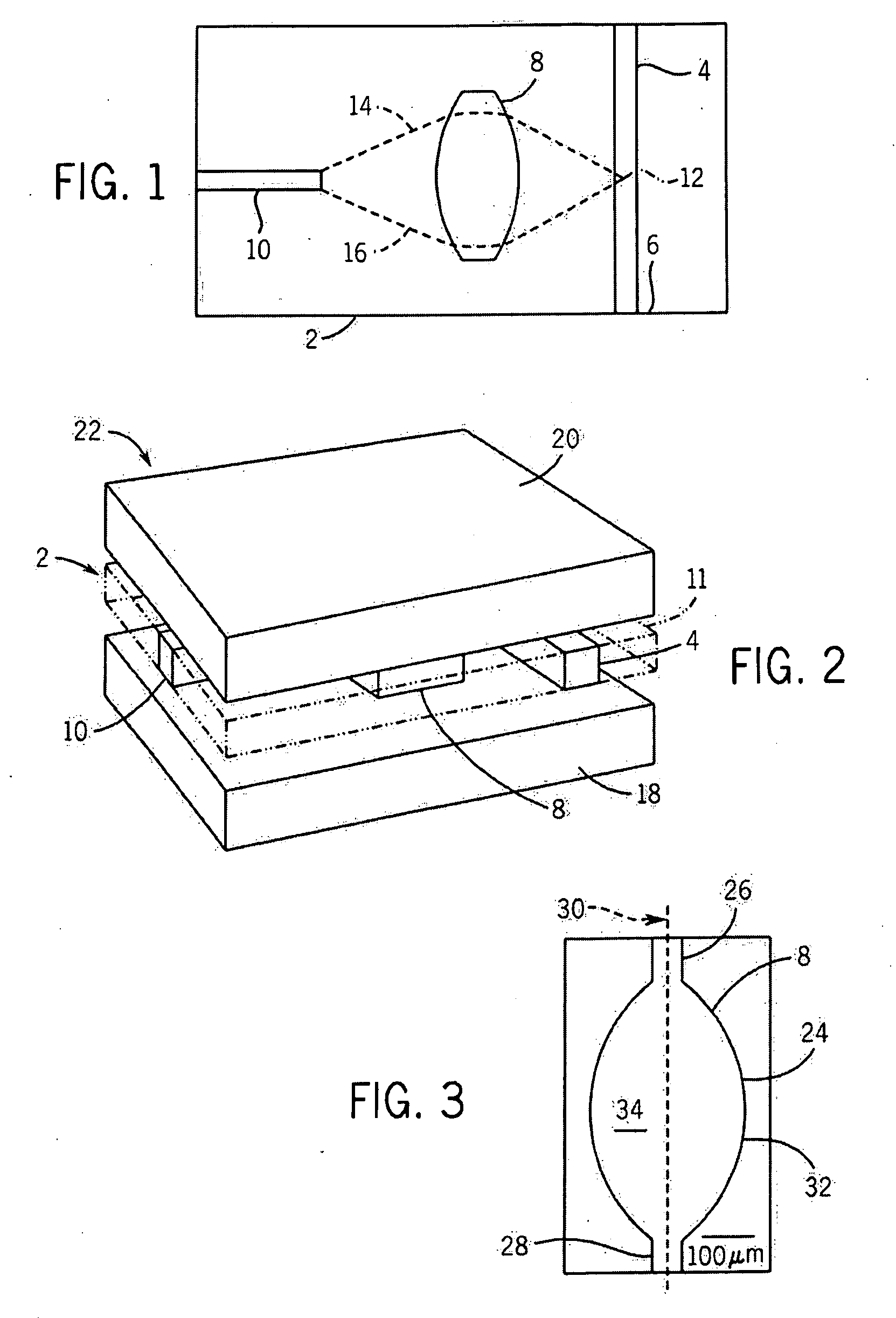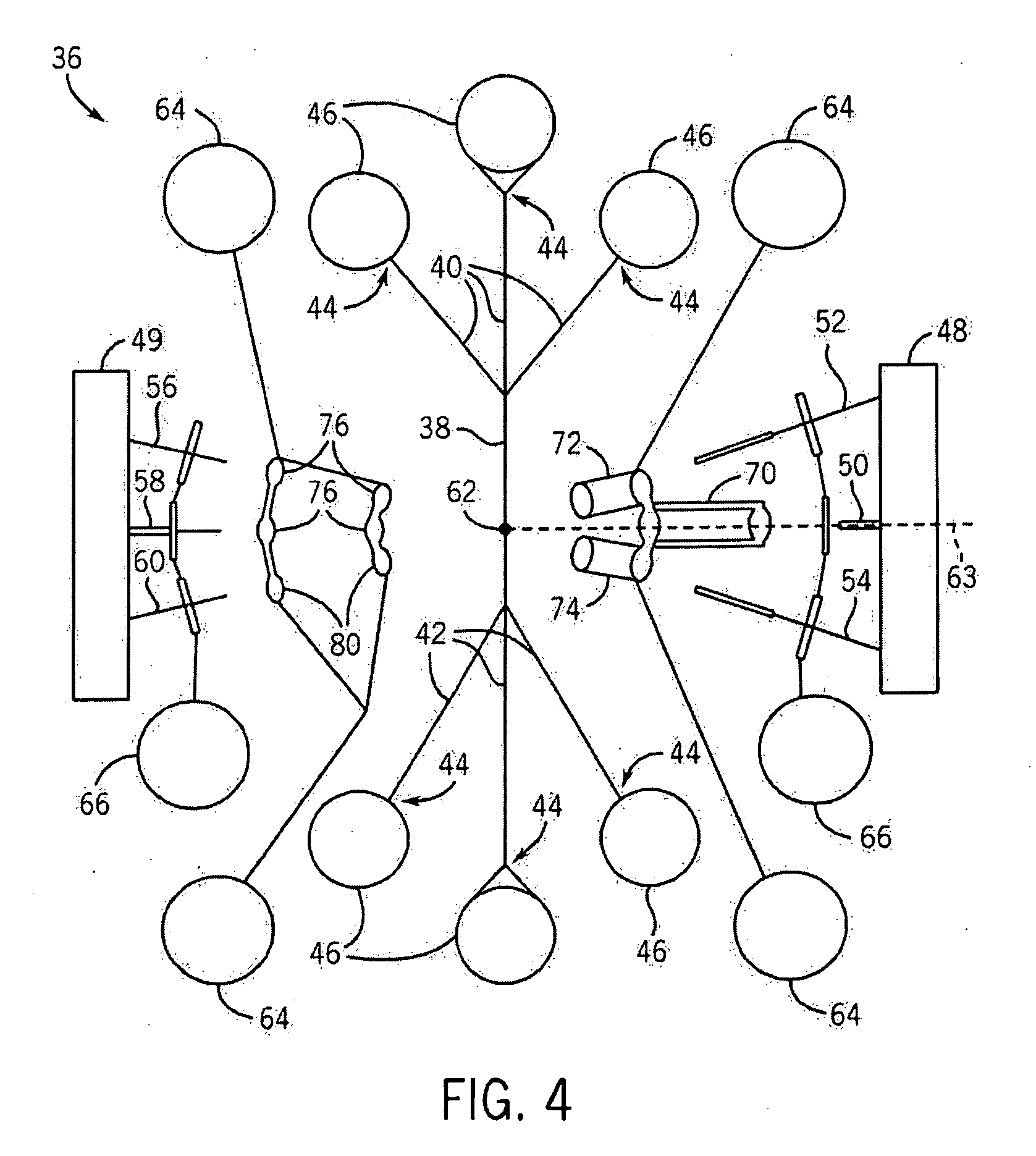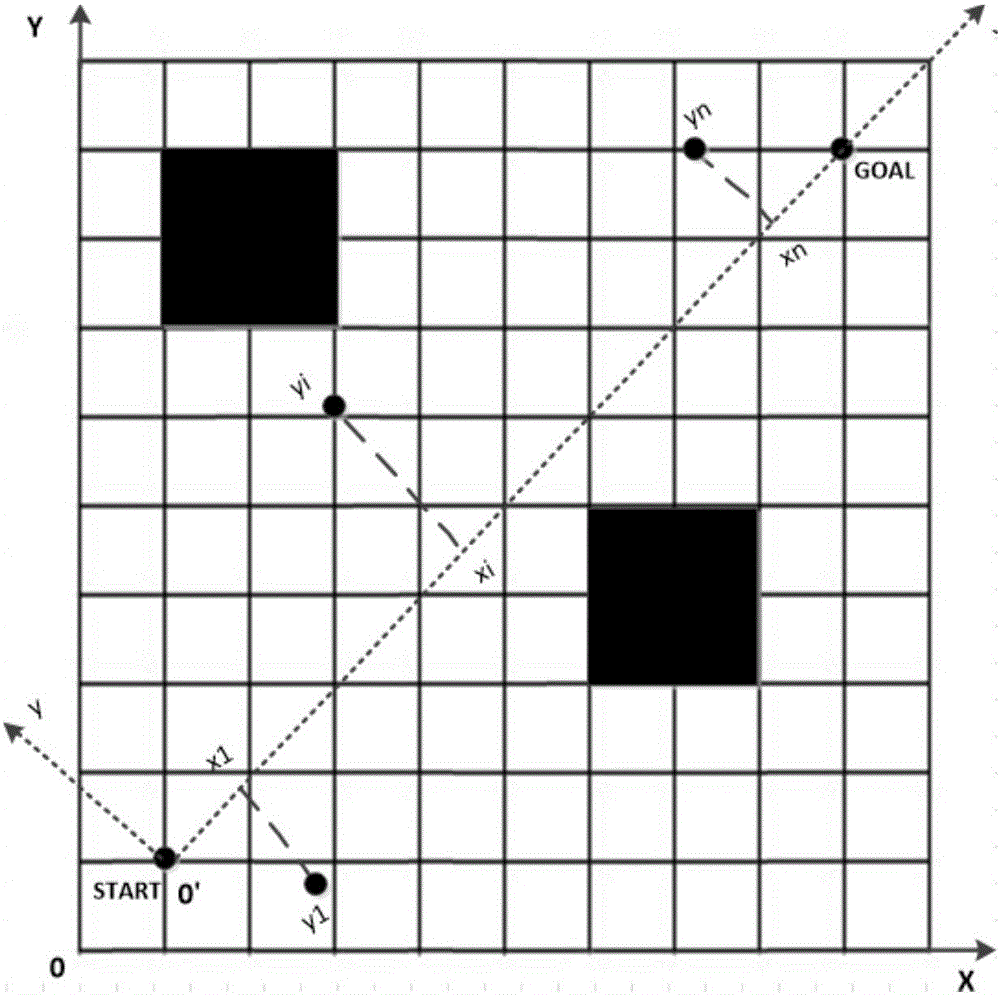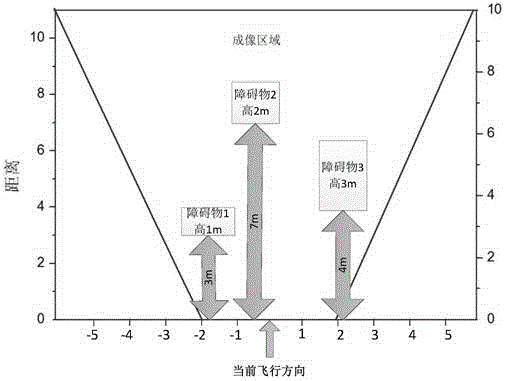Patents
Literature
466results about How to "Low efficacy" patented technology
Efficacy Topic
Property
Owner
Technical Advancement
Application Domain
Technology Topic
Technology Field Word
Patent Country/Region
Patent Type
Patent Status
Application Year
Inventor
Light fixtures, lighting devices, and components for the same
ActiveUS20080137347A1Easy to removeGood adhesionPoint-like light sourceProtective devices for lightingLight equipmentEffect light
A diffuser for a lighting device comprises a diffuser region, a hook element and a nose element. A light fixture comprises a housing with an opening and a diffuser as described above, in which the nose element extends through the opening, optionally further comprising an accessory including at least one spring element engaging the hook element. A light fixture structure comprises a housing defining an opening and an first attachment element comprising a nose element, a hook element and a connection region, and optionally further comprising a diffuser engaging a first portion of the hook element, and / or an accessory which engages a second portion of the hook element. An eyeball accessory comprises first and second housing elements pivotably attached to each other. An accessory for a light fixture comprises a housing member and a spring element engageable with a fixture.
Owner:IDEAL IND LIGHTING LLC
Abuse-safeguarded dosage form
A pharmaceutical dosage form that is safeguarded against abuse containing at least one active substance that is susceptible to abuse and at least two of the following constituents (a) through (d): (a) at least one substance that irritates the nasal and / or pharyngeal region; (b) at least one viscosity increasing agent that together with a required minimum quantity of an aqueous liquid forms a gel in an extract obtained from the dosage form, which gel can still be discerned after being introduced into an additional quantity of aqueous liquid; (c) at least one antagonist for the at least one active substance that is susceptible to abuse; and (d) at least one emetic.
Owner:GRUNENTHAL GMBH
Spiking neural network feedback apparatus and methods
InactiveUS20130297541A1Low efficacyGood curative effectDigital computer detailsDigital dataSpiking neural networkArtificial intelligence
Apparatus and methods for feedback in a spiking neural network. In one approach, spiking neurons receive sensory stimulus and context signal that correspond to the same context. When the stimulus provides sufficient excitation, neurons generate response. Context connections are adjusted according to inverse spike-timing dependent plasticity. When the context signal precedes the post synaptic spike, context synaptic connections are depressed. Conversely, whenever the context signal follows the post synaptic spike, the connections are potentiated. The inverse STDP connection adjustment ensures precise control of feedback-induced firing, eliminates runaway positive feedback loops, enables self-stabilizing network operation. In another aspect of the invention, the connection adjustment methodology facilitates robust context switching when processing visual information. When a context (such an object) becomes intermittently absent, prior context connection potentiation enables firing for a period of time. If the object remains absent, the connection becomes depressed thereby preventing further firing.
Owner:BRAIN CORP
Animal model and methods for its use in the selection of cytotoxic antibodies
InactiveUS6676927B1Reduces antibody efficacyEnhances antibody efficacyCompounds screening/testingAntibody ingredientsReceptor for activated C kinase 1Infectious agent
The present invention relates to non-human animals and in vivo methods for testing the efficacy of antibodies directed to antigens expressed by tumors in such animals. In particular, the invention relates to an animal deficient in the expression of one or more Fc receptors. Additionally, such an animal is also immunodeficient, and thus permits the growth of a xenogeneic tumor implant. Such immunodeficient animals may also express human receptors. The present invention also relates to methods of evaluating the enhanced ability of an existing antibody or Fc-modified antibody to act as an immunotherapeutic to eradicate tumor cells or infectious agents.
Owner:THE ROCKEFELLER UNIV
Portable raman diagnostic system
ActiveUS20120035442A1Small sizeReduce weightRaman scatteringDiagnostic recording/measuringSpectral bandsRaman Optical Activity Spectroscopy
The present invention further relates to the selection of the specific filter combinations, which can provide sufficient information for multivariate calibration to extract accurate analyte concentrations in complex biological systems. The present invention also describes wavelength interval selection methods that give rise to the miniaturized designs. Finally, this invention presents a plurality of wavelength selection methods and miniaturized spectroscopic apparatus designs and the necessary tools to map from one domain (wavelength selection) to the other (design parameters). Such selection of informative spectral bands has a broad scope in miniaturizing any clinical diagnostic instruments which employ Raman spectroscopy in particular and other spectroscopic techniques in general.
Owner:MASSACHUSETTS INST OF TECH
Reflux resistant cannula and system for chronic delivery of therapeutic agents using convection-enhanced delivery
ActiveUS20070088295A1Increase flow rateOvercome limitationsGuide needlesCannulasRefluxTherapeutic effect
A step-design cannula and delivery system for chronic delivery of therapeutic substances into the brain using convention-enhanced delivery of therapeutic substances and which effectively prevents reflux in vivo and maximizes distribution in the brain.
Owner:RGT UNIV OF CALIFORNIA
Abuse-resistant pharmaceutical dosage form
InactiveUS20050191244A1Inhibition releaseUnnecessary stressOrganic active ingredientsNervous disorderAntagonistDosage form
A solid pharmaceutical dosage form that is safeguarded against abuse containing at least one active substance that could be subject to abuse and at least one antagonist for the active substance, which antagonist is spatially separate from the active substance. The active substance or substances is / are present in at least one subunit (a), and the at least one antagonist is present in at least one subunit (b), and the at least one antagonist in subunit (b) is to all intents and purposes not released in the body if the dosage form is correctly administered as prescribed.
Owner:GRUNENTHAL GMBH
Light fixtures, lighting devices, and components for the same
ActiveUS8096670B2Readily be removed and attachedEasy typingPoint-like light sourceProtective devices for lightingLight equipmentEffect light
A diffuser for a lighting device comprises a diffuser region, a hook element and a nose element. A light fixture comprises a housing with an opening and a diffuser as described above, in which the nose element extends through the opening, optionally further comprising an accessory including at least one spring element engaging the hook element. A light fixture structure comprises a housing defining an opening and an first attachment element comprising a nose element, a hook element and a connection region, and optionally further comprising a diffuser engaging a first portion of the hook element, and / or an accessory which engages a second portion of the hook element. An eyeball accessory comprises first and second housing elements pivotably attached to each other. An accessory for a light fixture comprises a housing member and a spring element engageable with a fixture.
Owner:IDEAL IND LIGHTING LLC
Rate stabilization through plasticity in spiking neuron network
ActiveUS20140156574A1Stabilization of neuron firing rateFirmly connectedDigital computer detailsDigital dataComputer scienceReceptive field
Apparatus and methods for activity based plasticity in a spiking neuron network adapted to process sensory input. In one embodiment, the plasticity mechanism may be configured for example based on activity of one or more neurons providing feed-forward stimulus and activity of one or more neurons providing inhibitory feedback. When an inhibitory neuron generates an output, inhibitory connections may be potentiated. When an inhibitory neuron receives inhibitory input, the inhibitory connection may be depressed. When the inhibitory input arrives subsequent to the neuron response, the inhibitory connection may be depressed. When input features are unevenly distributed in occurrence, the plasticity mechanism is capable of reducing response rate of neurons that develop receptive fields to more prevalent features. Such functionality may provide network output such that rarely occurring features are not drowned out by more widespread stimulus.
Owner:BRAIN CORP
Methods of preventing or treating inflammatory or autoimmune disorders by administering CD2 antagonists in combination with other prophylactic or therapeutic agents
InactiveUS20030044406A1Well effectWell prophylactic and therapeutic effectAntipyreticAnalgesicsImmunologyAntagonist
The present invention provides to methods of preventing, treating or ameliorating an autoimmune or inflammatory disorder or one or more symptoms thereof utilizing combinatorial therapy. In particular, the present invention provides methods of preventing, treating, or ameliorating an autoimmune or inflammatory disorder or one or more symptoms thereof comprising administering to a subject in need thereof one or more CD2 antagonists and at least one other prophylactic or therapeutic agent. The present invention also provides compositions and articles of manufacture for use in preventing, treating or ameliorating one or more symptoms associated with an autoimmune or inflammatory disorder.
Owner:MEDIMMUNE INC
Capped pyrazinoylguanidine sodium channel blockers
InactiveUS7807834B2Prolonged pharmacodynamic half-lifeMore potent and/or absorbed less rapidlySenses disorderNervous disorderChannel blockerCalcium channel blocker
The present invention relates to group of pyrazinoylguanidine compounds useful as sodium channel blockers. The compounds may be used to promote promoting hydration of mucosal surfaces.
Owner:PARION SCI DURHAM NC
Muscle-derived cells (MDCs) for treating muscle- or bone-related injury or dysfunction
The present invention provides muscle-derived cells, preferably myoblasts and muscle-derived stem cells, genetically engineered to contain and express one or more heterologous genes or functional segments of such genes, for delivery of the encoded gene products at or near sites of musculoskeletal, bone, ligament, meniscus, cartilage or genitourinary disease, injury, defect, or dysfunction. Ex vivo myoblast mediated gene delivery of human inducible nitric oxide synthase, and the resulting production of nitric oxide at and around the site of injury, are particularly provided by the invention as a treatment for lower genitourinary tract dysfunctions. Ex vivo gene transfer for the musculoskeletal system includes genes encoding acidic fibroblast growth factor, basic fibroblast growth factor, epidermal growth factor, insulin-like growth factor, platelet derived growth factor, transforming growth factor-β, transforming growth factor-α, nerve growth factor and interleukin-1 receptor antagonist protein (IRAP), bone morphogenetic protein (BMPs), cartilage derived morphogenetic protein (CDMPs), vascular endothelial growth factor (VEGF), and sonic hedgehog proteins.
Owner:UNIVERSITY OF PITTSBURGH
Supported catalysts having a controlled coordination structure and methods for preparing such catalysts
ActiveUS7011807B2Reduce molecular weightReduce the possibilityHydrogen peroxideHydrogenHydrogenOrganic fluid
Supported reactive catalysts having a controlled coordination structure and methods for their production are disclosed. The supported catalysts of the present invention are useful for the preparation of hydrogen peroxide with high selectivity in addition to other chemical conversion reactions. The supported catalyst comprises catalyst particles having top or outer layer of atoms in which at least a portion of the atoms exhibit a controlled coordination number of 2. The catalyst and methods may be used for the concurrent in situ and ex situ conversion of organic compounds. In addition, a process is provided for catalytically producing hydrogen peroxide from hydrogen and oxygen feeds by contacting them with the catalysts of the invention and a suitable organic liquid solvent having a Solvent Selection Parameter (SSP) between 0.14×10−4 and 5.0×10−4.
Owner:BORAL IP HLDG
Methods of inhibiting dental erosion/discoloration using a beverage composition comprising a long chain polyphosphate
InactiveUS6984376B2Low efficacyProtection attackCosmetic preparationsInorganic phosphorous active ingredientsTooth discolorationErosion
The present invention is directed to a method of treating dental erosion, preventing dental discoloration or both comprising orally administering to a mammal (preferably, a human) a beverage composition having a pH of greater than about 5.5; wherein the beverage composition comprises a compound having the structure: wherein n is an integer averaging from about 7 to about 100 and M, M′, and M″ are each, independently, selected from the group consisting of sodium and potassium. The present invention is further directed to kits comprising the foregoing beverage composition and information that use of the beverage composition provides treatment against dental erosion, dental discoloration or both.
Owner:THE PROCTER & GAMBLE COMPANY
Method for improving self-management of a disease
InactiveUS20080311968A1Good for healthLow efficacyVideo gamesElectrical appliancesMedicineSelf management program
The invention includes an interactive method of therapy for disease management, and for improving self-management of diabetes and other medical conditions. The invention improves quality of life for users with a medical condition, and decreases the over all cost of health care for insurers. Operation of the invention promotes therapeutic behavioral change and substantial increase in adherence to disease self-management programs. In one embodiment, the invention uses a video game to improve self-management of a disease. Games used with the invention provide one or more reinforcements to players who wish to change their behaviors in a way that improves their chronic disease condition. Reinforcements consist of token rewards, prizes, increasing scores, group approval or disapproval, and increased social status. A video game accesses medical data of a player. The video game prompts players to perform one or more out-of-game self-management activities associated with the medical condition. The invention then adjusts the video game based on medical data associated with one or more out-of-game self-management activities. In-game and out-of-game rewards, including social rewards, provide incentives to continue with a self-management program.
Owner:GLYMETRIX CORP
Apparatus and methods for activity-based plasticity in a spiking neuron network
ActiveUS8972315B2Improve performanceGood curative effectDigital computer detailsDigital dataNeuron networkSpiking neural network
Apparatus and methods for plasticity in spiking neuron network. The network may comprise feature-specific units capable of responding to different objects (red and green color). Plasticity mechanism may be configured based on difference between two similarity measures related to activity of different unit types obtained during network training. One similarity measure may be based on activity of units of the same type (red). Another similarity measure may be based on activity of units of one type (red) and another type (green). Similarity measures may comprise a cross-correlogram and / or mutual information determined over an activity window. Several similarity estimates, corresponding to different unit-to-unit pairs may be combined. The combination may comprise a weighted average. During network operation, the activity based plasticity mechanism may be used to potentiate connections between units of the same type (red-red). The plasticity mechanism may be used to depress connections between units of different types (red-green).
Owner:BRAIN CORP
Apparatus, method, and system for independent aiming and cutoff steps in illuminating a target area
ActiveUS20130250556A1Easy to controlReduced EPAMechanical apparatusLighting support devicesProject areaEffect light
Presented is a design of modular LED lighting fixture whereby the steps of light directing and light redirecting are independent, but cooperative, so to promote a compact fixture design with low effective projected area (EPA), good thermal properties, and a selectable degree of glare control. A lighting system employing a plurality of said fixtures is highly customizable yet has the potential to be pre-aimed and pre-assembled prior to shipping, which reduces the potential for installation error while preserving the customized nature of the fixtures.
Owner:MUSCO
Sodium channel blockers
InactiveUS20060142306A1More potent and/or absorbed less rapidlyLess reversibleOrganic active ingredientsSenses disorderTreatment useChemistry
Owner:CYFI
Method of detaching a thin film at moderate temperature after co-implantation
ActiveUS20040171232A1Increase internal pressureEasy to reinforceSemiconductor/solid-state device manufacturingAmount of substanceCo implantation
A method of detaching a thin film from a source substrate comprises the following steps: implanting ions or gaseous species in the source substrate so as to form therein a buried zone weakened by the presence of defects; splitting in the weakened zone leading to the detachment of the thin film from the source substrate. Two species are implanted of which one is adapted to form defects and the other is adapted to occupy those defects, the detachment being made at a temperature lower than that for which detachment could be obtained with solely the dose of the first species.
Owner:COMMISSARIAT A LENERGIE ATOMIQUE ET AUX ENERGIES ALTERNATIVES +1
Tamper-resistant RFID disabling apparatus
InactiveUS7286055B2Cost of complexityComplex designStampsRecord carriers used with machinesLocking mechanismEngineering
A tamper-resistant RFID identification apparatus that includes a mechanism for storing an excess portion of the apparatus when engaged. The apparatus includes a substrate including a series of holes along a length thereof and a slot distal from the series of holes, a tamper-resistant locking mechanism for securing the apparatus to an object, an RFID circuit disposed on the substrate and an electrically conductive loop disposed on the substrate and electrically coupled to the RFID circuit, that is arranged to disable the RFID circuit when cut. The slot receives a tail portion of the substrate when the apparatus is secured.
Owner:BARTRONICS HONG KONG
Methods for the Treatment of Autoimmune Disorders Using Immunosuppressive Monoclonal Antibodies with Reduced Toxicity
ActiveUS20080095766A1Reduce the possibilityIncreasing concentration of antibodySenses disorderNervous disorderDosing regimenInsulin dependent diabetes
The present invention provides methods of treating, preventing, slowing the progression of, or ameliorating the symptoms of T cell mediated immunological diseases, particularly autoimmune diseases (e.g., autoimmune diabetes (i.e. type 1 diabetes or insulin-dependent diabetes mellitus (IDDM)) and multiple sclerosis) through the use of anti-human CD3 antibodies. The antibodies of the invention of the invention are preferably used in low dose dosing regimens, chronic dosing regimens or regimens that involve redosing after a certain period of time. The methods of the invention provide for administration of antibodies that specifically bind the epsilon subunit within the human CD3 complex. Such antibodies modulate the T cell receptor / alloantigen interaction and, thus, regulate the T cell mediated cytotoxicity associated with autoimmune disorders. Additionally, the methods of the invention provide for use of anti-human CD3 antibodies modified such that they exhibit reduced or eliminated effector function and T cell activation as compared to non-modified anti-human CD3 antibodies.
Owner:PROVENTION BIO INC
Abuse-Resistant Dosage Form
A solid pharmaceutical dosage form that is safeguarded against abuse, comprising at least one active substance that is susceptible to abuse and at least one emetic that is spatially separate from the at least one active substance. The active substance or substances are present in the form of at least one sub-unit (a), and the at least one emetic is present in the form of at least one sub-unit (b), and the emetic from sub-unit (b) is not activated in the body if the dosage form has been correctly administered as prescribed.
Owner:GRUNENTHAL GMBH
Poly aromatic pyrazinoylguanidine sodium channel blockers
ActiveUS8124607B2More potent and/or absorbed less rapidlyLess reversibleOrganic active ingredientsSenses disorderChannel blockerTreatment use
Owner:PARION SCI DURHAM NC
Controlled discharge ostomy appliance and shield therefor
ActiveUS20120179124A1Low efficacyFitting shapeNon-surgical orthopedic devicesColostomyEngineeringMechanical engineering
A controlled discharge ostomy appliance assembly comprises (i) a stoma seal that is self-urging with a dynamic damping characteristic that resists changes of seal volume, (ii) a press-fit coupling member displaceable from an unlocked position to a locked position as part of a press-fit process, and (iii) a single-use frangible portion. The assembly further includes a protector shield removably fastened to the appliance forming a combined assembly therewith. The protector shield comprises (i) a seal displacer manipulable for displacing the stoma seal to a non-operative position ready for fitting, (ii) a substantially rigid coupling member guard portion for protecting the state of the coupling member, and (iii) a bracing portion for bracing the single-use frangible portion.
Owner:CONVATEC TECH INC
Apparatus and methods for activity-based plasticity in a spiking neuron network
ActiveUS20140122399A1Improve performanceGood curative effectDigital computer detailsDigital dataNeuron networkSpiking neural network
Apparatus and methods for plasticity in spiking neuron network. The network may comprise feature-specific units capable of responding to different objects (red and green color). Plasticity mechanism may be configured based on difference between two similarity measures related to activity of different unit types obtained during network training. One similarity measure may be based on activity of units of the same type (red). Another similarity measure may be based on activity of units of one type (red) and another type (green). Similarity measures may comprise a cross-correlogram and / or mutual information determined over an activity window. Several similarity estimates, corresponding to different unit-to-unit pairs may be combined. The combination may comprise a weighted average. During network operation, the activity based plasticity mechanism may be used to potentiate connections between units of the same type (red-red). The plasticity mechanism may be used to depress connections between units of different types (red-green).
Owner:BRAIN CORP
Laundry detergent compositions comprising amphiphilic graft polymers based on polyalkylene oxides and vinyl esters
InactiveUS20090005288A1Negatively impacting general cleaning capabilityLower surfactant levelOrganic detergent compounding agentsDetergent solventsOrganic solventPolybutylene
A laundry detergent composition comprising a graft copolymer of polyethylene, polypropylene or polybutylene oxide with vinyl acetate in a weight ratio of from about 1:0.2 to about 1:10; from about 0.2% to about 8% of organic solvent; and from about 2% to about 20% of a surfactant system; wherein said detergent composition is in a form selected from: liquid; gel; and combinations thereof.
Owner:THE PROCTER & GAMBLE COMPANY
New capped pyrazinoylguanidine sodium channel blockers
InactiveUS20070032509A1Less surfaceLess reversibleSenses disorderNervous disorderChemistryTreatment use
Owner:PARION SCI DURHAM NC
Photochemical activation of surfaces for attaching biomaterial
ActiveUS20060147413A1Efficient mechanismLow efficacyPharmaceutical delivery mechanismPharmaceutical non-active ingredientsPolymer chemistryPhotochemistry
A water-soluble photo-activatable polymer including: a photo-activatable group adapted to be activated by an irradiation source and to form a covalent bond between the water-soluble photo-activatable polymer and a matrix having at least one carbon; a reactive group adapted to covalently react with a biomaterial for subsequent delivery of the biomaterial to a cell; a hydrophilic group; and a polymer precursor. A composition including a monomolecular layer of the water-soluble photo-activatable polymer and a matrix having at least one carbon, wherein the monomolecular layer is covalently attached to the matrix by a covalent bond between the photo-activatable group and the at least one carbon. The composition further includes a biomaterial having a plurality of active groups, wherein the biomaterial is covalently attached to the monomolecular layer by covalent bonding between the active groups and reactive groups. Also provided is a method for delivery of a biomaterial to a cell.
Owner:THE CHILDRENS HOSPITAL OF PHILADELPHIA
System and method for flow cytometry
InactiveUS20090027666A1Improved directing of lightReduce light lossBioreactor/fermenter combinationsBiological substance pretreatmentsPrismEngineering
A flow cytometry system and related method, among other things, are disclosed. In at least one embodiment, the system includes first, second, and intermediate slab formations, the last of which has formed therewithin a microfluidic channel, a lens structure arranged proximate the microfluidic channel, and a light conveying structure arranged proximate to the lens structure. The lens structure is configured to direct a portion of light to proceed between the channel and the conveying structure. The intermediate slab formation is sandwiched between the other two slab formations. In at least another embodiment, the system includes a microfluidic prism arranged proximate to the second end of a light conveying structure. Light emanating from a microfluidic channel is provided to the conveying structure at the first end, conveyed to the second end, and provided to the prism, which outputs a plurality of portions of the light at different frequencies in different directions.
Owner:RGT UNIV OF CALIFORNIA
Unmanned aerial vehicle obstacle avoidance method and device based on 3D camera
PendingCN105759836AReduce volumeLow efficacySteroscopic systemsPosition/course control in three dimensionsImage analysisObstacle avoidance
Provided are an unmanned aerial vehicle (UAV) obstacle avoidance method and device based on a 3D camera. The device comprises a 3D camera, a visual analysis module, a flight control main module and an inertial navigation module. The 3D camera is responsible for collecting image data in real time; collected image data and the UAV attitude information provided by the inertial navigation module are sent to the visual analysis module for analysis through an algorithm, and an analysis result is timely fed back to the flight control main module; the flight control main module adjusts flight parameters according to flight line adjusting parameters. The obstacle avoidance technology is based on the passive image analysis technology, and thereby the UAV obstacle avoidance device has the advantages of small size, light weight, low cost, small consumption, rapid response and high success rate, and can be applied to unmanned helicopters, and various rotor wing and fixed wing UAVs.
Owner:WUHAN ZHUOBA SCI & TECH CO LTD
Features
- R&D
- Intellectual Property
- Life Sciences
- Materials
- Tech Scout
Why Patsnap Eureka
- Unparalleled Data Quality
- Higher Quality Content
- 60% Fewer Hallucinations
Social media
Patsnap Eureka Blog
Learn More Browse by: Latest US Patents, China's latest patents, Technical Efficacy Thesaurus, Application Domain, Technology Topic, Popular Technical Reports.
© 2025 PatSnap. All rights reserved.Legal|Privacy policy|Modern Slavery Act Transparency Statement|Sitemap|About US| Contact US: help@patsnap.com
